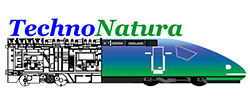There are 5 challenges toward the establishment of future school/Madrasah
1. Urgency Of Creating Fun Joyful Learning Environment
2. Educating Good Character
3. The Challenge Embracing Era Of Fourth Industrial Revolution
4. The Challenge of Environmental Care
5. The Challenge Toward Educating Global Citizen
To address these challenges as discussed before (see CHALLENGE OF FUTURE SCHOOL) is becoming main reason why we established Madrasah Technonatura , is to provide an alternative model of fun and joyful learning and meaningful STEAM project based learning experience for youth to master Industry 4.0 and at the same time preserving the nature for many generation to come, to embrace 21st century skills of 4R ( Religious, Reading, Riting, and Rithmetic) and 5C ( Creative, Critical, Concordance work, Communication and collaboration)
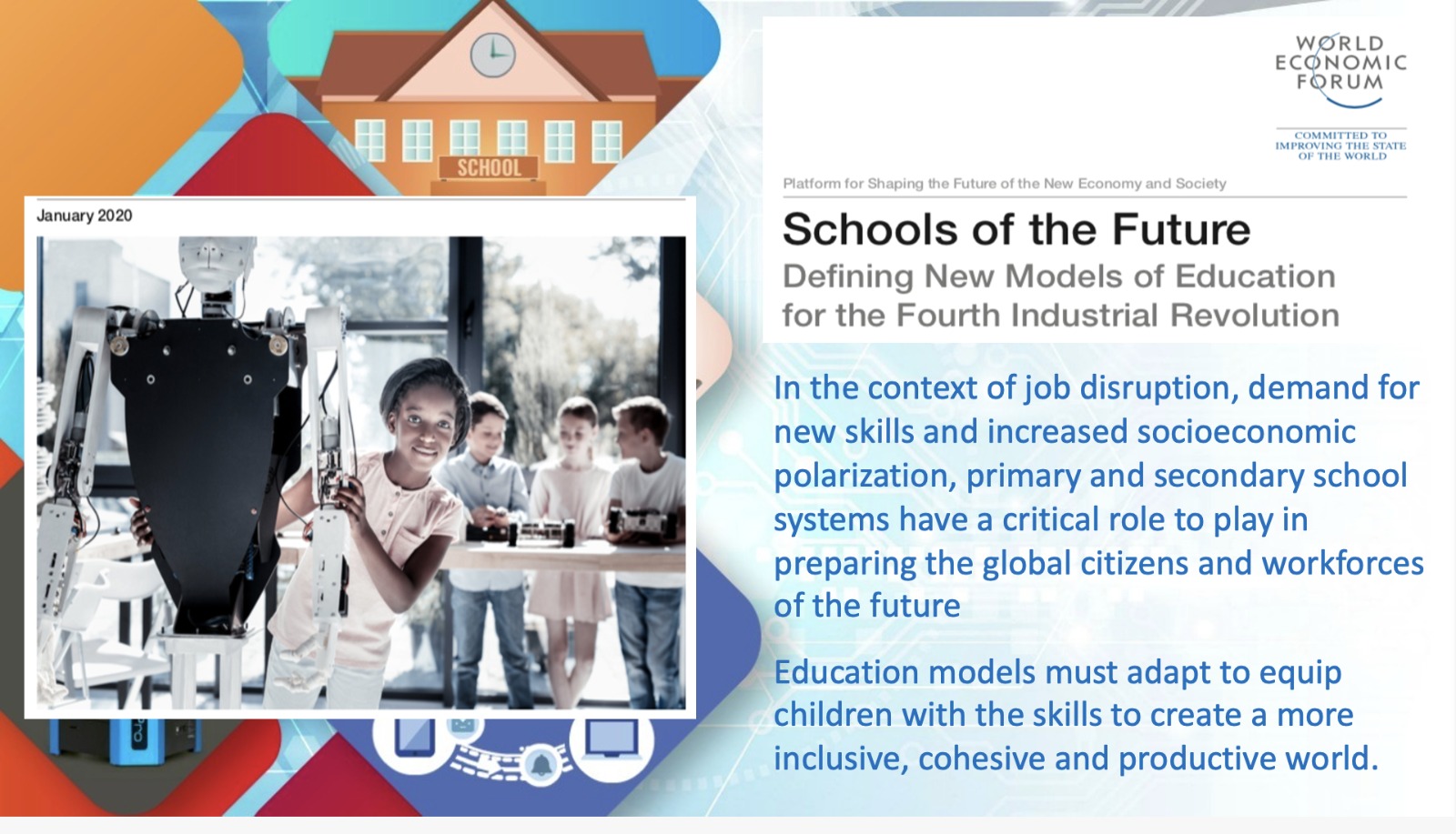
Madrasah TechnoNatura was founded as an alternative model of fun and joyful learning and meaningful STEAM project based learning experience for youth to embrace 21st century skills with addition and 1 c. so it become 4R ( Religius, Reading, Riting, and Rithmetic) as foundation skills and 5C ( Creative, Critical, Concordance work, Communication and collaboration) in mastering the disruptive technology that drive Industry 4.0
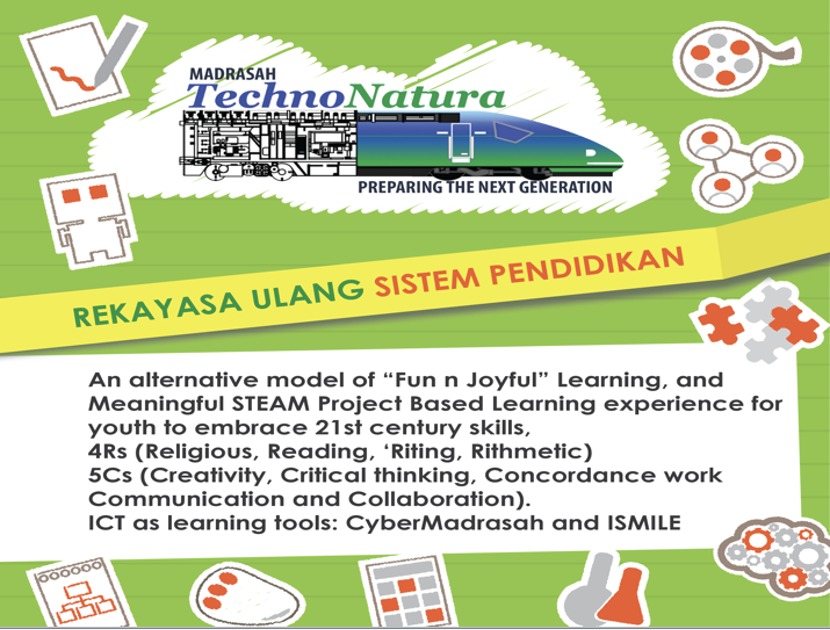
Madrasah TechnoNatura is an experimental school founded in 2004 under the auspices of the CREATE Foundation (Center for Research on Education, Art, Technology and Entrepreneurship). The presence of the Madrasah TechnoNatura is an expression for an appropriate form of education with its era. The existing conventional schools were considered not yet optimal in responding to the challenges of the 21st century, especially with such rapid technological developments i.e. information technology.
Madrasah Technonatura is a type of Islamic educational institution that emphasizes the integration of technology with Islamic studies and environmental education. It is based on the concept of Technonatura, which combines technology (Techno) with nature (Natura) to promote sustainable development and environmental conservation.
The TechnoNatura, established in Depok in 2004 began as home schooling but in 2012 the government of Indonesia under Ministry of Religious Affair granted Madrasah status, an Islamic school that committed to education, experimenting STEAM education, to achieve 21st centuries skills, promotes creativities, sustainability and shapes future innovator leaders. Understanding and Nurturing Industry 4.0, in forging a better human character for Indonesia 2045.
It is a small class and small learning communities. A classroom with the capacity of students 12-16 students. It is an ideal number that makes possible a dialogical relationship between class communities. It currently serves more than 350 students aged 6–18.
1. Urgency Of Creating Fun Joyful Learning Environment: 30 Innovative Strategies To Make Students Happy at School
In overcoming the challenges of fun and joyful learning, TechnoNatura has been experimenting and deploying with a number of innovation strategy of education. Nair's approach to education are centered on the concept of personalized learning, which is designed to cater to the unique needs, interests, and strengths of each student. TechnoNatura believes that personalized learning is the key to developing happy student and well-rounded individuals who are equipped with the skills and knowledge they need to succeed in the 21st-century world.
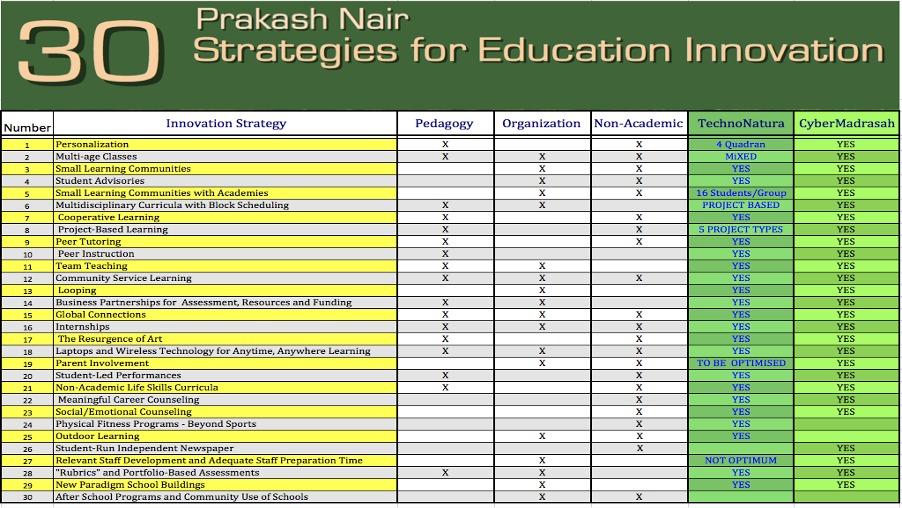
Here are some of the Nair's strategies that Technonatura has been experimenting on in its 30 innivation strategy approach to education:
- Student-centered learning: Technonatura 's approach to education is based on the belief that each student has unique learning needs and styles, and that learning should be tailored to meet those needs. Teachers work closely with students to develop personalised learning plans that take into account their interests, strengths, and learning goals
-
STEAM Education: STEAM education (science, technology, engineering, Art and mathematics) is an education trend that emphasises the importance of teaching these subjects in an integrated and interdisciplinary way. It seeks to prepare students for careers in these fields, which are projected to be in high demand in the coming years. It increased engagement, STEAM education uses hands-on, experiential learning to engage students and make learning more meaningful. It helps students see the relevance of what they are learning and fosters a love of learning.
-
Increased engagement: STEAM education uses hands-on, experiential learning to engage students and make learning more meaningful. When students are engaged in their learning, they are more likely to feel a sense of accomplishment and happiness.
-
Sense of purpose: STEAM education helps students see the relevance of what they are learning and how it can be applied to real-world problems. This can give students a sense of purpose and motivation.
-
Opportunities for creativity: STEAM education encourages students to think outside the box and come up with innovative solutions to real-world problems. This can give students a sense of ownership over their learning and a feeling of creative fulfillment.
-
Collaboration and social connections: STEAM education often involves working in teams to solve problems and complete projects. This promotes collaboration and communication skills, which can lead to positive social connections and a sense of community.
-
Positive impact: STEAM education can give students the opportunity to make a positive impact on the world. When students feel like they are making a difference, they are more likely to feel a sense of fulfillment and happiness.
3. Project-based learning: Technonatura 's emphasizes project-based learning, which involves students working on real-world projects that are designed to build critical thinking, problem-solving, and collaboration skills. Students are encouraged to work in groups and to take ownership of their learning, with teachers acting as facilitators and mentors. This learning approaches offer a diverse menu from direct instruction to playful learning so that students are able to develop a wide range of skills and competencies from mastering academic subjects to learning creatively and collaboratively solve problems to learning how to apply knowledge to real world situation
Project Based Learning is designed to be relevant to students' lives and experiences. When students see the relevance of what they are learning, they are more likely to be motivated and happy.Through project-based thematic-integrative learning, students have 5 thematic-integrative types, namely:
- Science project, a project that invites students to research the surrounding natural phenomena
- Engineering project, a project that invites students to design and build an object / technology product mostly Robot and IoT.
- Project Art design, a project that invites students to release artistic creativity.
- Social Project, a project that invites students to observe the socio-cultural symptoms happening around them and is active to prepare students entering in the existing social environment.
- Entrepreneurship Project, a project that invites students to design an entrepreneurship with an emphasis on the development of compromise between Products, Price, Promotion and Place
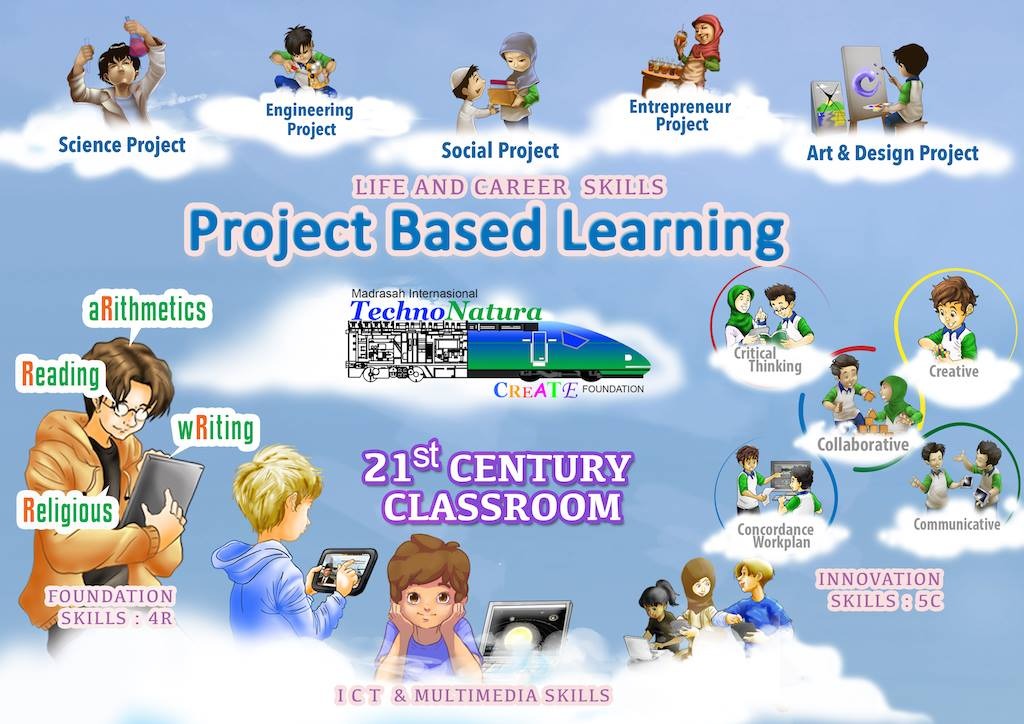
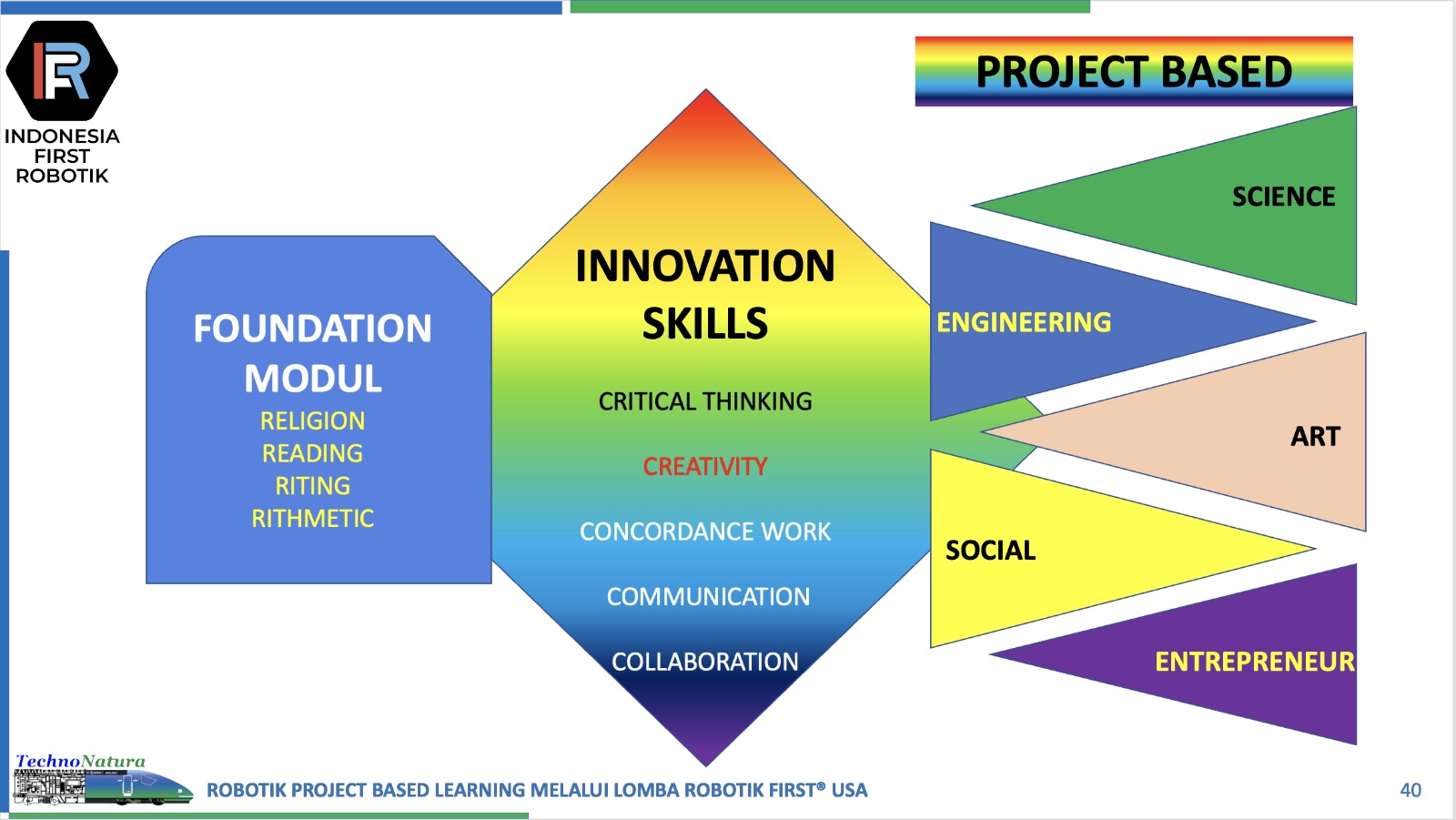
Project based learning allow students to pursue the learning as suit their interest and talent and it offer a diverse menu from direct instruction to playful learning so that students are able to develop a wide range of skills and competencies from mastering academic subjects to learning creatively and collaboratively solve problems to learning how to apply knowledge to real world situation
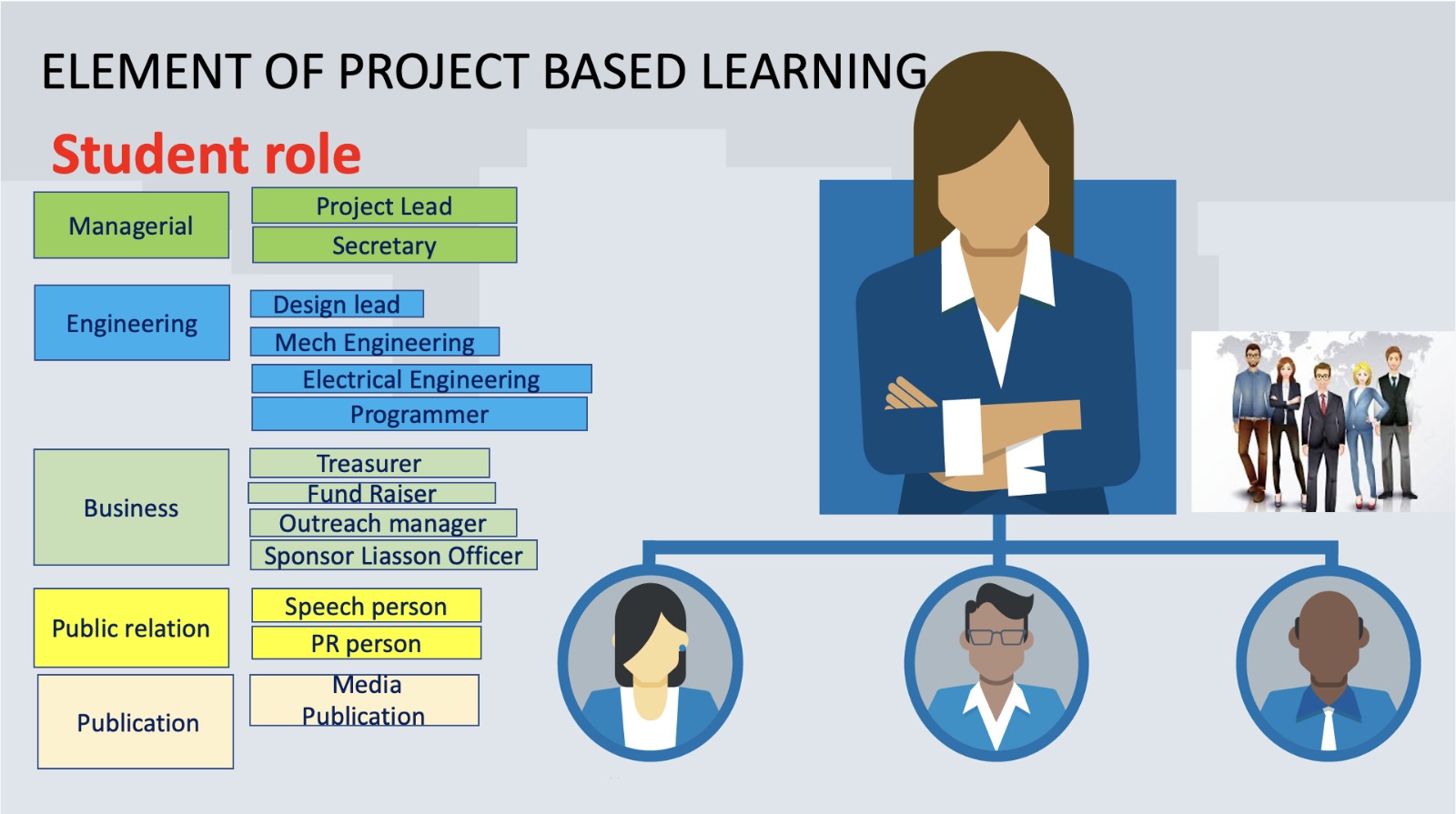
4. Technology integration
Technonatura 's makes extensive use of technology to support personalised learning and project-based learning. Students have access to a wide range of IR 4,o tool, digital tools and resources, including online learning platforms, virtual reality simulations, AI, IOT and robotics kits, which they can use to explore and create
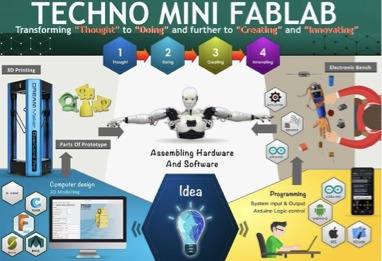
-
-
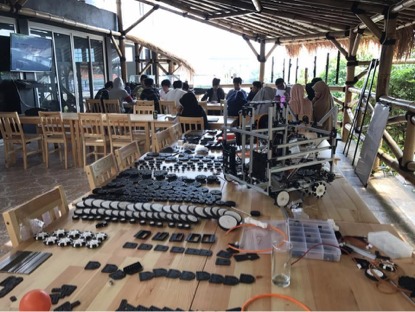
Robotic parts and equipment for Secondary School
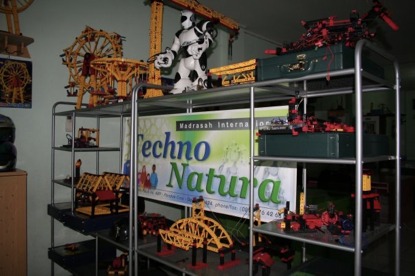
-
-
5. Competency-based assessment:
Technonatura 's approach to assessment is based on the idea of competency-based learning, which focuses on students' mastery of specific skills and knowledge rather than on their performance on standardised tests. Teachers use a range of assessment methods, including self-assessment, peer assessment, and project-based assessment, to evaluate students' progress.
it is highly possible that competency-based assessment would have a positive impact on student happiness. By focusing on the development of competencies, rather than simply grades or test scores, students may feel more motivated and engaged in their learning. Additionally, receiving specific feedback on their progress can help students feel more confident and competent, which can contribute to their overall happiness and well-being.
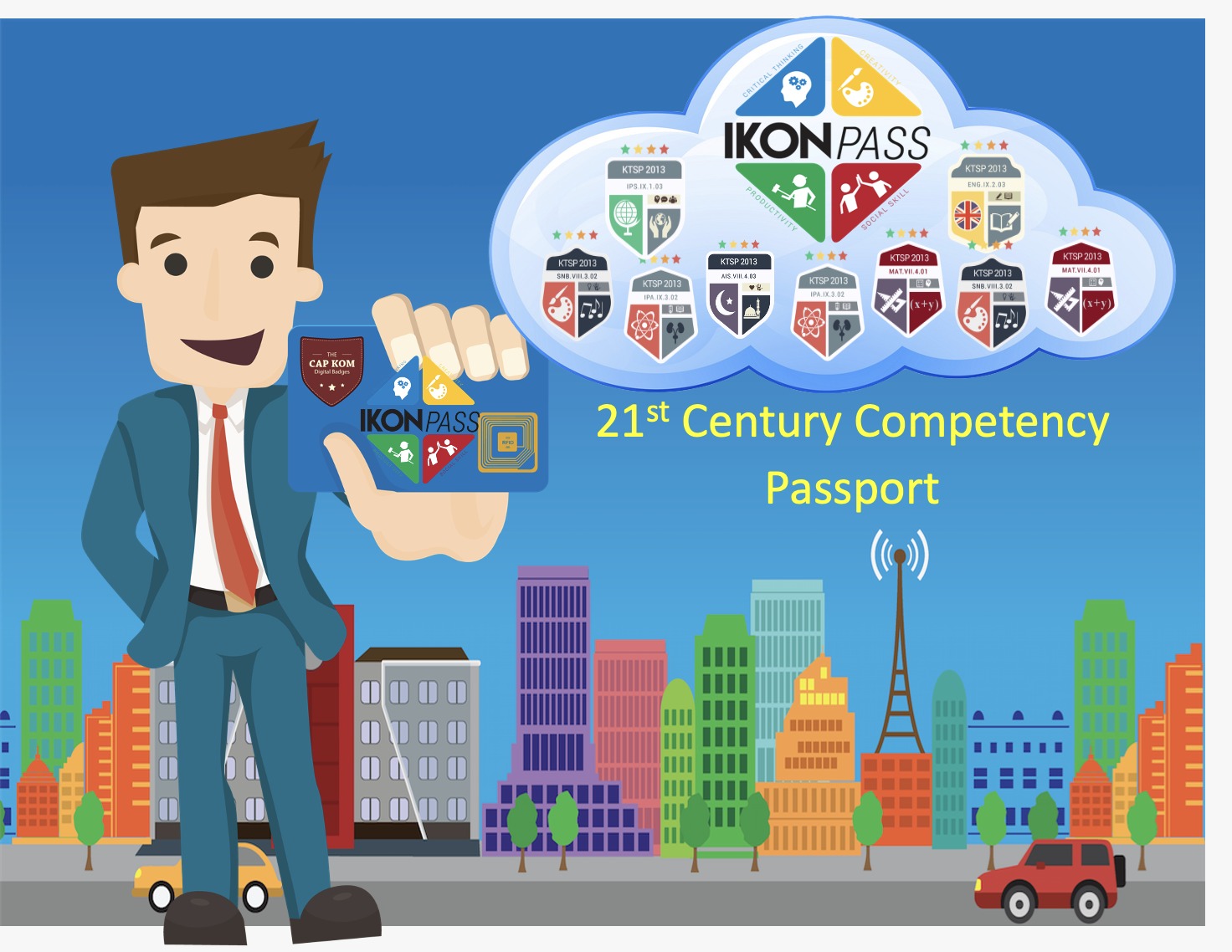
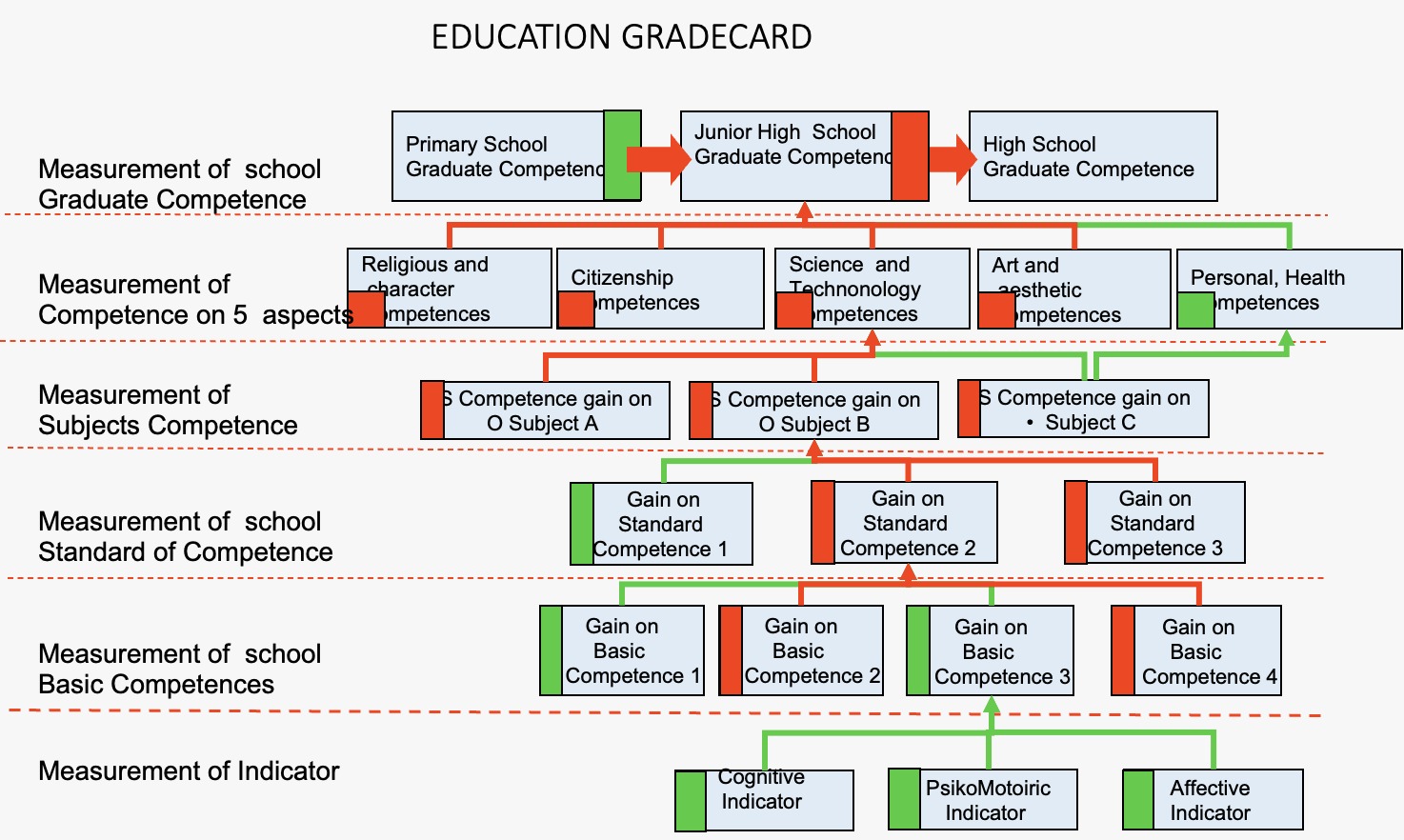
Overall, Technonatura 's strategies in their approach to education emphasise personalised learning, project-based learning, technology integration, and competency-based assessment, all of which are designed to make students happy at school in fostering creativity, critical thinking, and lifelong learning skills in students.
2. Educating Good Character : Islamic Character Building In A Year Curriculum
Building Islamic character involves a continuous effort to develop oneself in accordance with Islamic teachings and principles. This is a lifelong process that requires discipline, dedication, and a deep understanding of Islamic values and ethics. Here is TechnoNatura initiatives in building Islamic character in a year:
12 month of characters SIFAT MUHAMMAD Character building
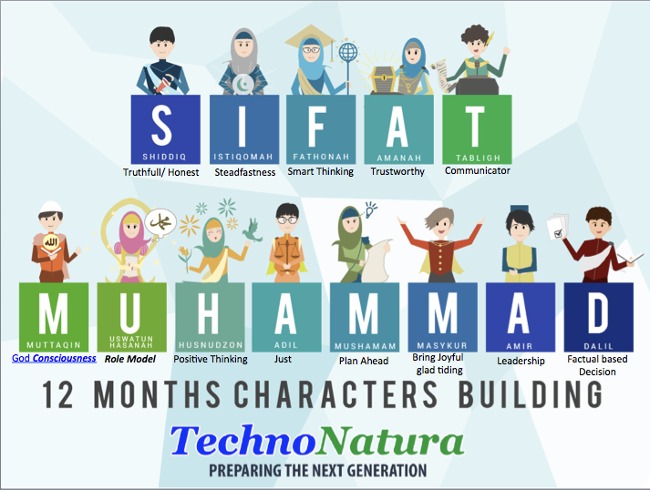
By adopting the exemplar of the Prophet Muhammad the role model of Islamic Character, we build 12 monthly themes that focus to trait of character such as
- Truthful/Honesty, honesty and trustworthy in your dealings with others will help students develop integrity and earn the respect and trust of other
- Steadfastness,
- Smart Thinking,
- Trustworthy,
- Well Communicate,
- God Consciousness,
- Positive role model, Develop good habits: Make a conscious effort to develop good habits such as punctuality, cleanliness, and respect for others. This will help you to become a better person and set a good example for others.
- positive thinking,
- Just,
- Plan ahead,
- bringer Glad tiding,
- Leadership and
- Factual Based Decision
By having this 12 month of theme and weekly activity for social buiding to be kind, compassionate, and forgiving towards others. to family, friends, and those around us. This will help students develop a positive attitude towards others and improve their relationships. more over illamic character will be nurture through
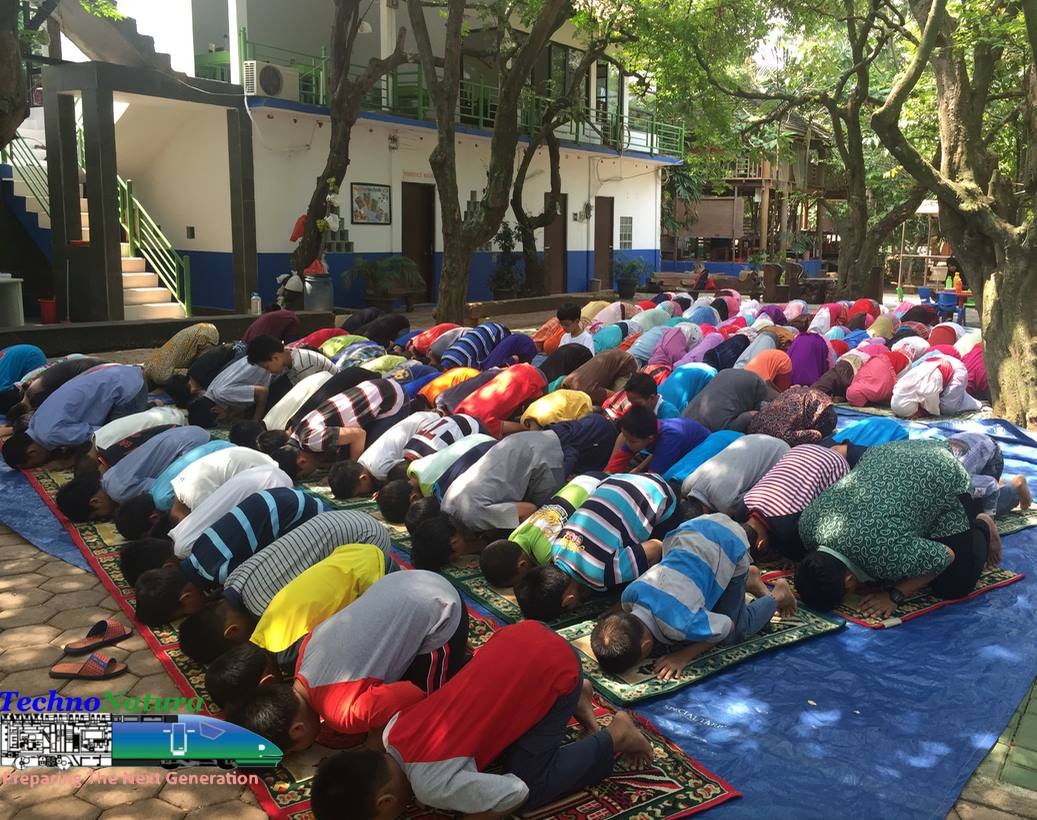
- Daily reading of Quran and Dhuha Prayers: time to read and study the Quran and Hadith. Attend Islamic classes and lectures. This will help students understand the principles and values of Islam and apply them in your life.
- Bazaaar ramadhan for Charity: Make a habit of giving to charity, whether it's through Zakat or Sadaqah. This will help students develop generosity, empathy, and compassion
- Quran and Hadith study: Incorporate the study of Quran and Hadith into the curriculum to help students understand and internalize Islamic values. This can include learning about the life of Prophet Muhammad (PBUH) and studying the stories of the Prophets and Companions
- Prayer and worship: Emphasise the importance of prayer and worship in developing a strong connection with Allah (SWT) and building moral character. This include providing opportunities for congregational prayer at school together and encouraging students to participate in voluntary prayers
- Service to others: Encourage students to engage in community service and volunteerism, which helps build empathy, compassion, and a sense of responsibility towards others
- Moral education: Integrate moral education into the curriculum to teach students about values such as honesty, respect, and kindness. This was carried out through role-playing exercises, storytelling, and other interactive methods.
- Islamic ethics: Teach Islamic ethics and the importance of adhering to Islamic principles in all aspects of life, including personal and professional relationships. This include learning about Islamic business ethics, interpersonal relationships, and social responsibilities.
By integrating these approaches into the educational process, Madrasah TechnoNatura help students develop a strong sense of Islamic identity and moral character. This will not only benefit the individual student but also contribute to the betterment of society as a whole.
3. The Challenge Embracing Era Of Fourth Industrial Revolution: Madrasah 4.0 For Mastering Industry 4.0 To Prepare for Rendezvous 2045
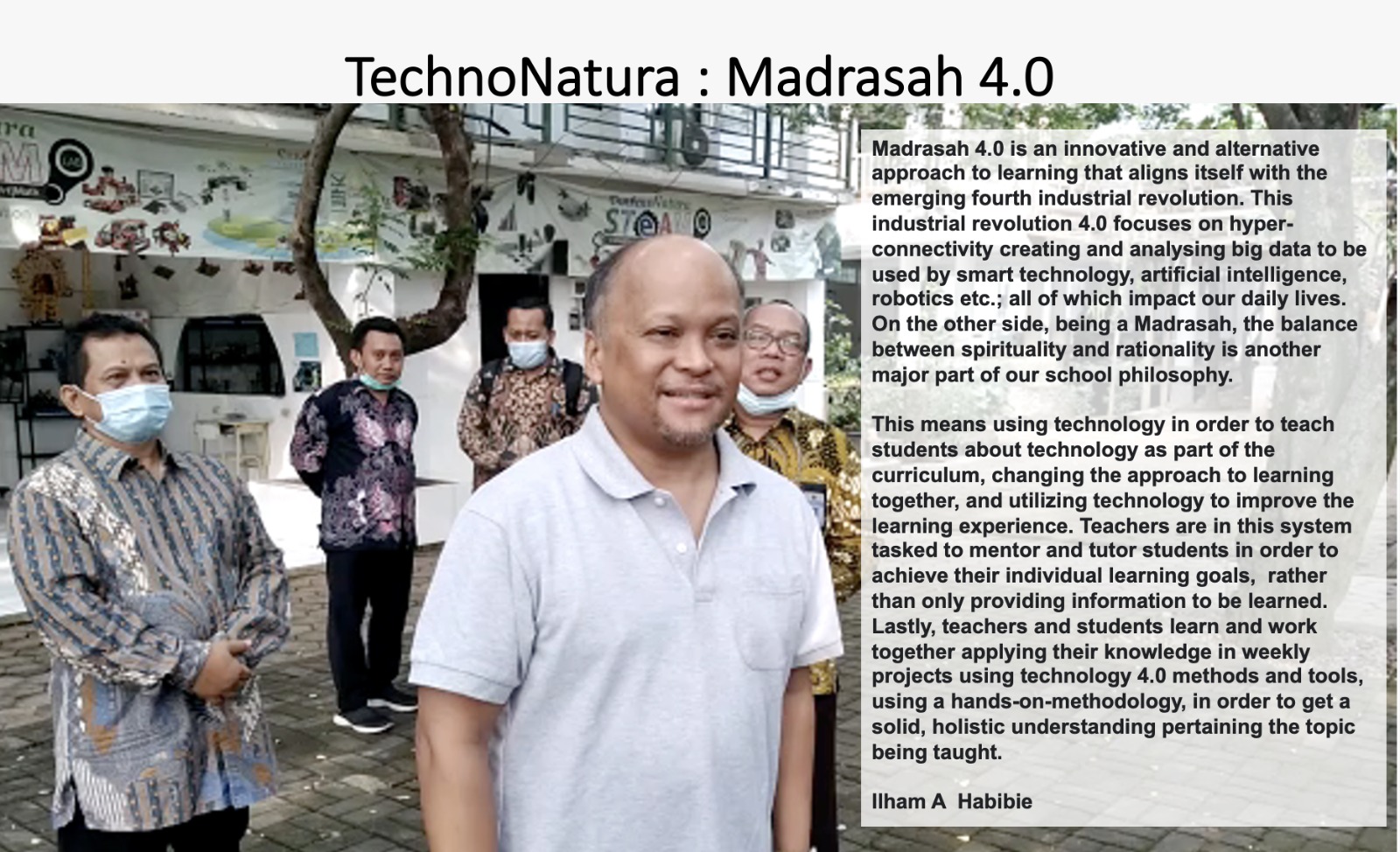
Madrasah 4.0 is an innovative and alternative approach to learning that aligns itself with the emerging fourth industrial revolution. This industrial revolution 4.0 focuses on hyper-connectivity creating and analysing big data to be used by smart technology, artificial intelligence, and robotics etc, all of which impact our everyday lives. On the other side, being a Madrasah, the balance between spirituality and rationality is another major part of our school philosophy.
For any school to continue to produce successful graduates, they must prepare their students for a world where these cyber-physical systems are prevalent across their lives.
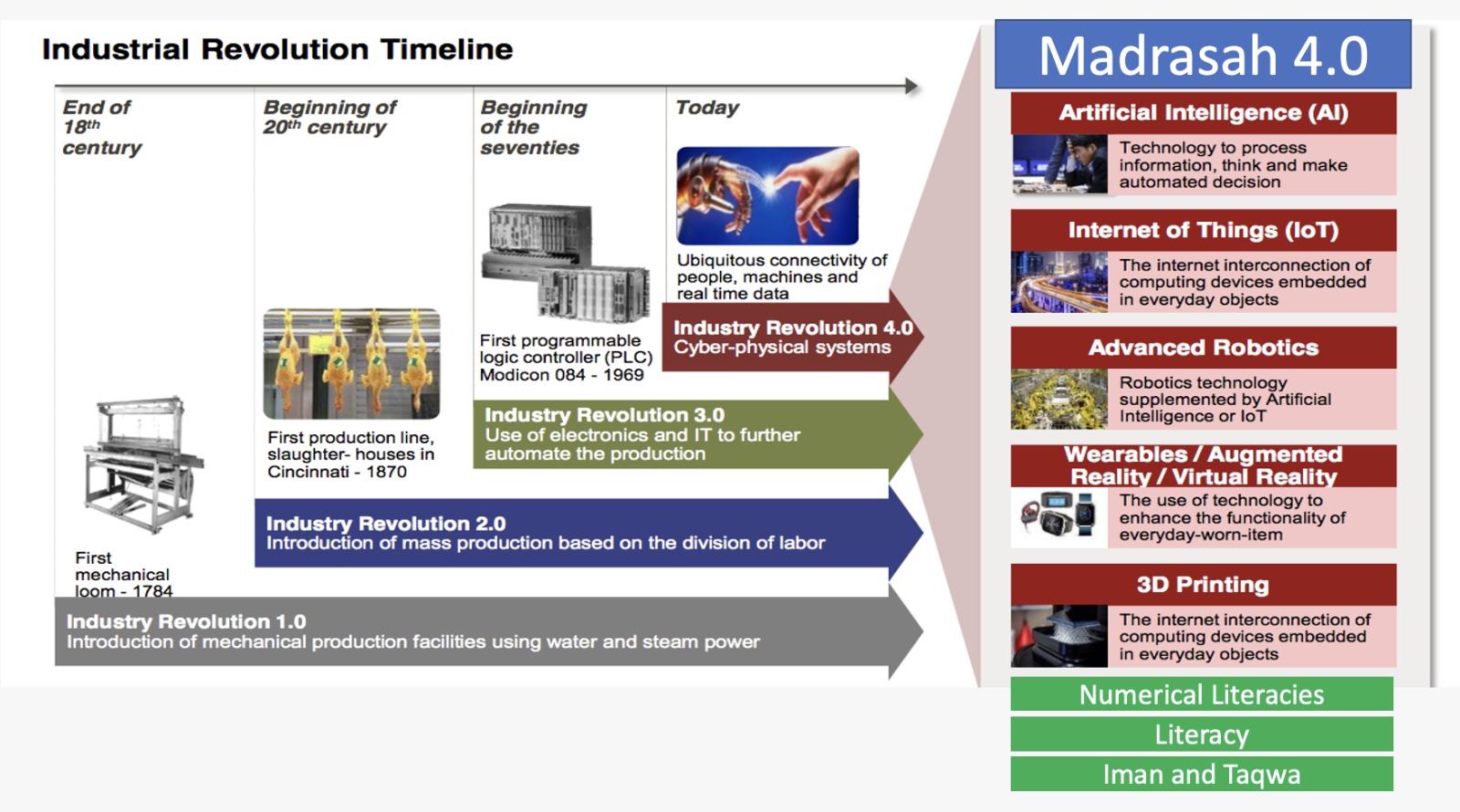
This means using technology in order to teach students about technology as part of the curriculum, changing the approach to learning together, and utilizing technology to improve the learning experience. Teachers are in this system tasked to mentor and tutor students in order to achieve their individual learning goals, rather than providing information to be learned. Lastly, teachers and students learn and work together applying their knowledge in weekly projects using technology 4.0 methods and tools, using a hands-on-methodology, in order to get a solid, holistic understanding pertaining to the individual topic being taught.
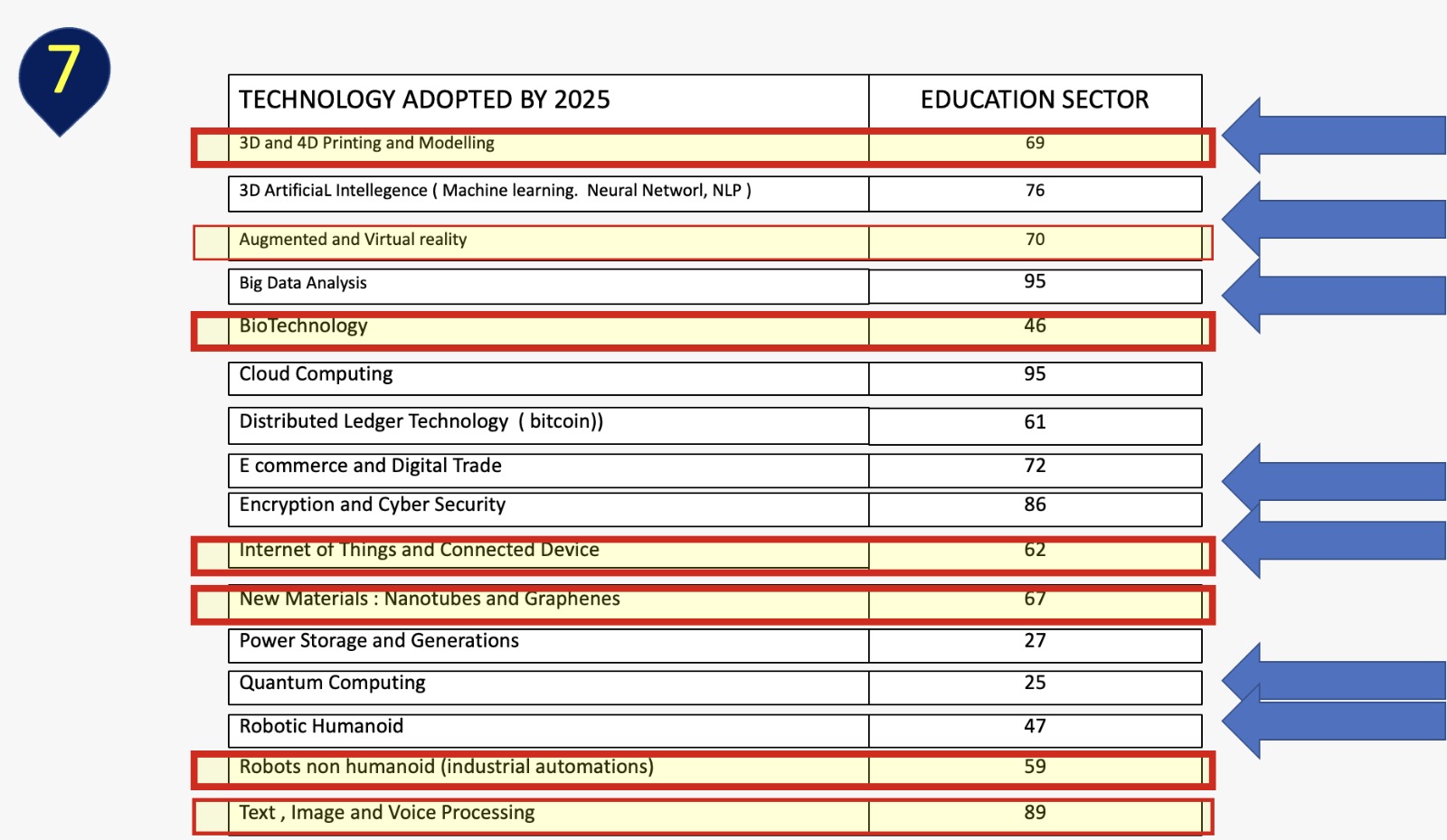
Madrasah 4.0 is a term used to describe the integration of technology and modern educational methods into traditional Islamic education (madrasah) systems. It is a response to the need to update Islamic education to keep up with the modern world, and to provide students with the skills and knowledge they need to succeed in a rapidly changing global economy.
Madrasah 4.0 aims to enhance the learning experience of students by integrating technology, such as computers, mobile devices, IOT, Robotic, AI and digital learning platforms, into traditional teaching methods. This approach enables students to access a wider range of learning materials, collaborate with peers and teachers in new ways, and develop the digital literacy skills they need to succeed in the modern world.
Madrasah 4.0 also incorporates innovative teaching methods that promote critical thinking, creativity, and problem-solving skills. This includes project-based learning, where students work on real-world projects that require them to apply the knowledge and skills they have learned in practical ways.
Overall, Madrasah 4.0 seeks to provide a modern, relevant, and inclusive Islamic education that prepares students for success in the 21st century.
Here is our initiatives toward Madrasah 4.0
1. We develop curriculum that utilising project based learning in which industry 4,0 were main theme, such as Robotic project, Iot Project, AI Project, AI And VR projects. 3D printing, New Materials such graphene as well as Biotechnology Project.
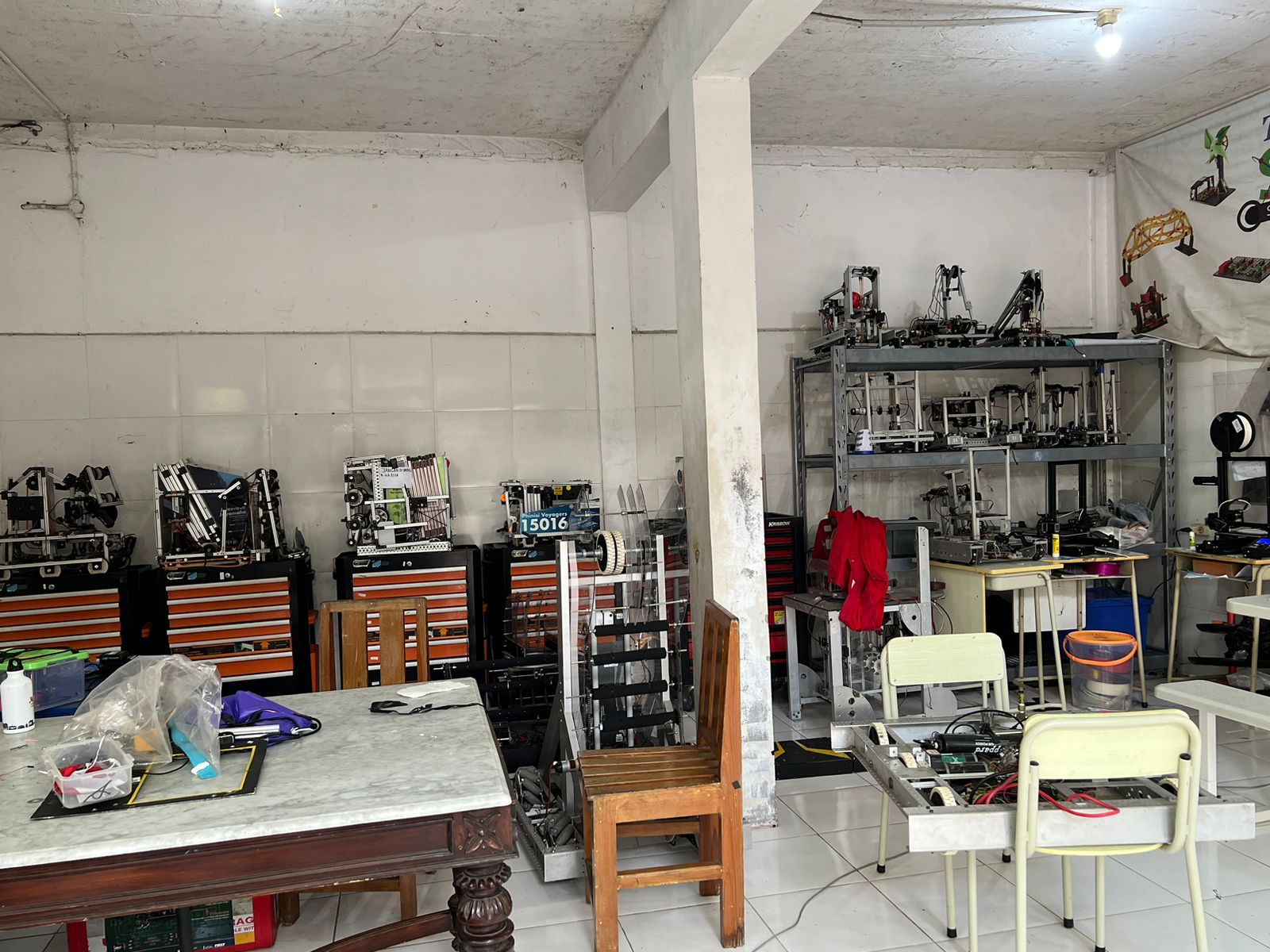
Robotic parts and equipment for secondary School
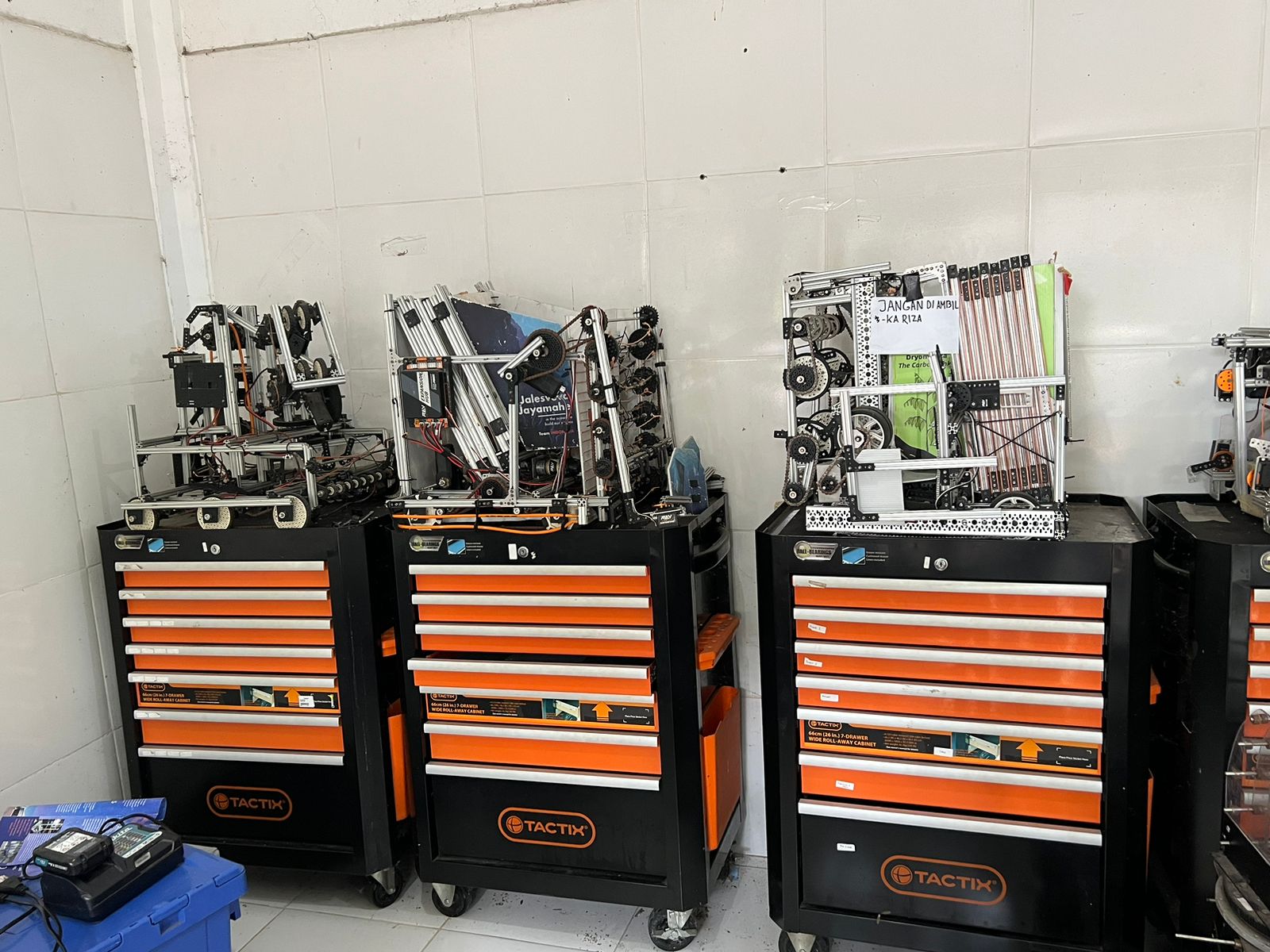
Robotic parts and equipment for secondary School
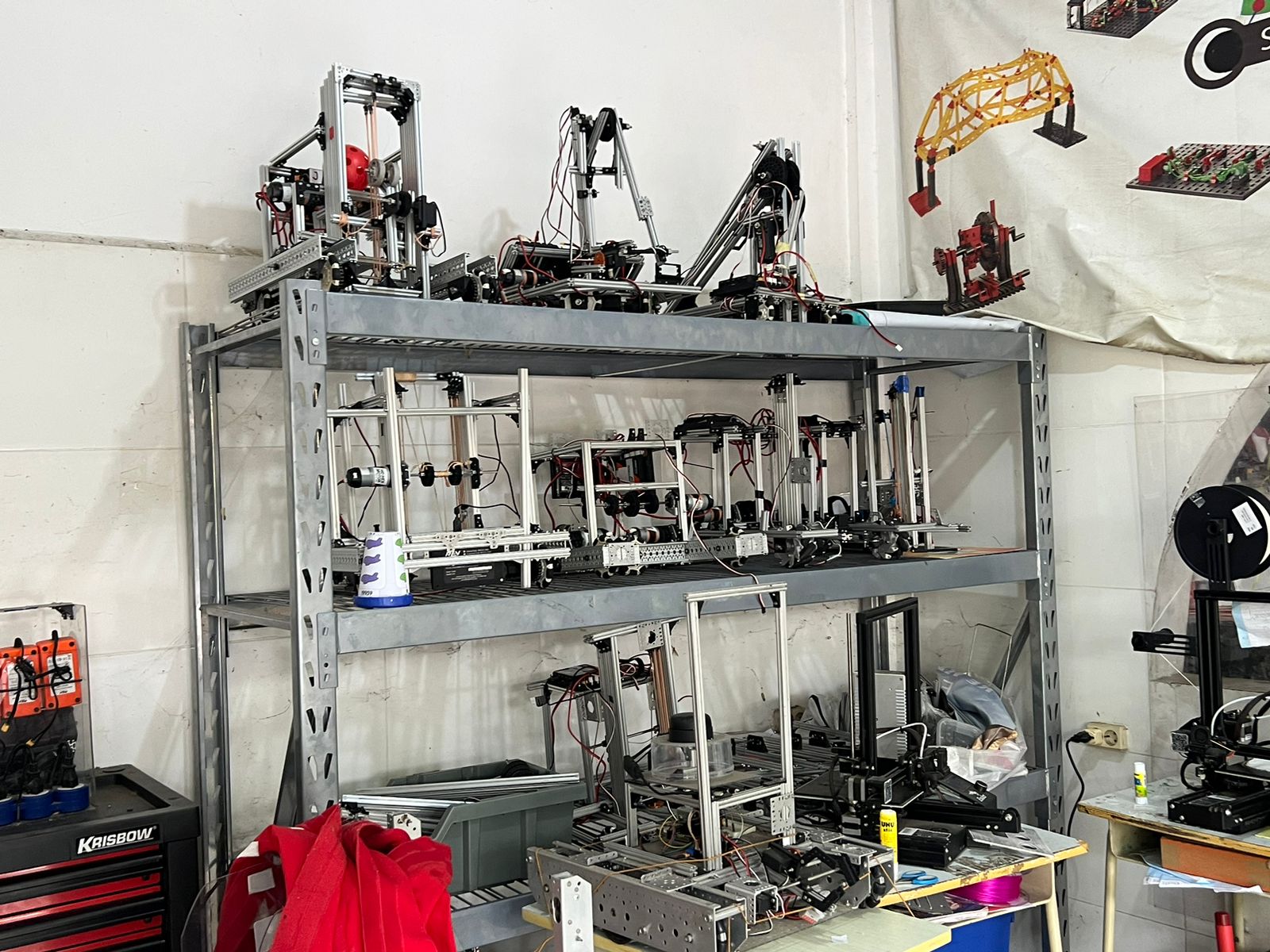
Robotic parts and equipment for secondary School
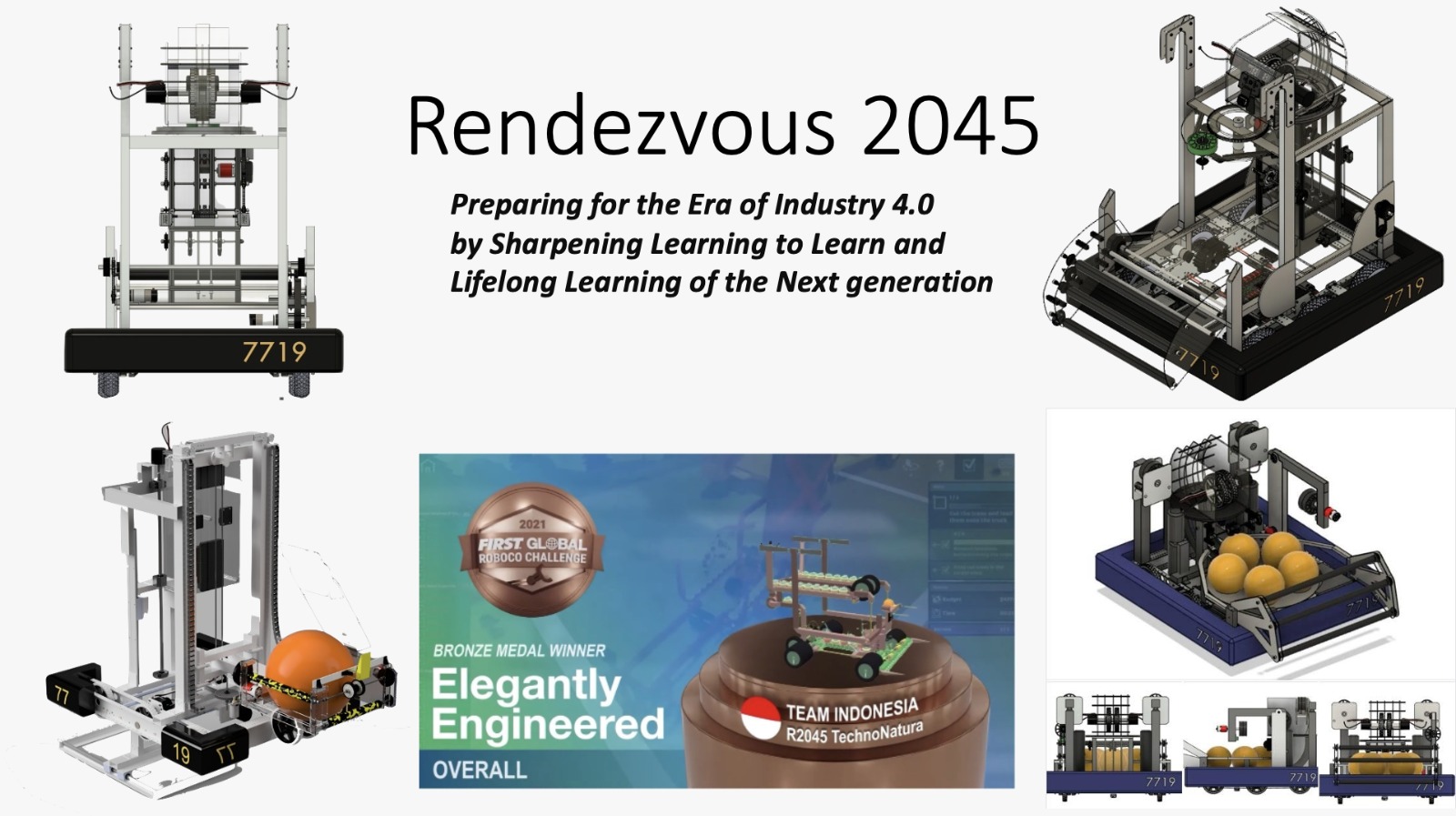
Robotic Activities at TechnoNatura for FRC, FTC and FGC
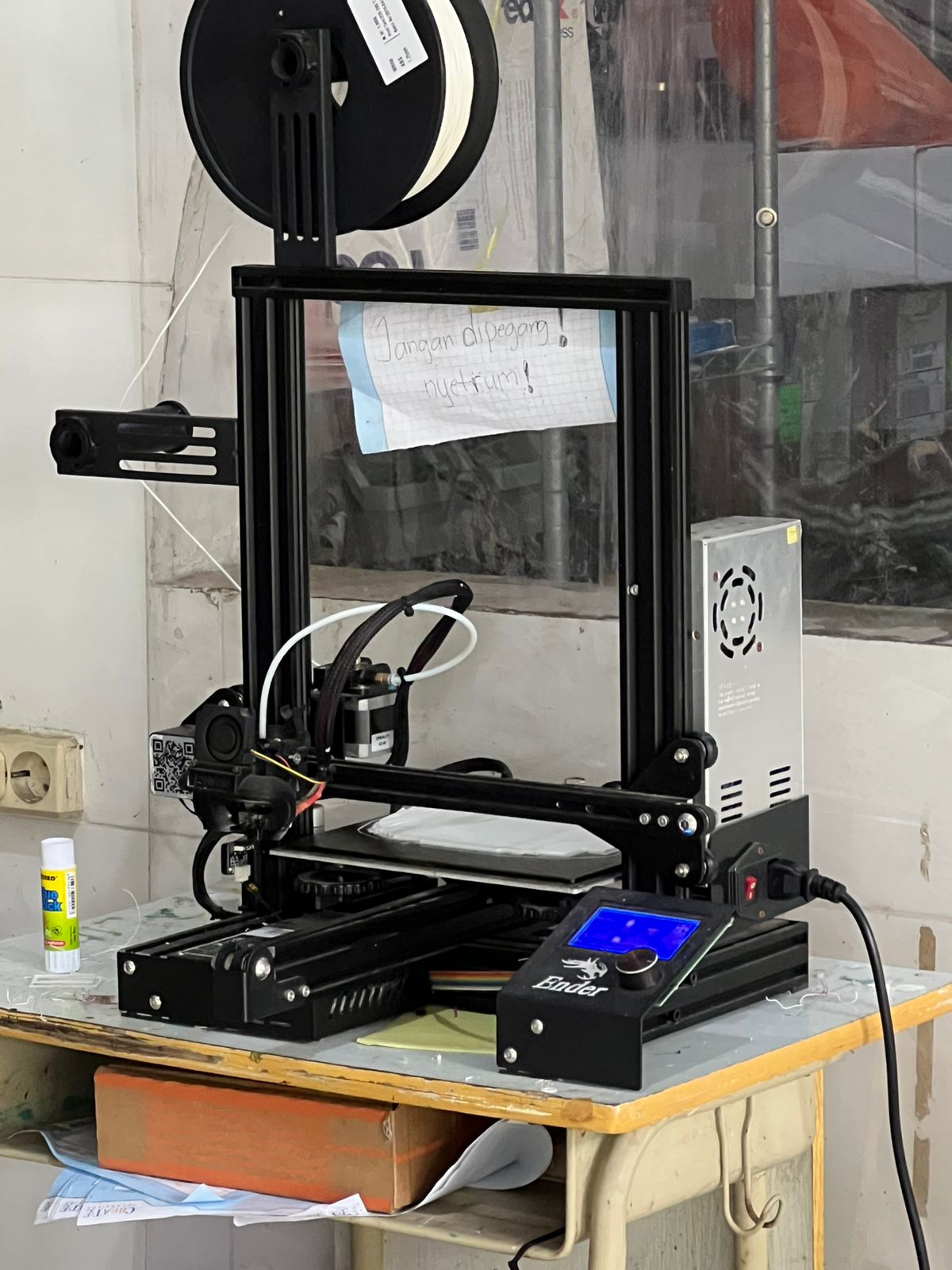
3D Printing for Fab Lab
As Education then need to be shifted from “thought” to “doing” and further to “creating and innovating”. No longer just about ideas, “It’s not about ideas. It’s about making ideas happen”. One effective learning tool to shift from “thought” to “doing” and further to “creating and innovating” are doing a robotics, IOT and AI, project as a potential dominant technology in the future. And FIRST is one excellent program we have so far.
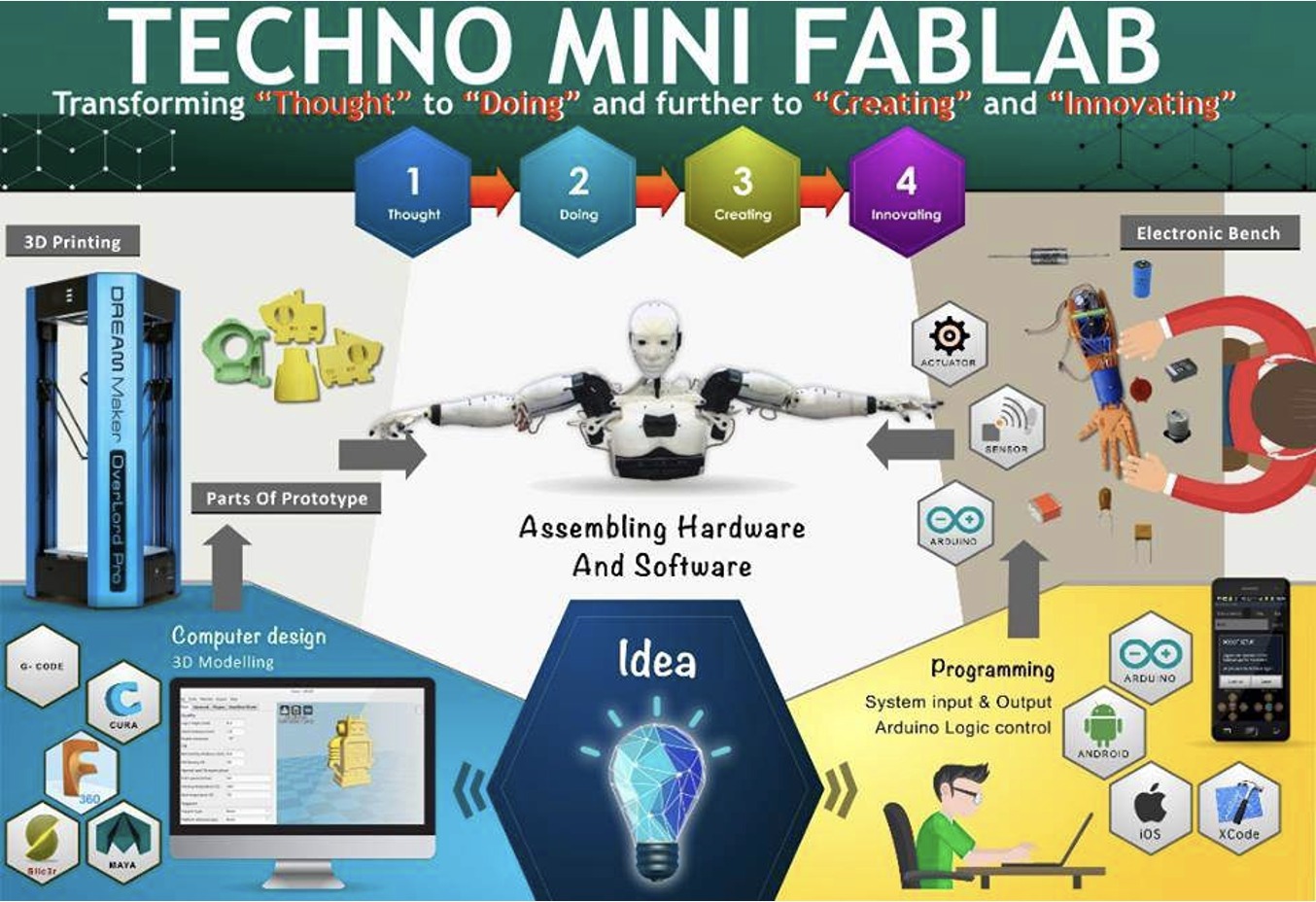
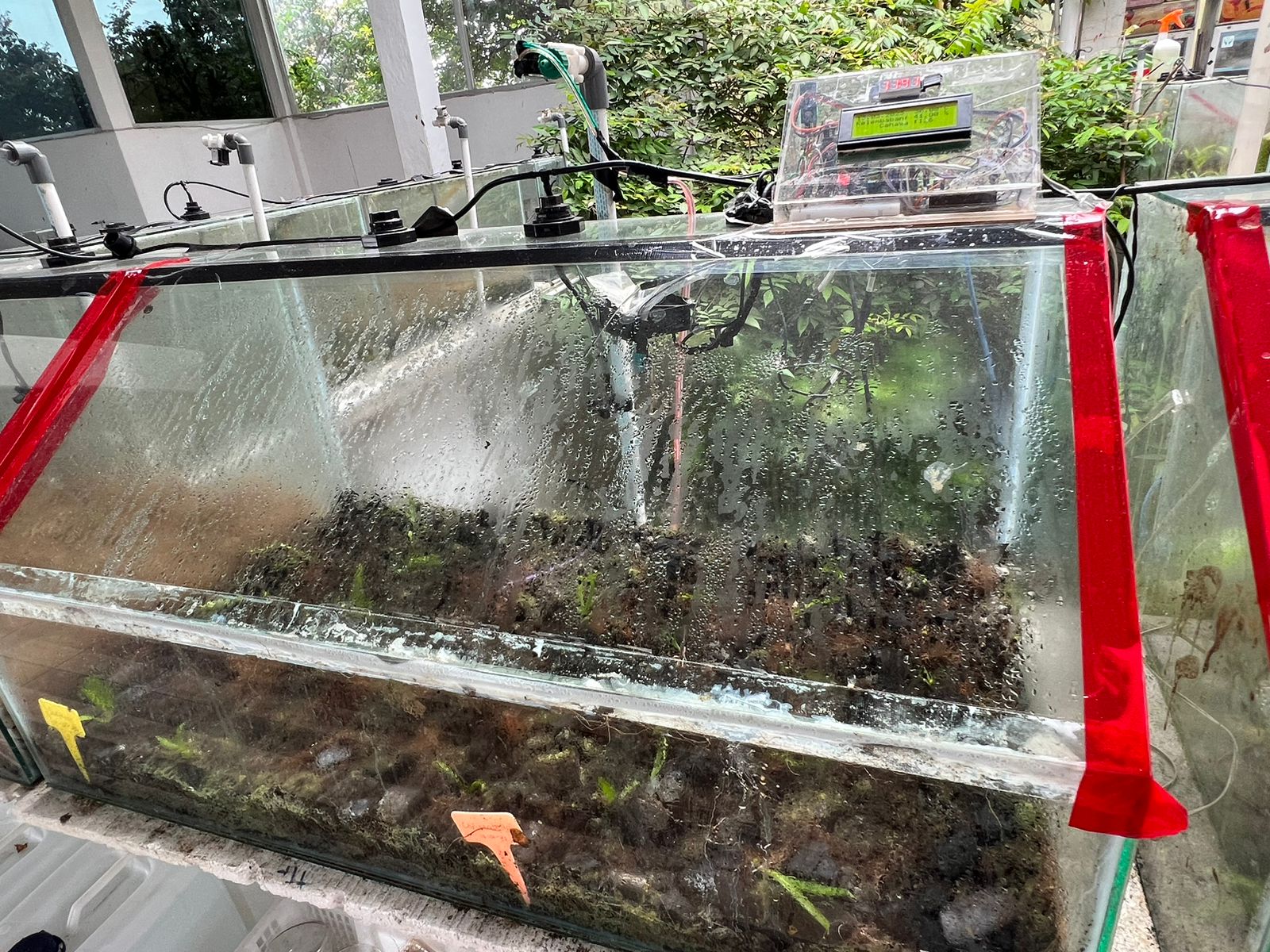
IOT Plant Incubator Project
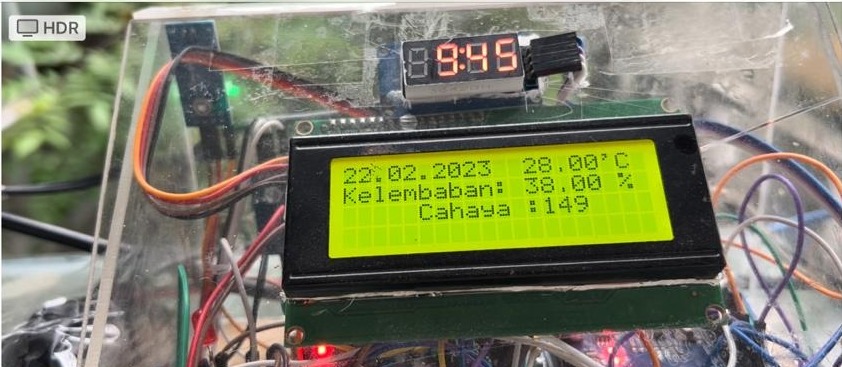
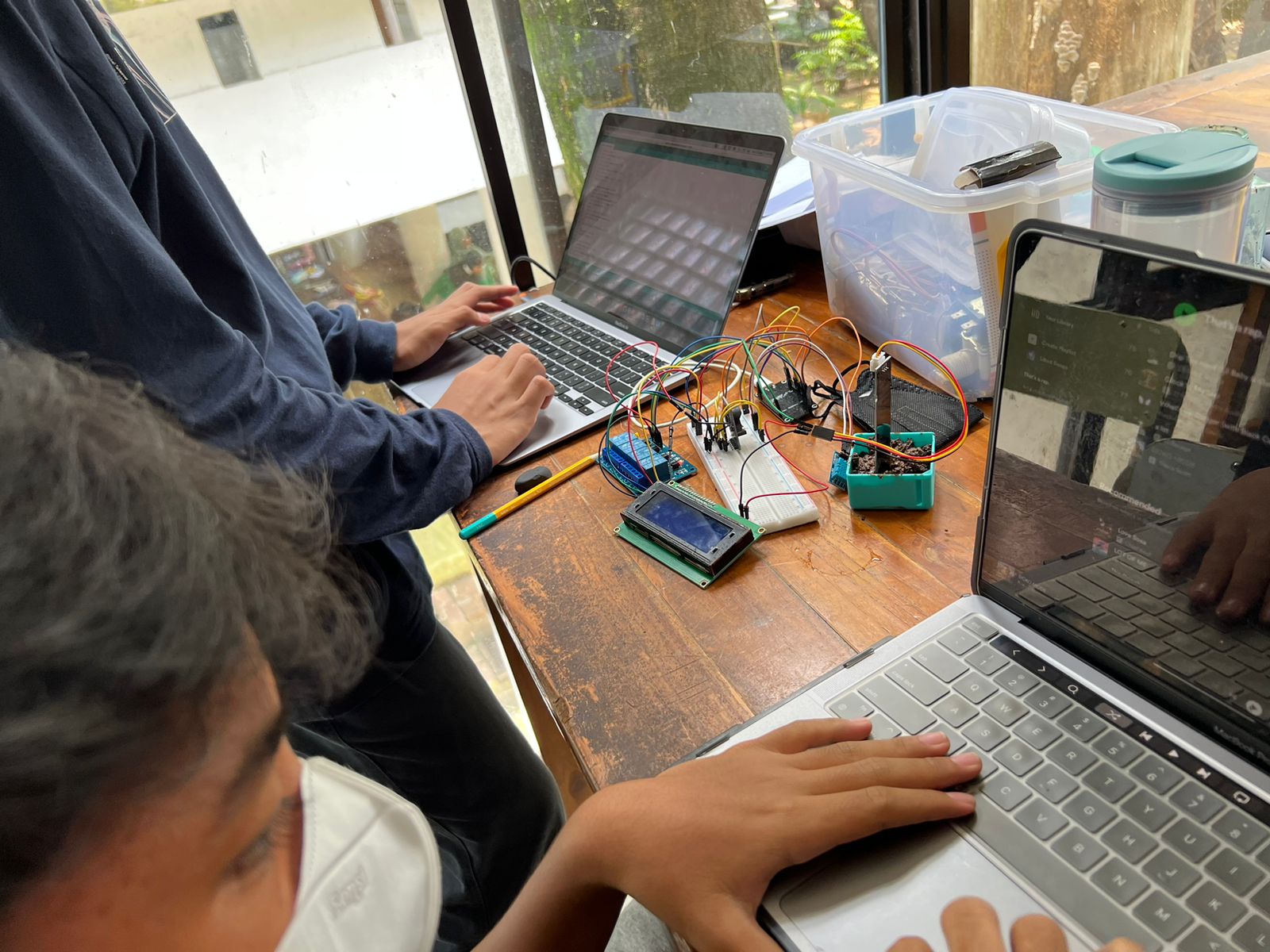
IOT Plant Incubator Project student at work
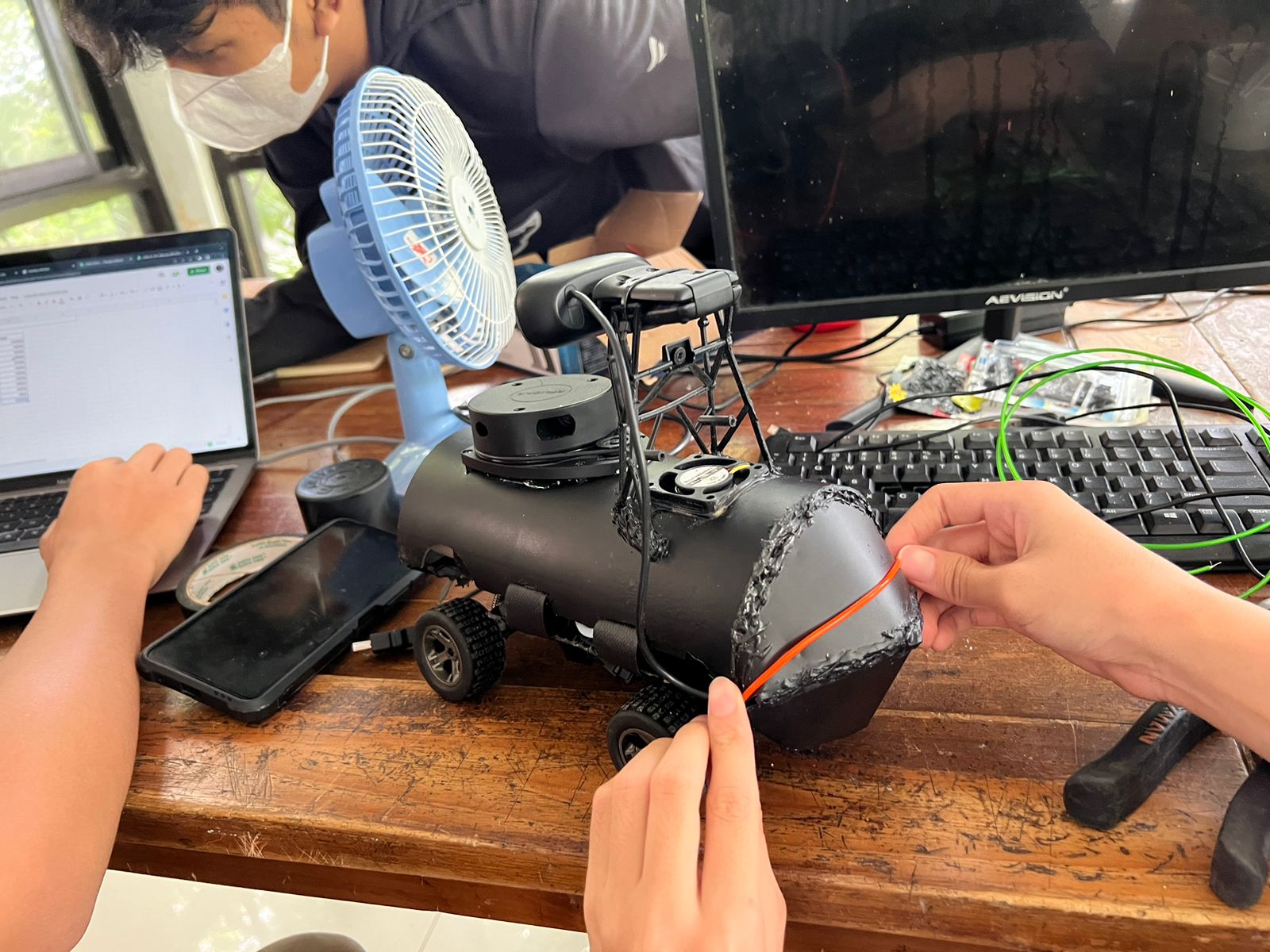
Autonomous AI Racing Car Project
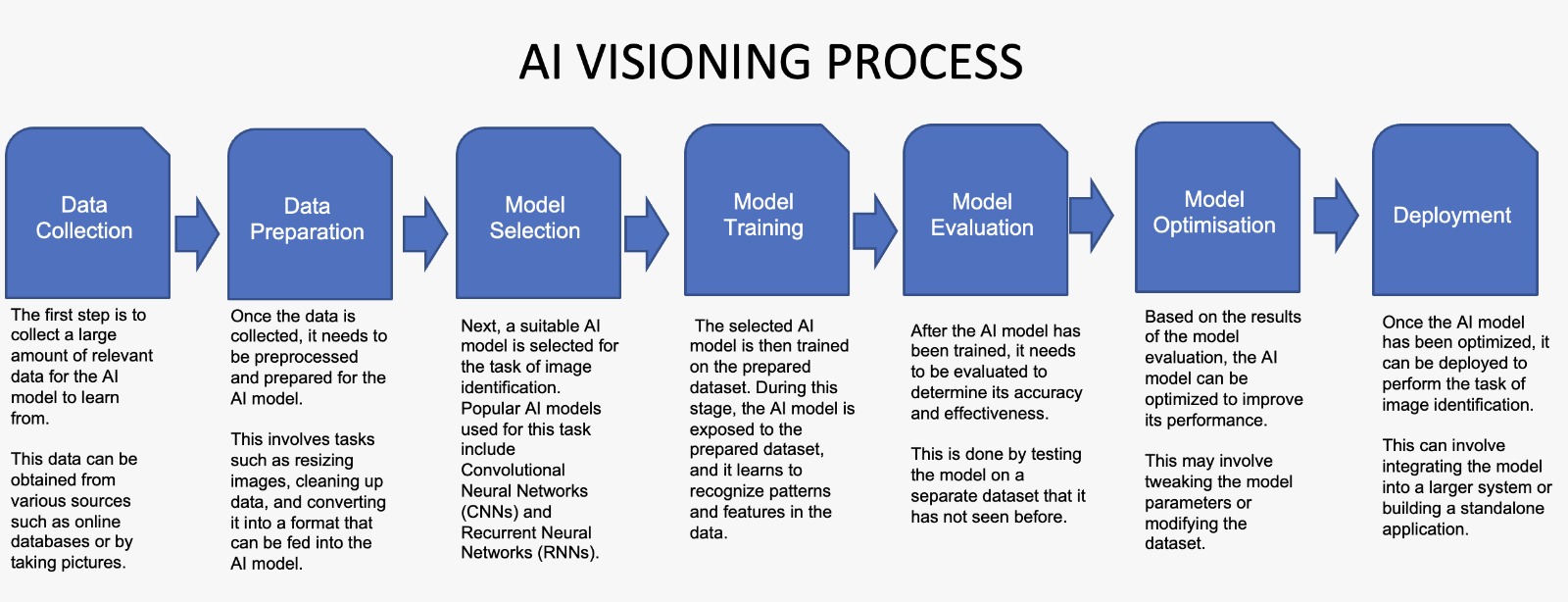
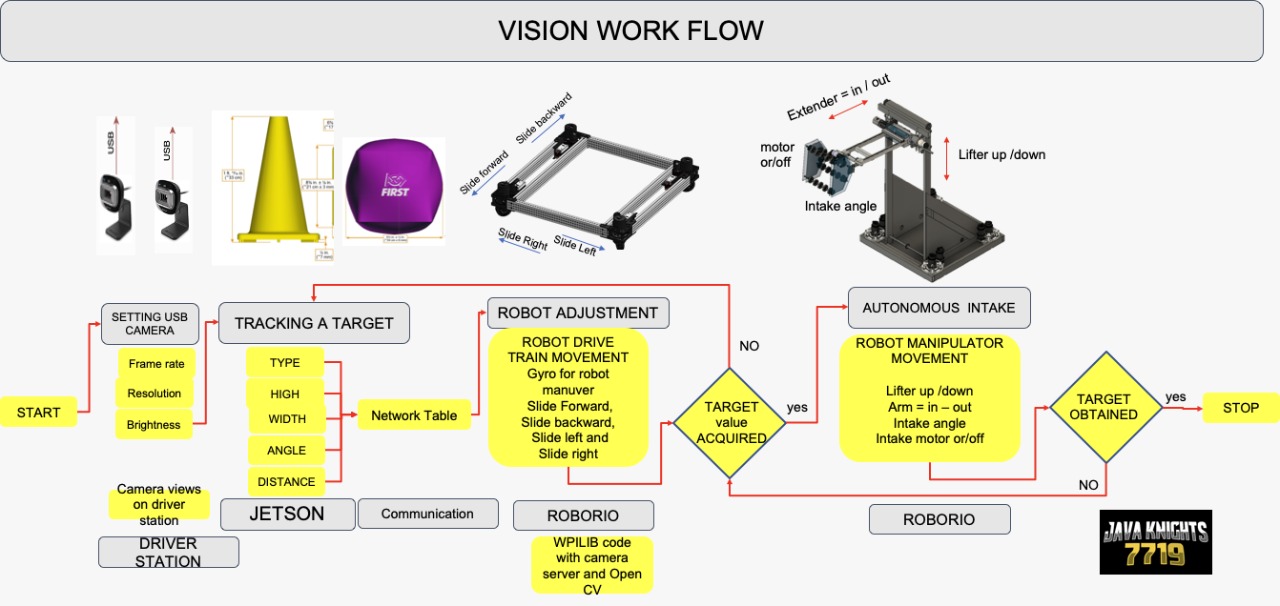
THE USE OF JETSON NANO FOR VISIONING AND HELPING THE AUTONOMOUS SYSTEM ON. RED CAT FRC ROBOT, Catopuma badia FRC / ArCaDia
2. We develop Industry partnerships to understand their requirements and integrate them into the curriculum. it help students to gain practical knowledge and be better prepared for employment in the Industry 4.0 workforce.
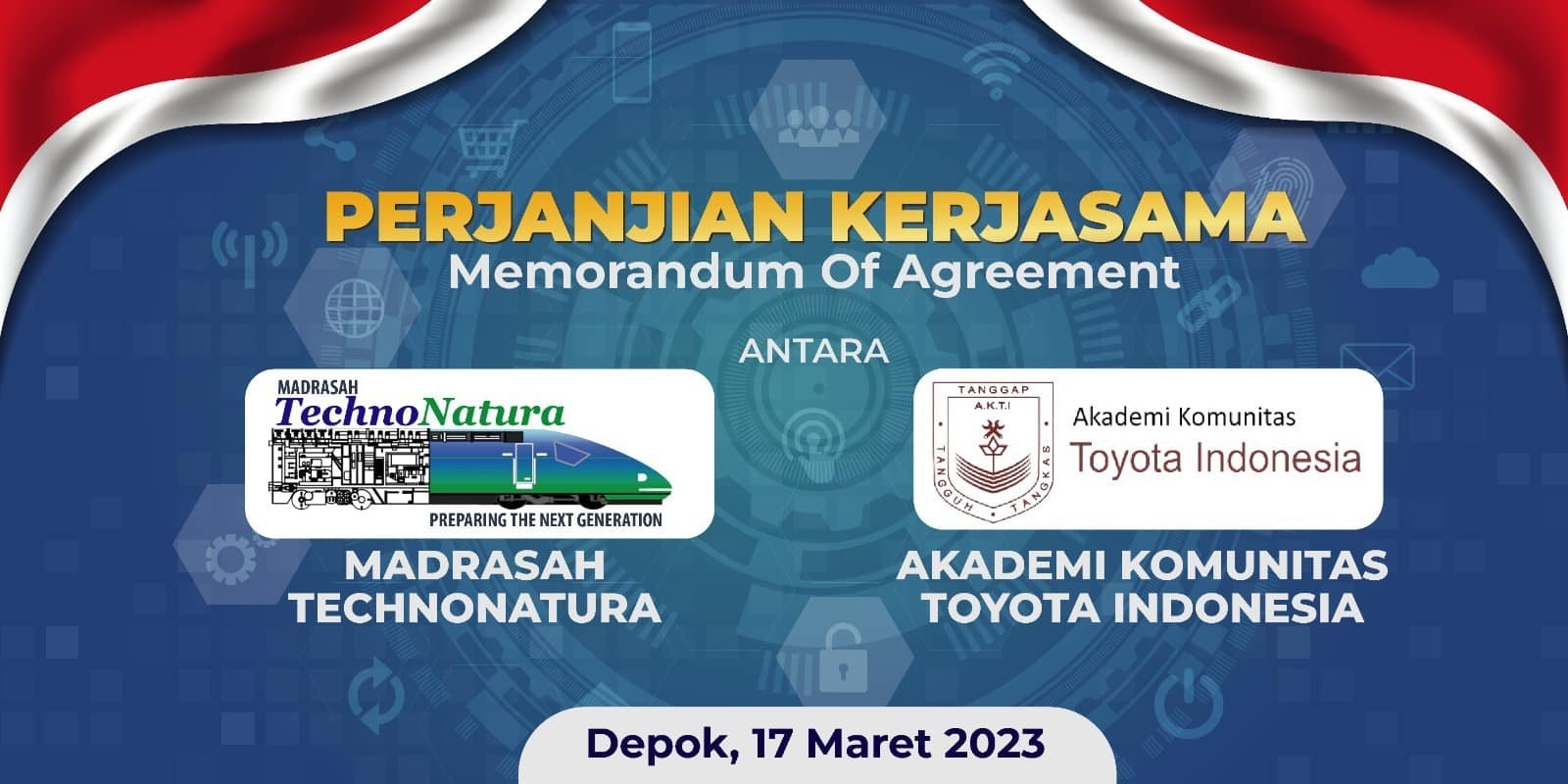
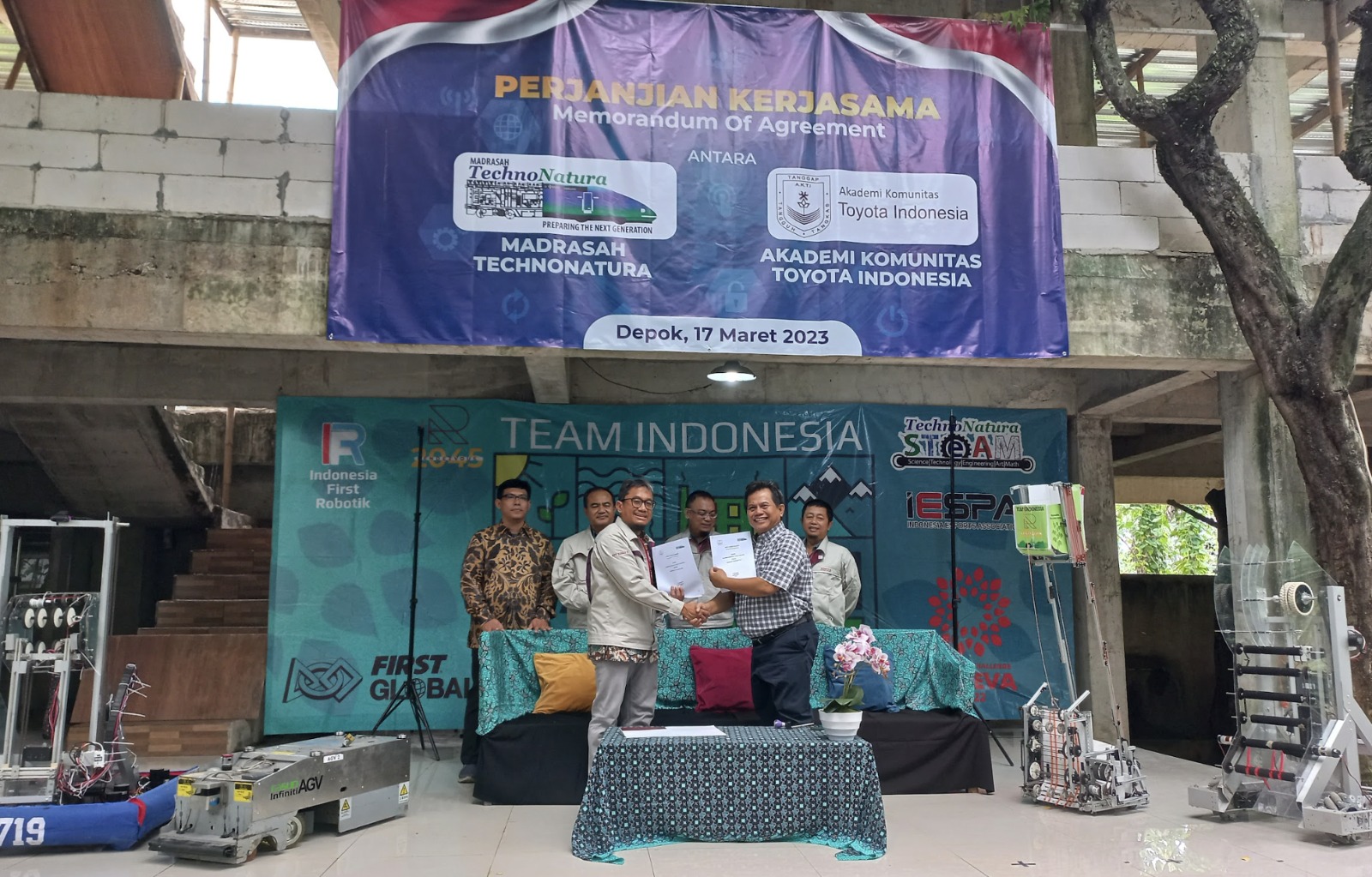
3. We integrate Islamic ethical considerations to ensure that students are not only prepared for the technological advancements in Industry 4.0 but also understand the importance of ethical practices in the workplace.
4. We develop Soft skills in each of our projects. Moreover, in the 21st century, success is no longer about what to think. To stand out in the future, the next generation have to shape their ways of thinking with creativity and critical thinking skills and act as a problem solver, underpin their ways of working with collaboration and communication skills to become a collaborative problem solver, and master their ways of working using digital transformation and Industry 4.0 and live happily as global professional.
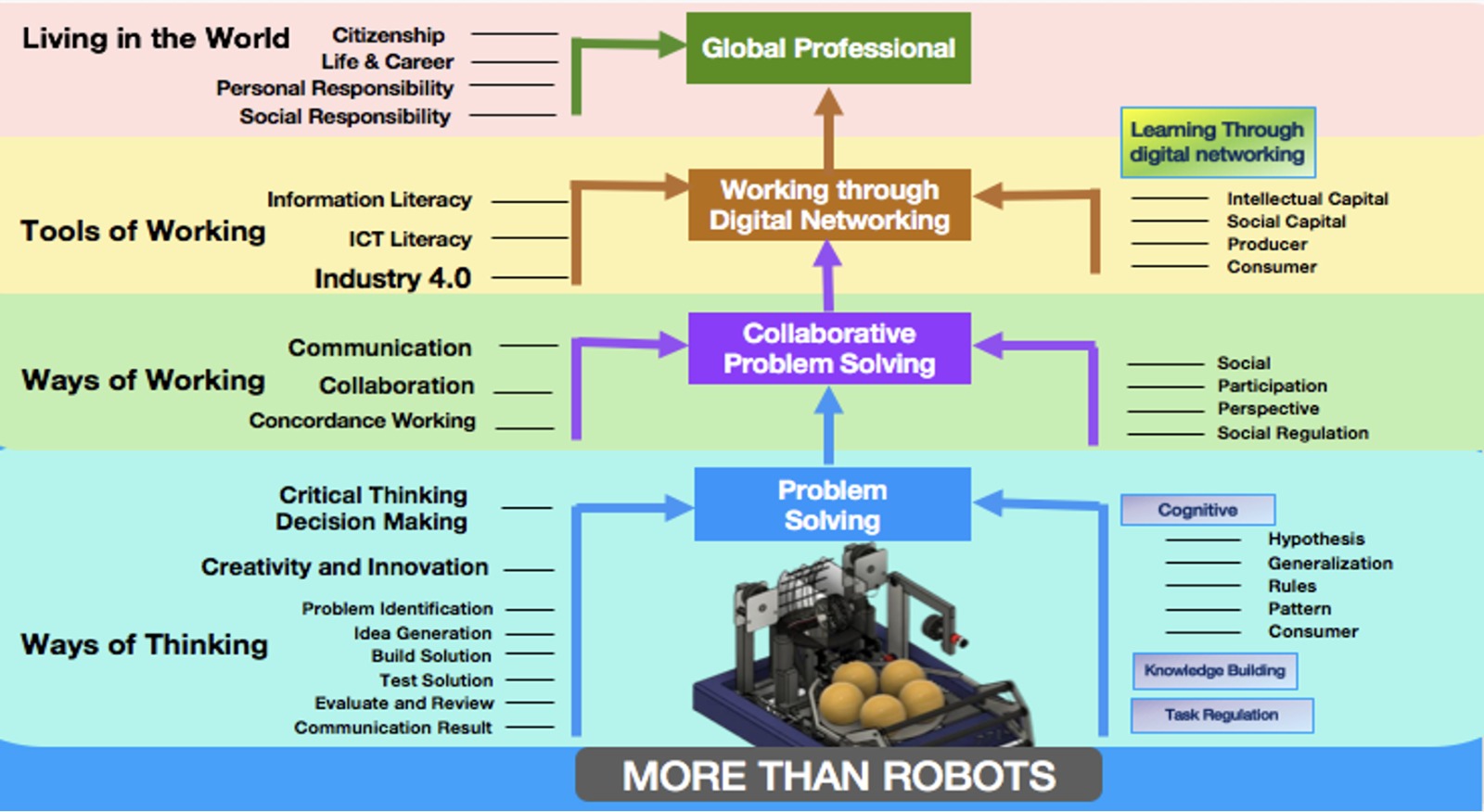
5. We utilise online learning platforms to provide students with access to quality education beyond the classroom. This will enable students to learn at their own pace and in their own time and developer self-long life learning.
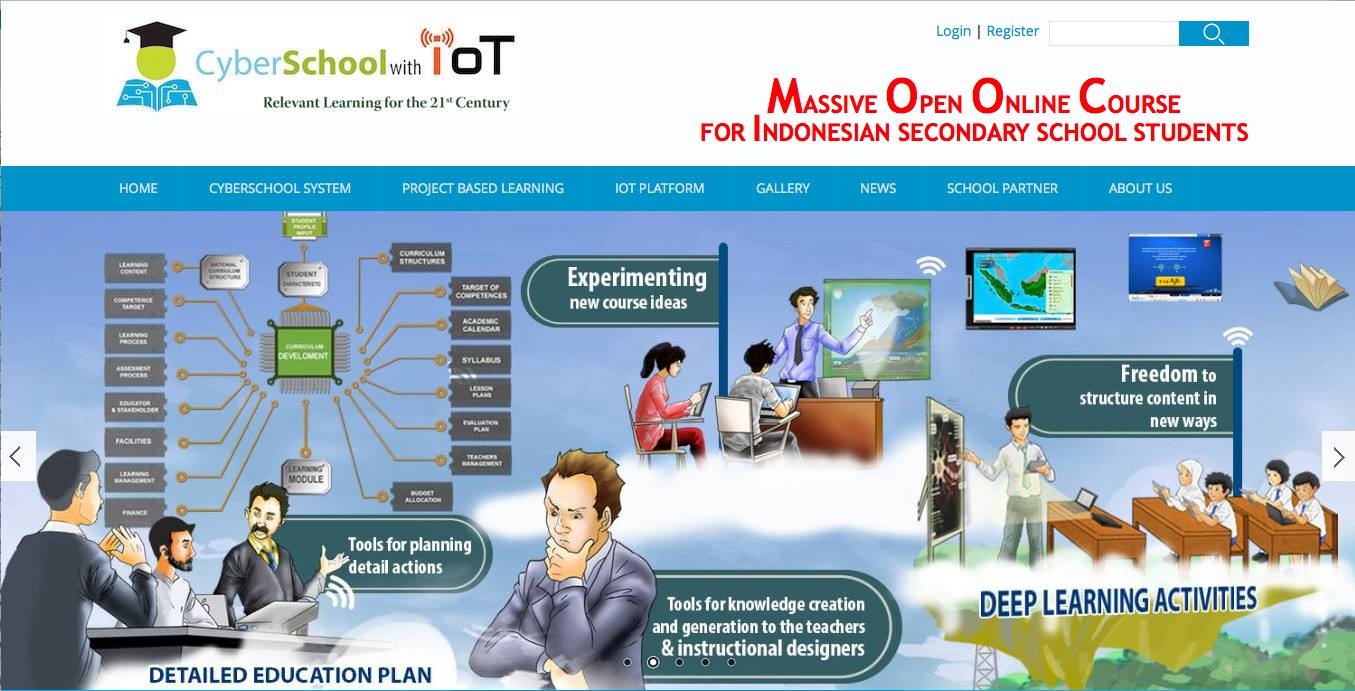
By incorporating Industry 4.0 skills and technologies into the Madrasah curriculum, students can be better prepared to face the challenges and opportunities presented by the future of work, whatever form it may take.
4. The Challenge of Environmental Care : TOWARD GREEN MADRASAH
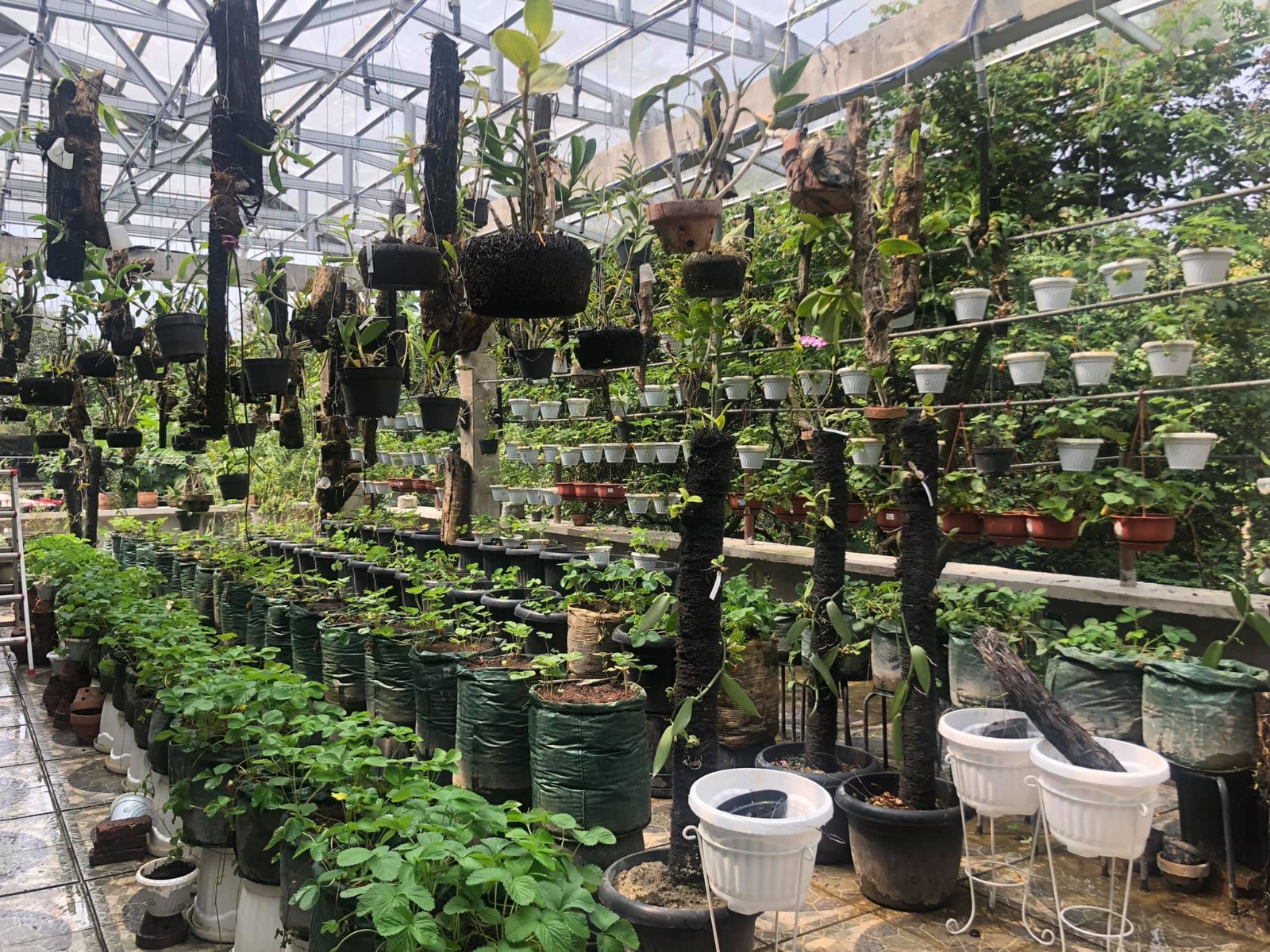
Environmental problems are issues that affect the natural world and can have negative consequences on ecosystems, wildlife, and human health. Climate change, Air pollution, Water pollution, Deforestation, Plastic pollution and Overfishing are among the most urgent issues facing society, and it is critical that we take action to reduce our impact on the environment. Here are some Initiatives taken by Madrasah TechnoNatura to become more environmentally friendly and contribute to mitigating climate change:
- Sustainable practices: Incorporate sustainable practices such as waste reduction, water conservation, Bio diversity conservation and energy efficiency into the curriculum and operations of Madrasah TechnoNatura.
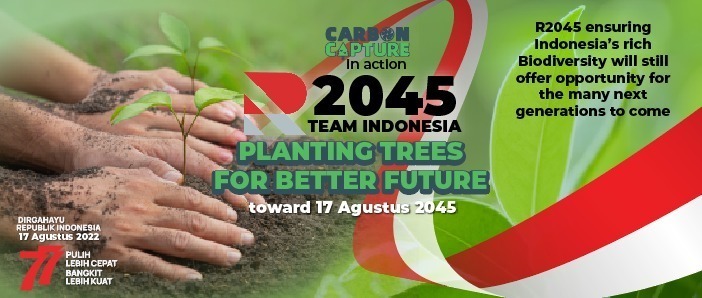
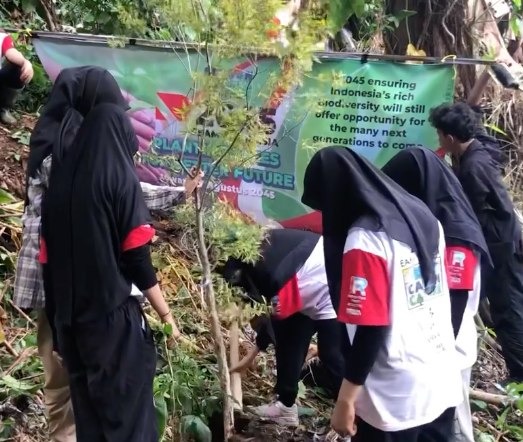
3, Environmental education: Integrate environmental education into the Madrasah curriculum to raise awareness among students about the importance of protecting the environment and mitigating climate change, teaching students about the impacts of climate change and the importance of sustainability.
• Making of Eco-enzyme project as part of waste reduction. This Bio-enzymes are used as fertiliser to our plants in green house to improve soil quality and enhance plant growth.
• The Conservation of Orchids project
• Making conservation project by cloning endangered plants
• Plant Incubator IOT Project
• Plant/Fish Identification AI project
• Making mini rainforest at school project
• Butterfly House project
• Cultivating the plant though hydroponic and tissue culture to conserve less water project.
• Cloning and Stem cutting for reforestation
• Making module of solar cell installation as part of energy alternative project
• Making Robotic AI and IOT for studying plant identification and climate change
• School Outreach event to socialise solar panel installation in a number of places
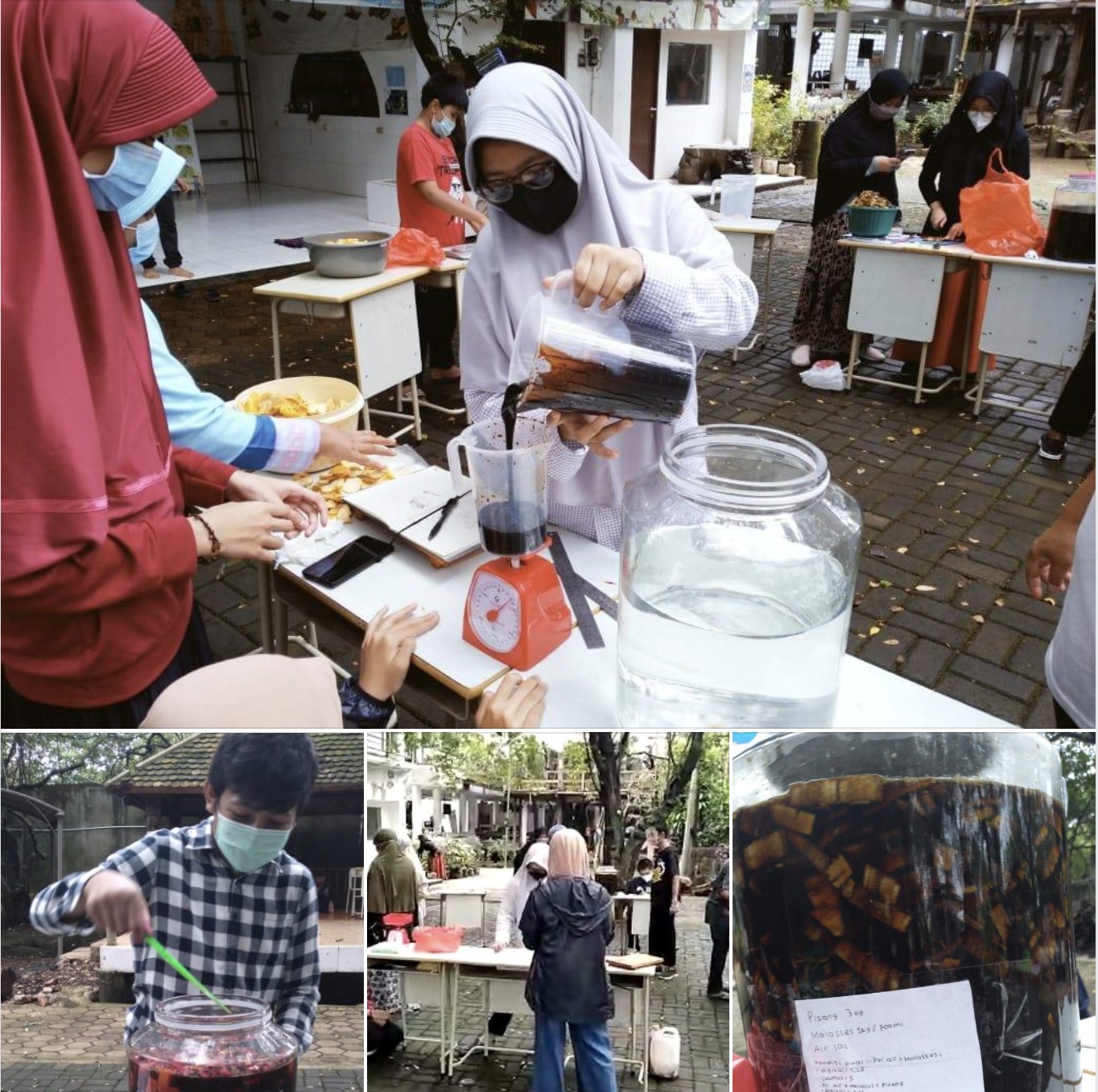
The Making of EcoEnzyme Project
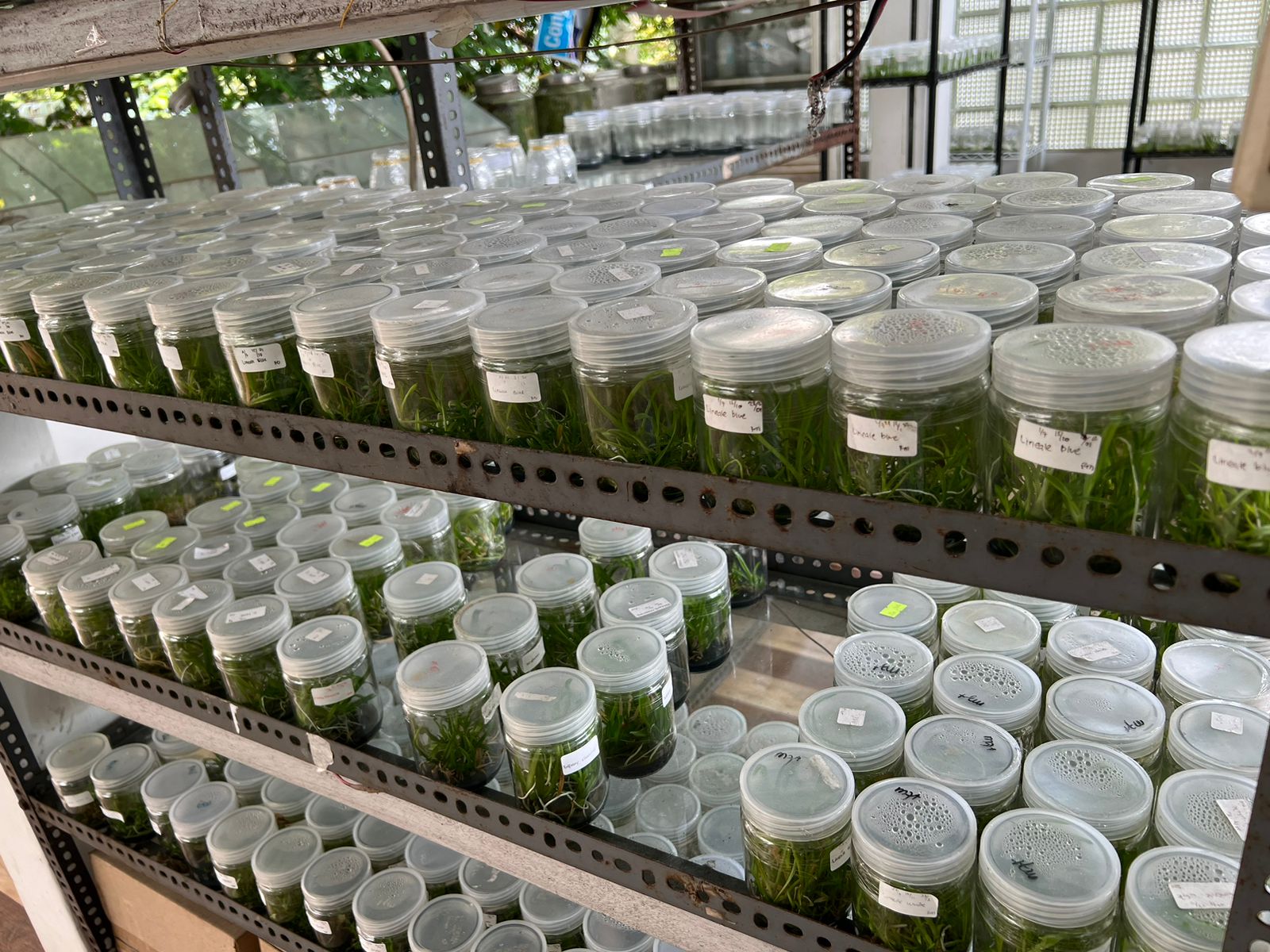
Tissue Culture Lab at TechnoNatura
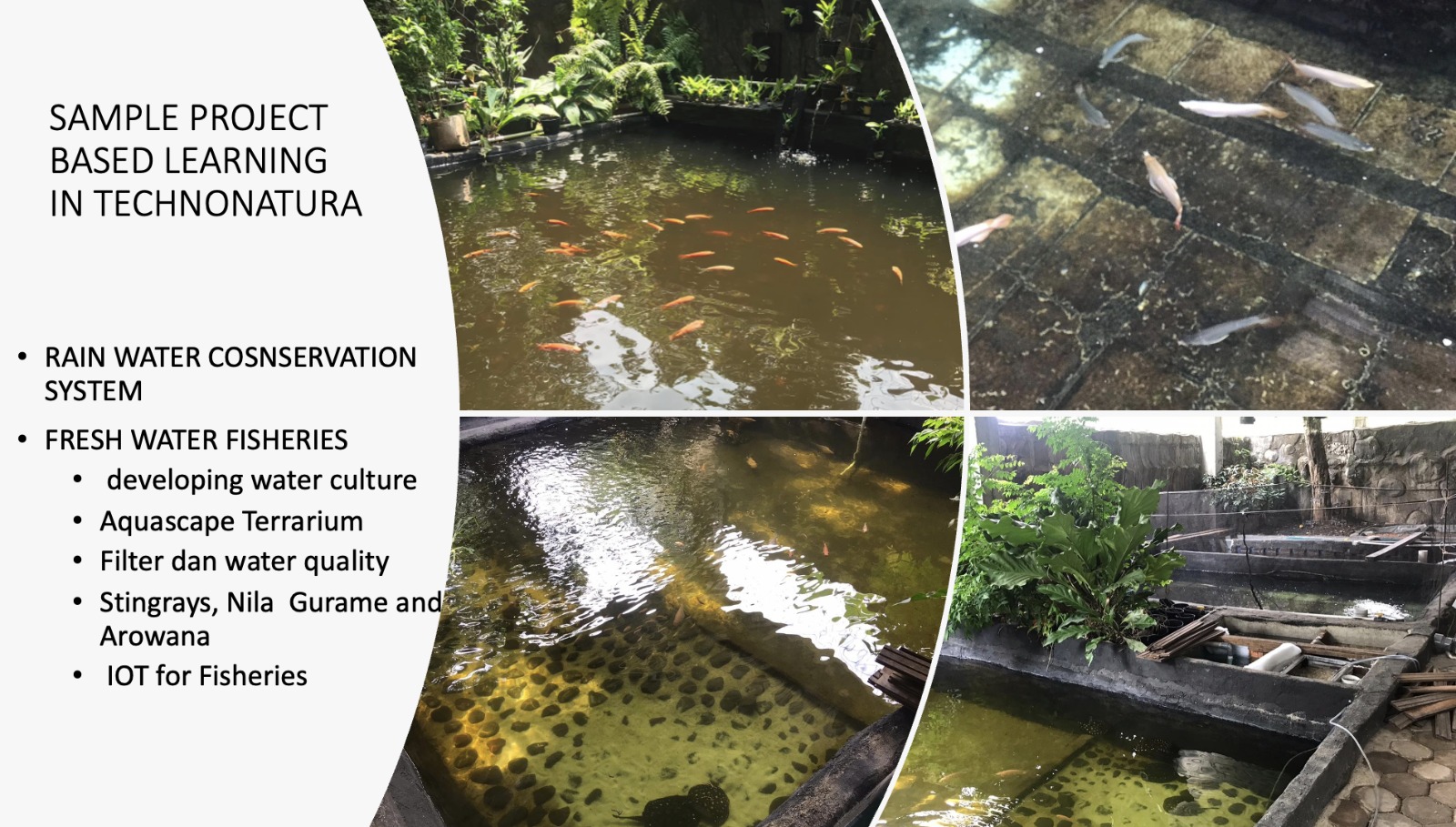
-
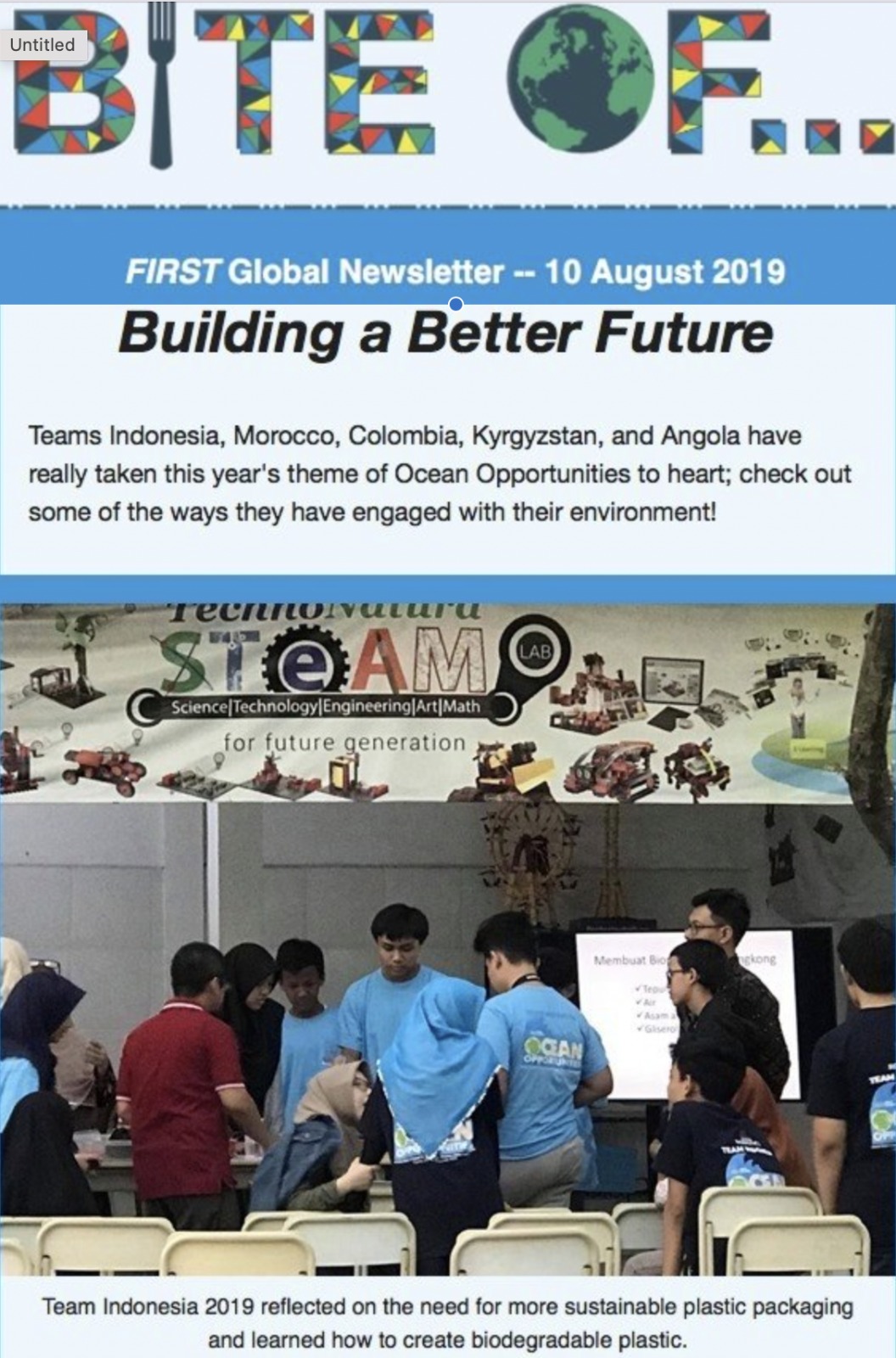
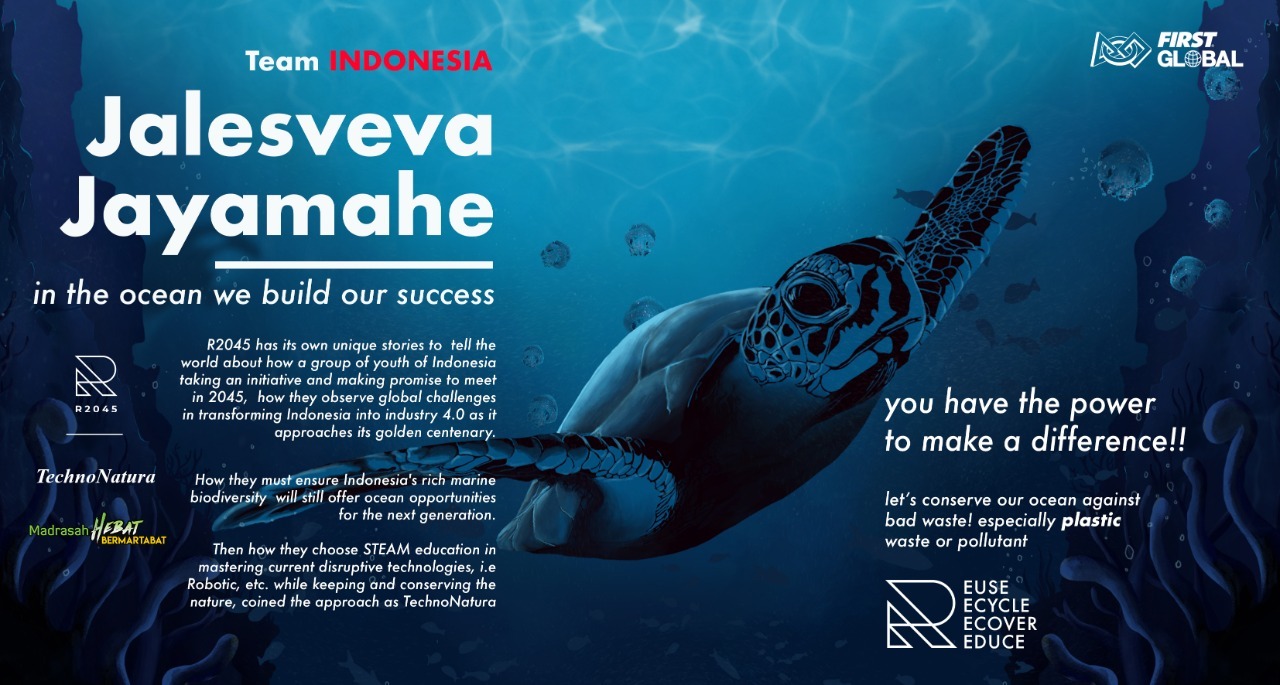
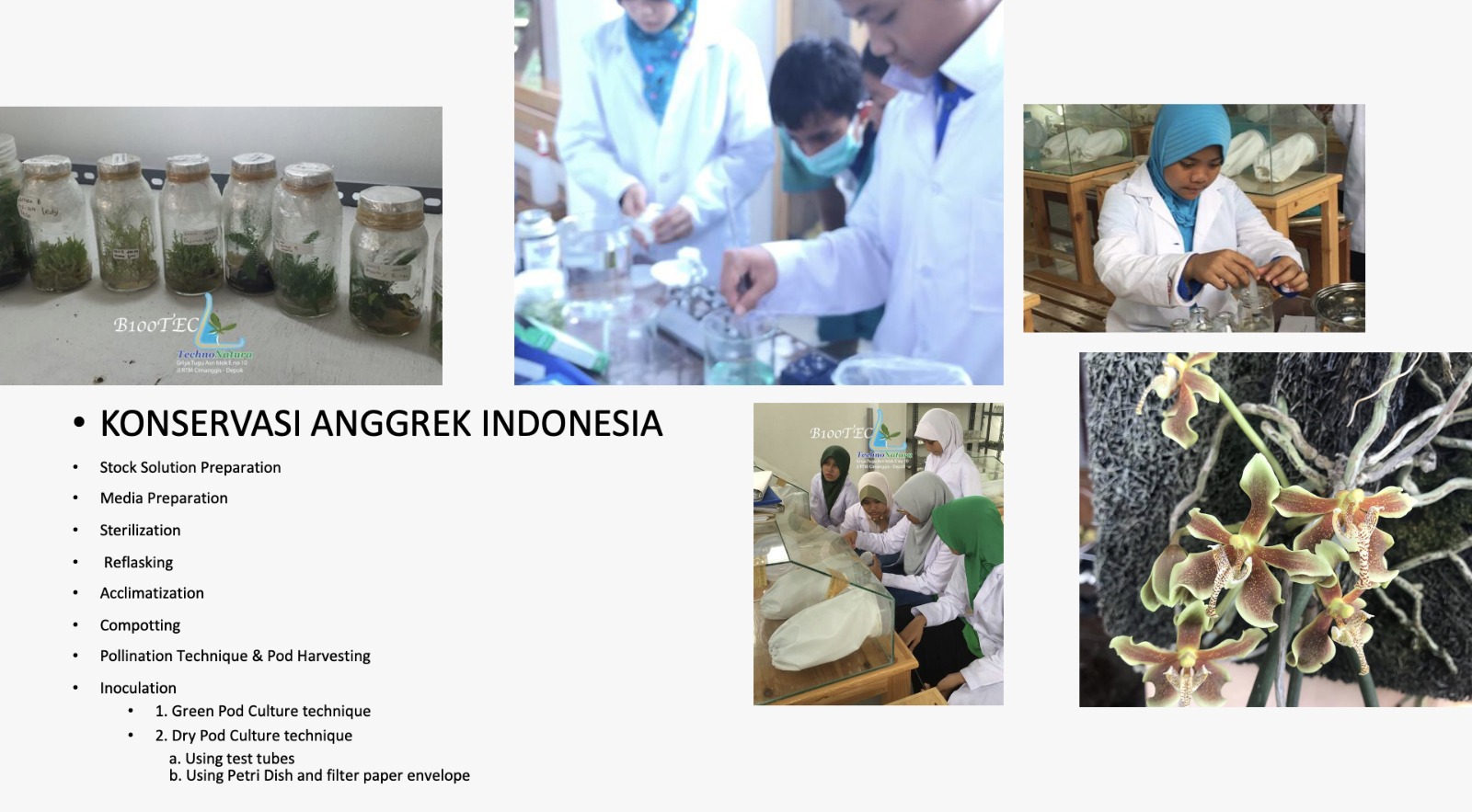
- Community engagement: Engage with the local community to promote environmental awareness and encourage sustainable practices. This can include organizing environmental campaigns, tree planting events, and other community-led initiatives.
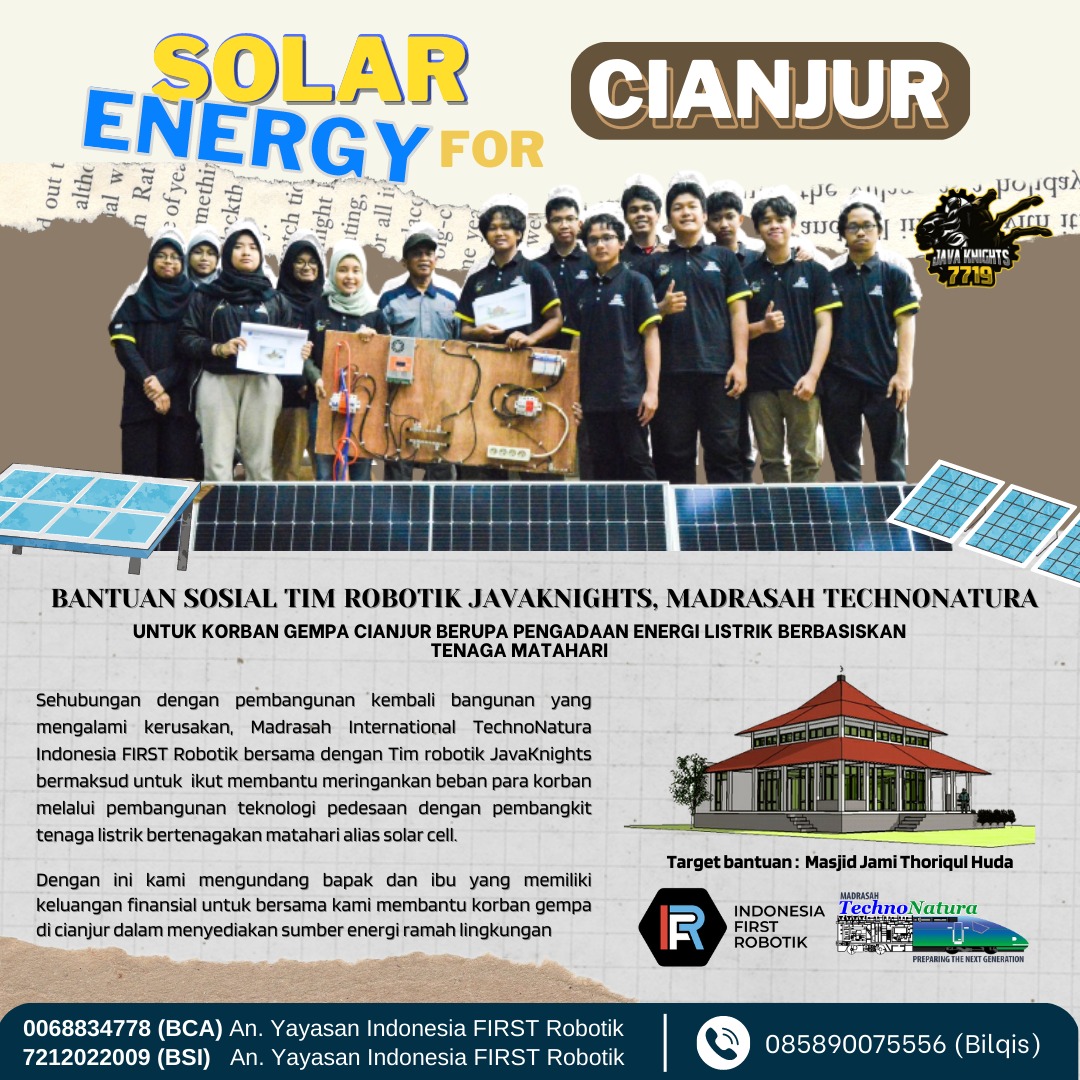
- FIRST Global Challenge Participation
We participate the FIRST Global Challenge since its inception in 2017, Our school has been making partnership with FIRST Global, The FIRST Global Challenge is an olympics-style, international robotics competition that takes place in a different country each year. Teams work together to complete tasks in a game themed around one of the greatest challenges facing our planet, including the 14 Grand Challenges for Engineering, in an effort to foster understanding and cooperation among the youth of the world as they use their abilities to solve the world’s problems. The challenges we face as a global society need to be solved, and the next generation can meet the task — together.
Every year The FIRST Global Challenge has chosen theme that included challenges related to environmental sustainability and energy conservation.
2017 FIRST Global Challenge, the theme was “ACCESS TO CLEAN WATER” The world's water supplies are facing new threats; affordable, advanced technologies could make a difference for millions of people around the worldThe 2018 FIRST Global Challenge was held in Mexico City.
The 2018 Challenge was called Energy Impact and explored the impact of various types of energy on the world and how they can be made more sustainable.
The 2019 First Global Challenge, the theme was "Ocean Opportunities," and the challenges focused on issues related to the ocean, such as plastic pollution and sustainable fishing practices
In 2022 First Global Challenge 2022 THEME: CARBON CAPTURE AND STORAGE OF CARBON DIOXIDE. It introduced a key concept to limiting the negative effects of climate change on our planet and challenged FIRST Global teams to reimagine the future of Earth’s climate through carbon capture and storage processes.In 2022, the challenge include The New Technology Experience (NTE). Presented in partnership with XPRIZE, in this component of the season created their own solutions to combat climate change and ensure the safety of our planet through the future.
TechnoNatura as a Indonesian Team Representative proposed a solution of the “Vegetative Propagation Of Dryobalanops Aromatica/Sumatran Camphor Tree Through Stem Cutting and Tissue Culture Cloning for Forestation of Sumatra and Kalimantan”. Fostering Carbon Emissions Reduction, Conserving Endangered Species Trees, Building Long-Term Local Economy and Improving Socioeconomic Development and Livelihoods for Indonesians”.
In doing the FGC-XPRIZE project , we made collaboration with university of IPB department of Silvi culture and we are also made partnership with Bogor PUSTARHUT Center for Standardisation of Sustainable Forest Management Instruments, where we get all the Dryobalanops Aromatica Specimen for our work in Stem Cutting and Tissue Culture Cloning
The team was awarded with Silver medal of XPrize for this proposal.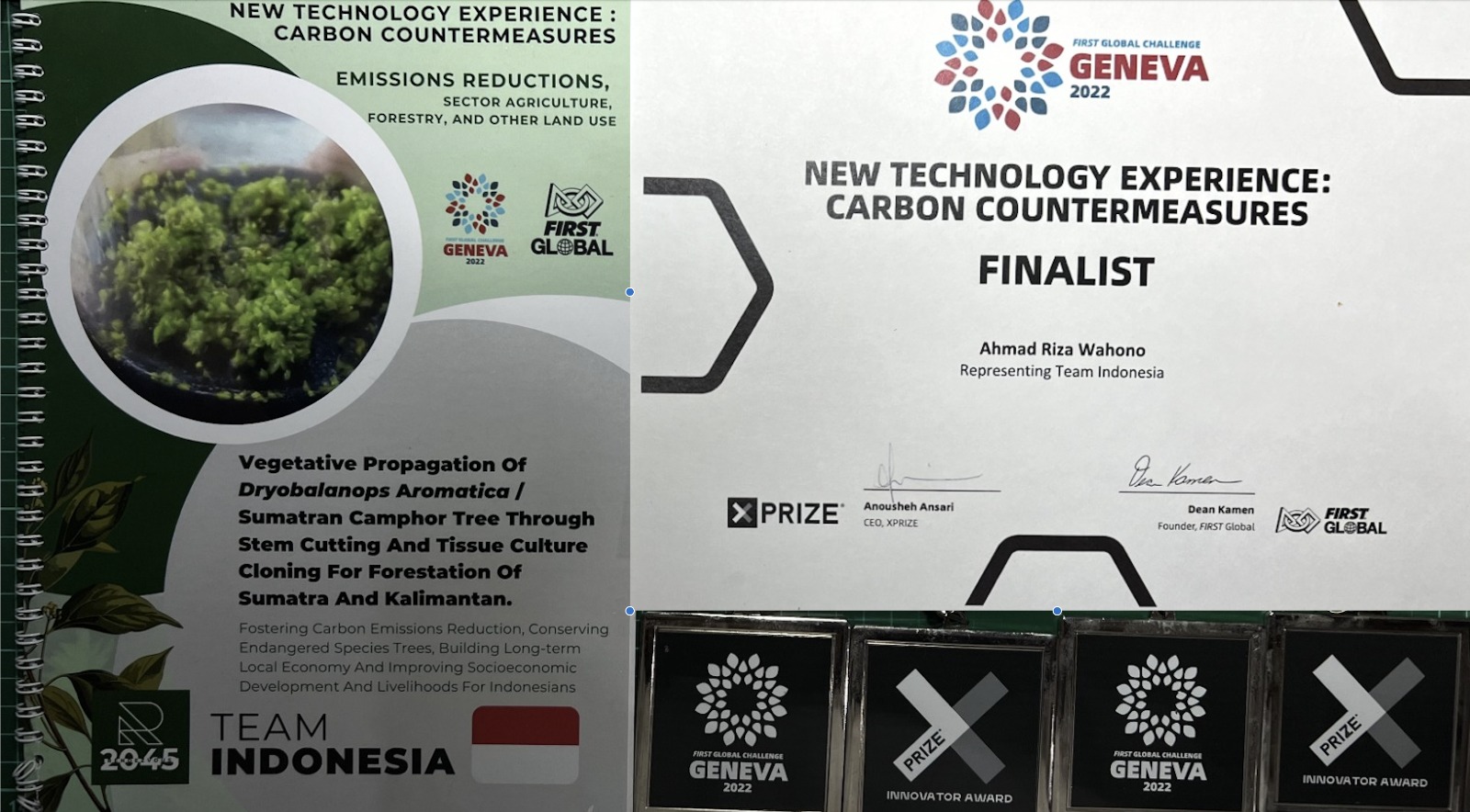
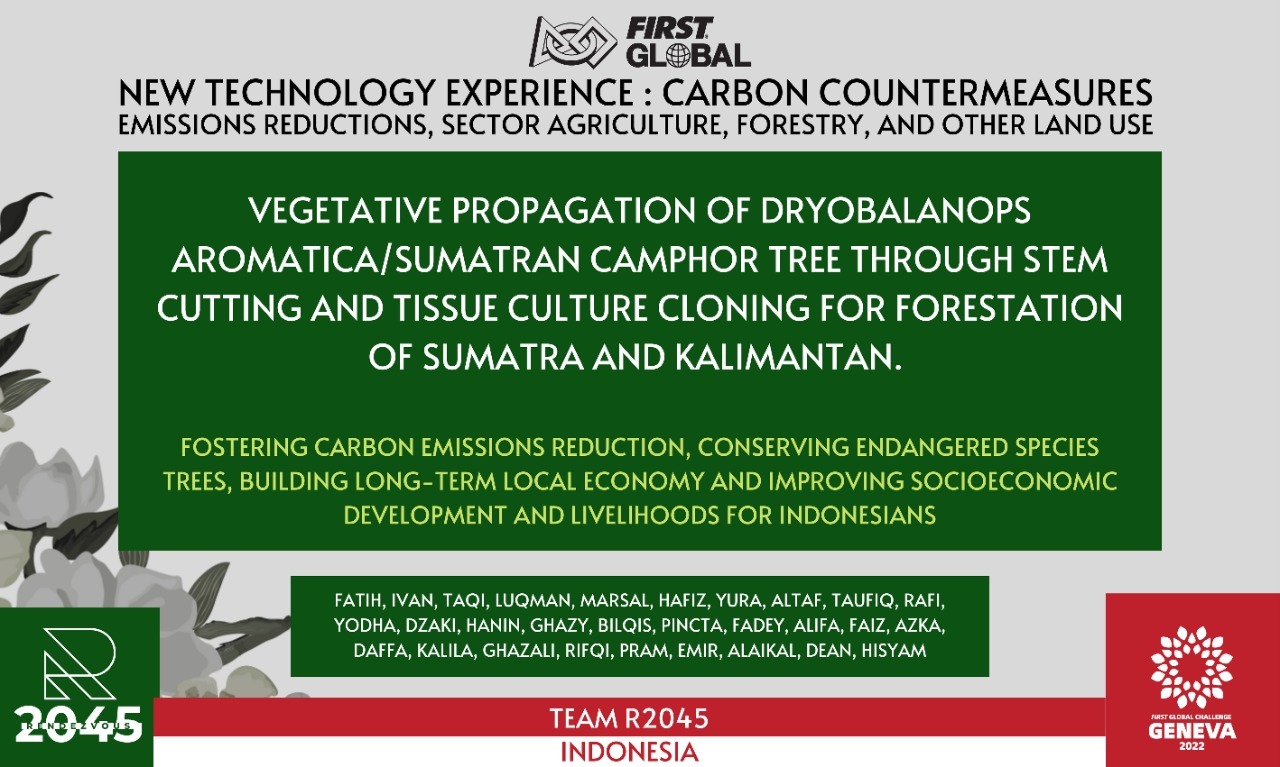
Please press and clik here to see our student presentation on their STEAM Project (You tube link)
-
TechnoNatura implement green infrastructure. This Green infrastructure help mitigate the impacts of urban heat islands and promote a more sustainable environment. such as green houses , Biotechnology Labs, Solar panels, and rainwater harvesting systems for Freshwater aquaculture. This will not only reduce the environmental impact of Madrasahs but also provide hands-on learning opportunities for students.
Our Green infrastructure:
• greenhouse as roof top
• Starfruit Garden as our playing ground and Learning Environment
• Plant Incubators with IOT and AI Research
• Tissue culture laboratory
• Fresh water aqua culture
• Collection of Indonesian Orchids
• Robotic AI and IOT for studying climate change
• Rainwater harvesting systems to be used in aqua culture and bio pore holes
• Solar panels to generate 6000Watt electrical energy
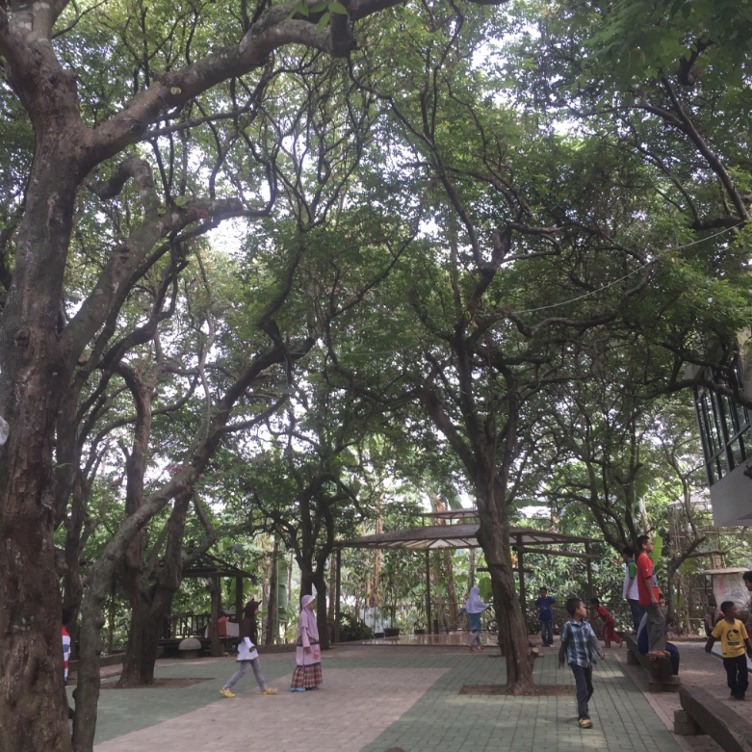
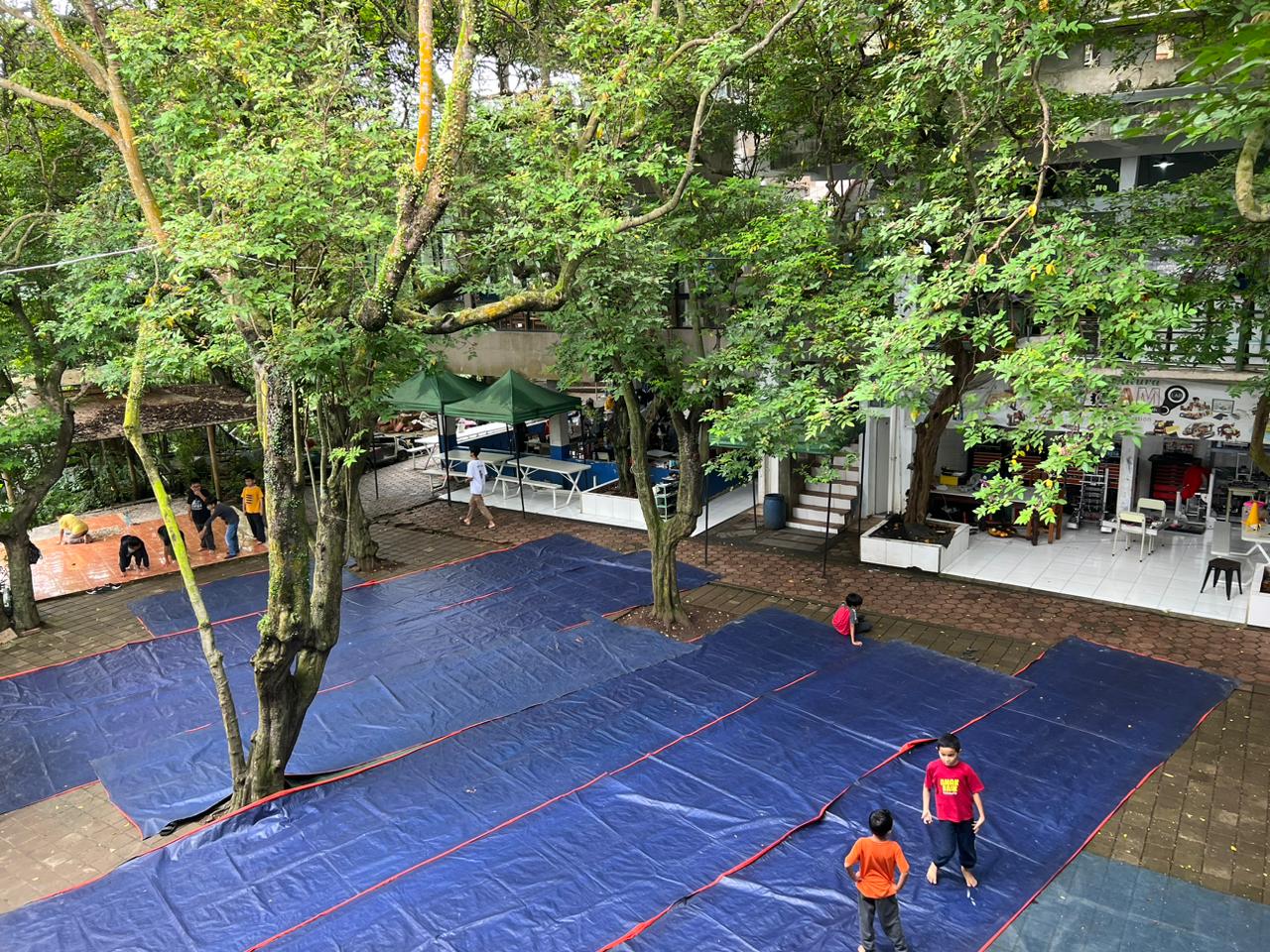
Starfruit Garden as our playing ground and Learning Environment
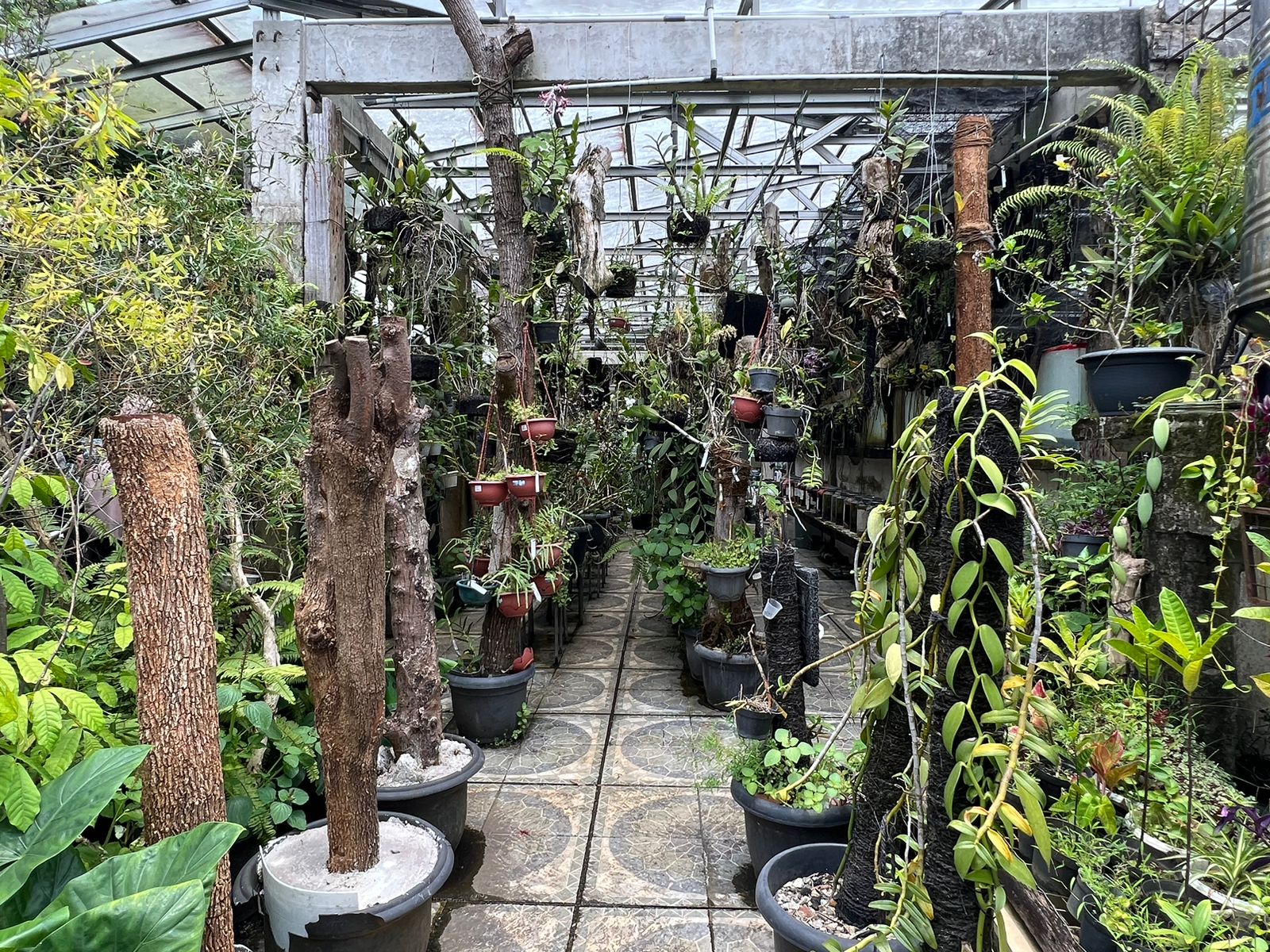
Bio Diversity Indonesian Orchid School collection
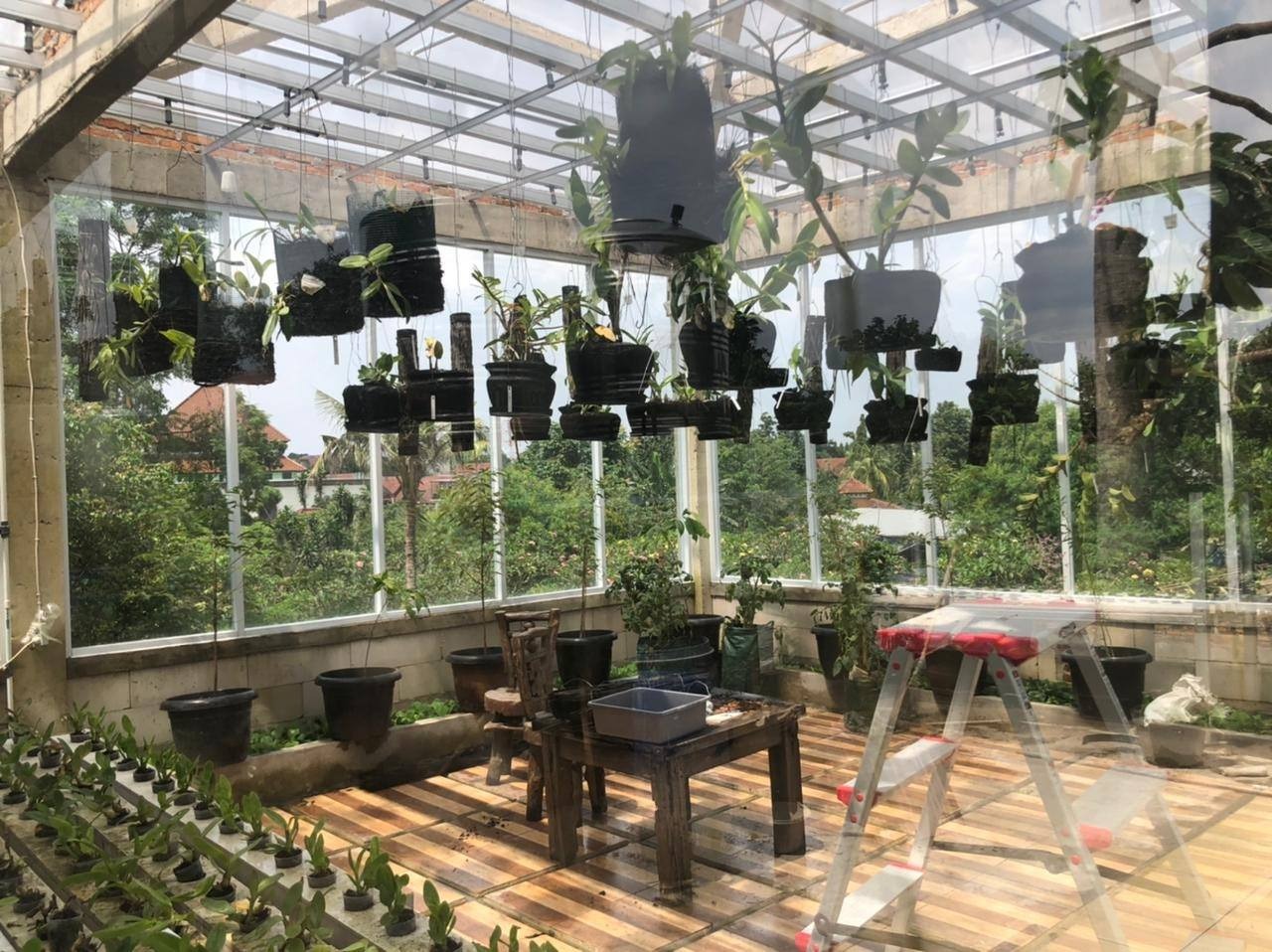
Enclosed GreenHouse
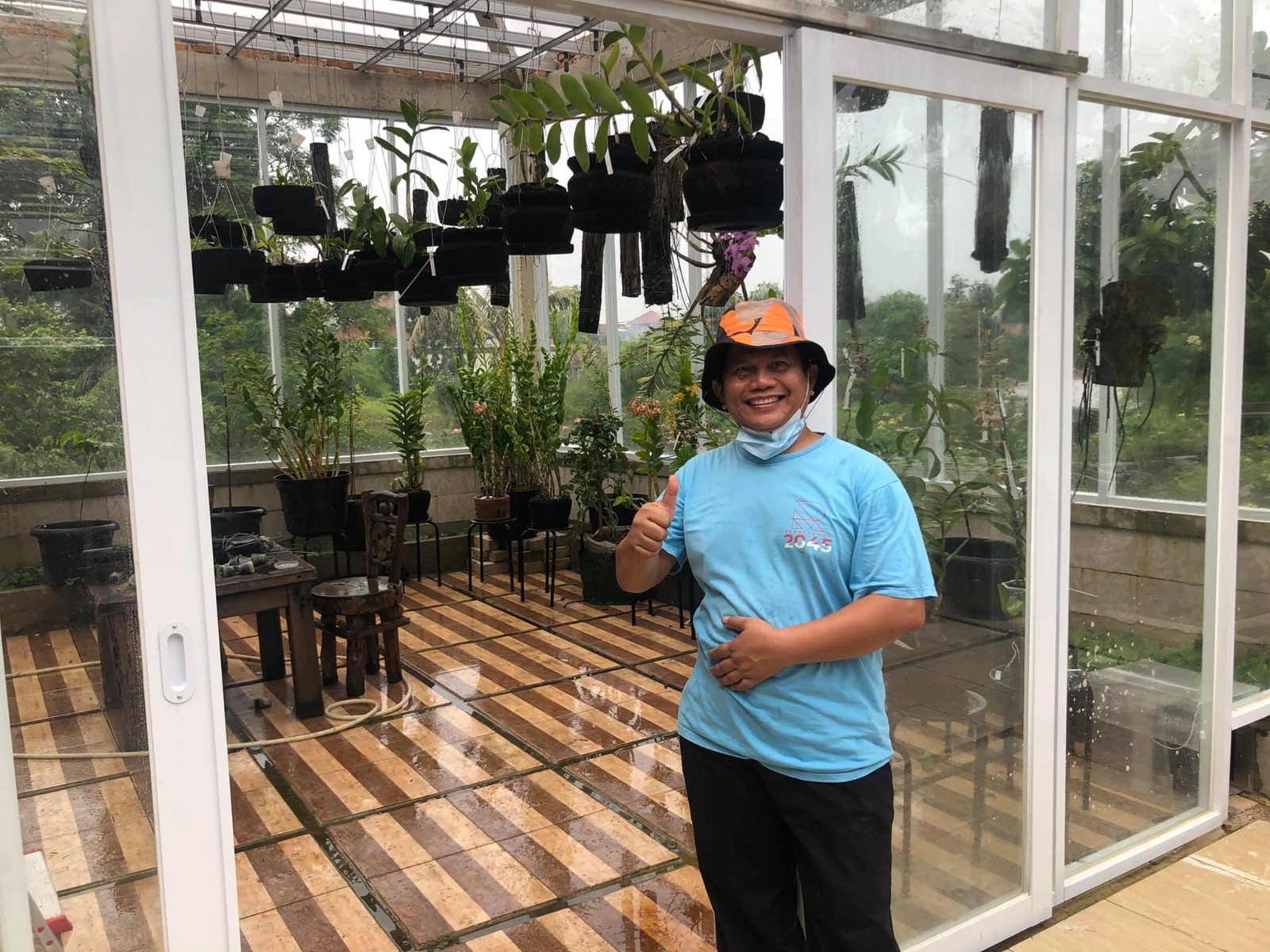
some of orchids species in enclosed Greenhouse
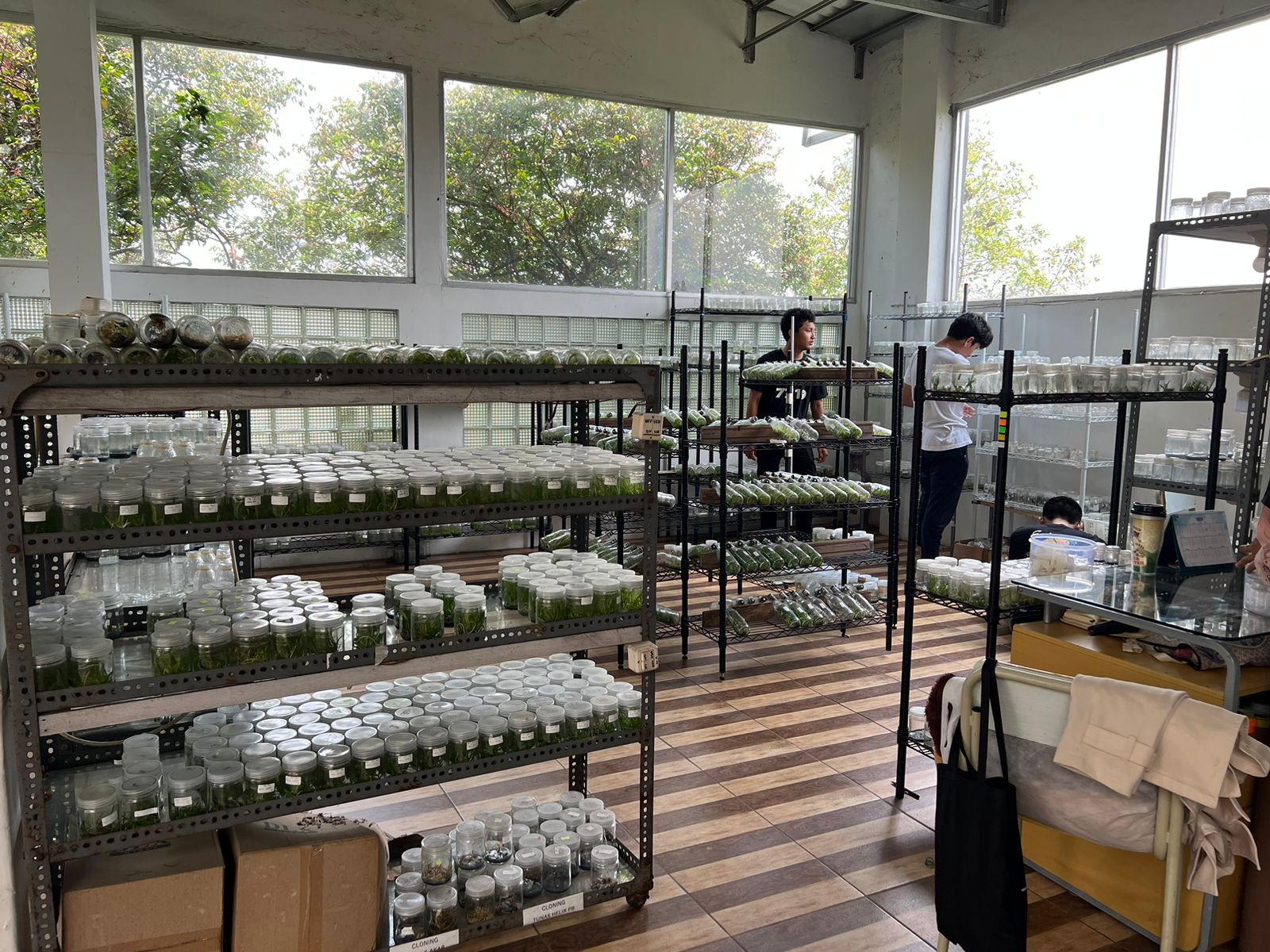
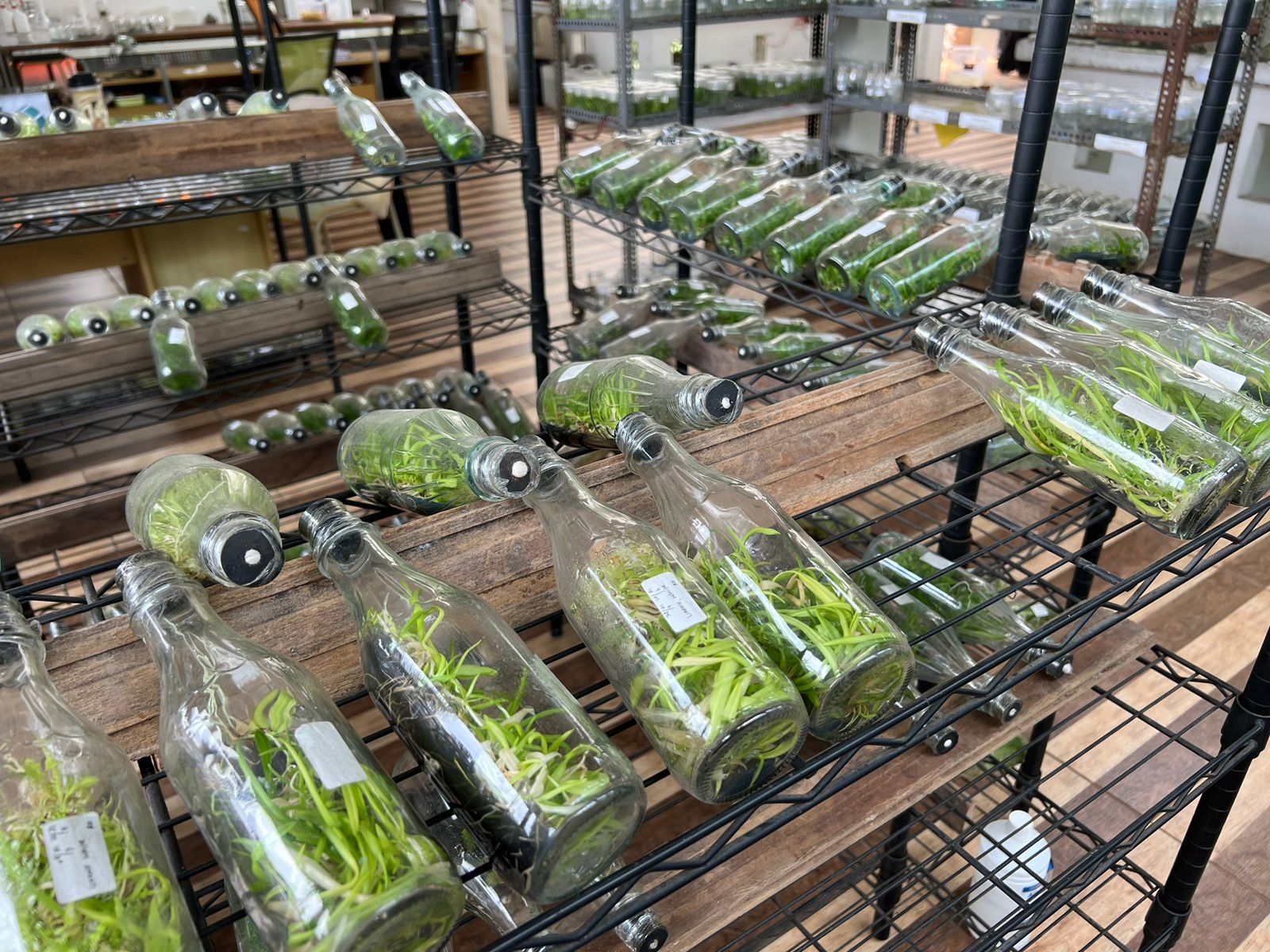
Tissue Engineering and Culture Lab at TechnoNatura
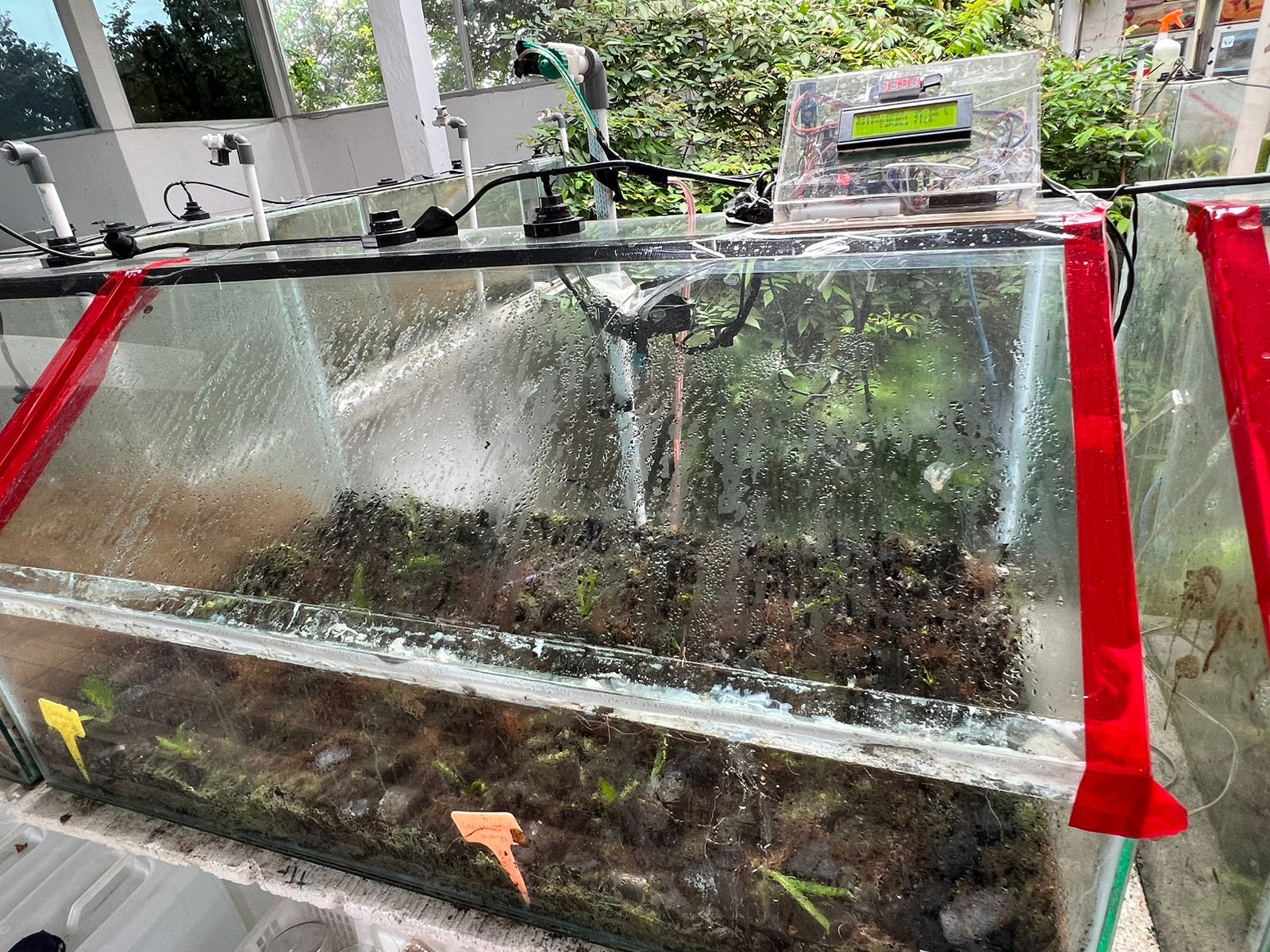
Plant Incubator At TechnoNatura

ALTERNATIVE ENERGY With Solar Pane, wind and hydro power will be developed at TechnoNatura
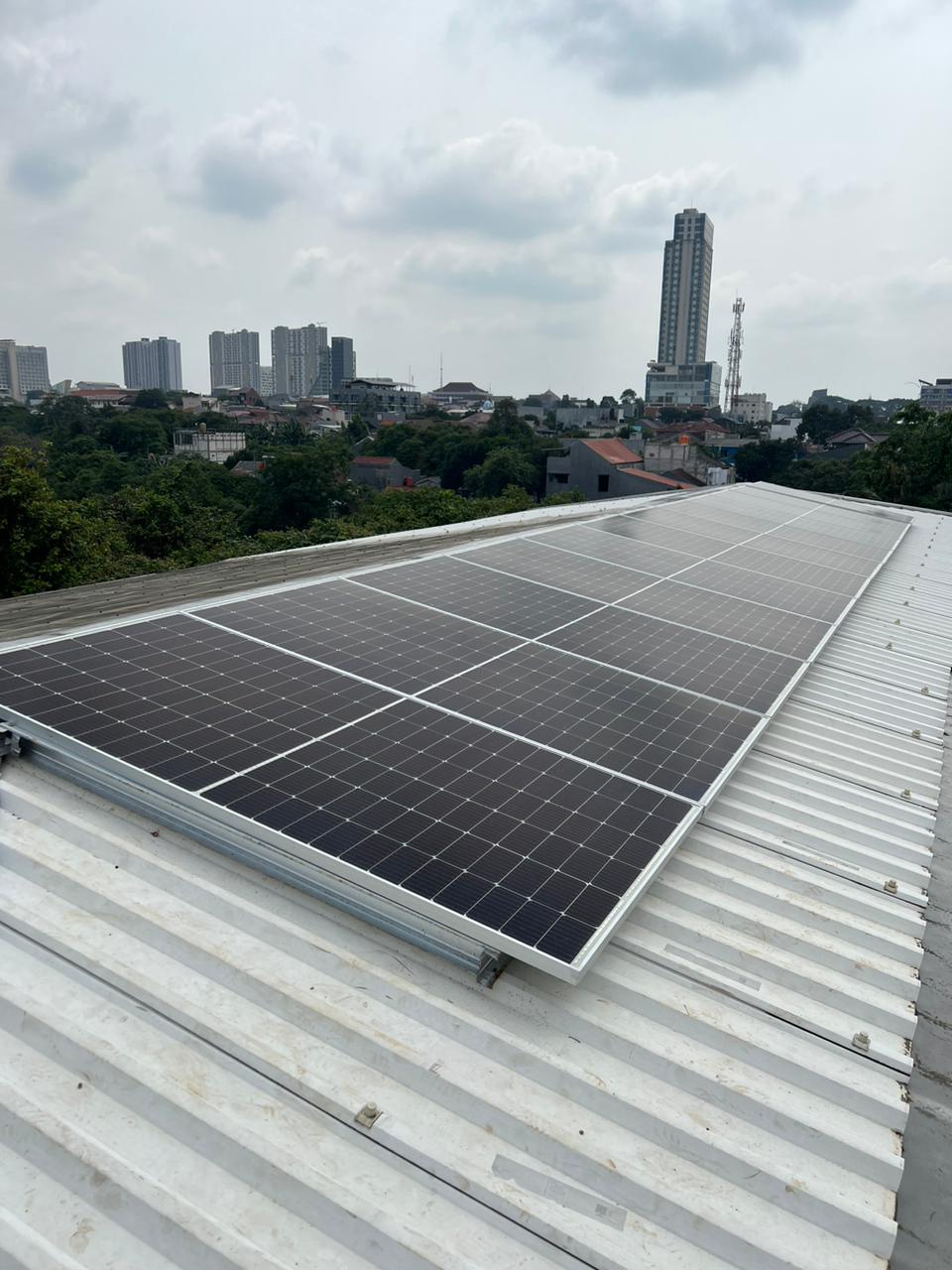
Solar Panel Installation at TechnoNatura
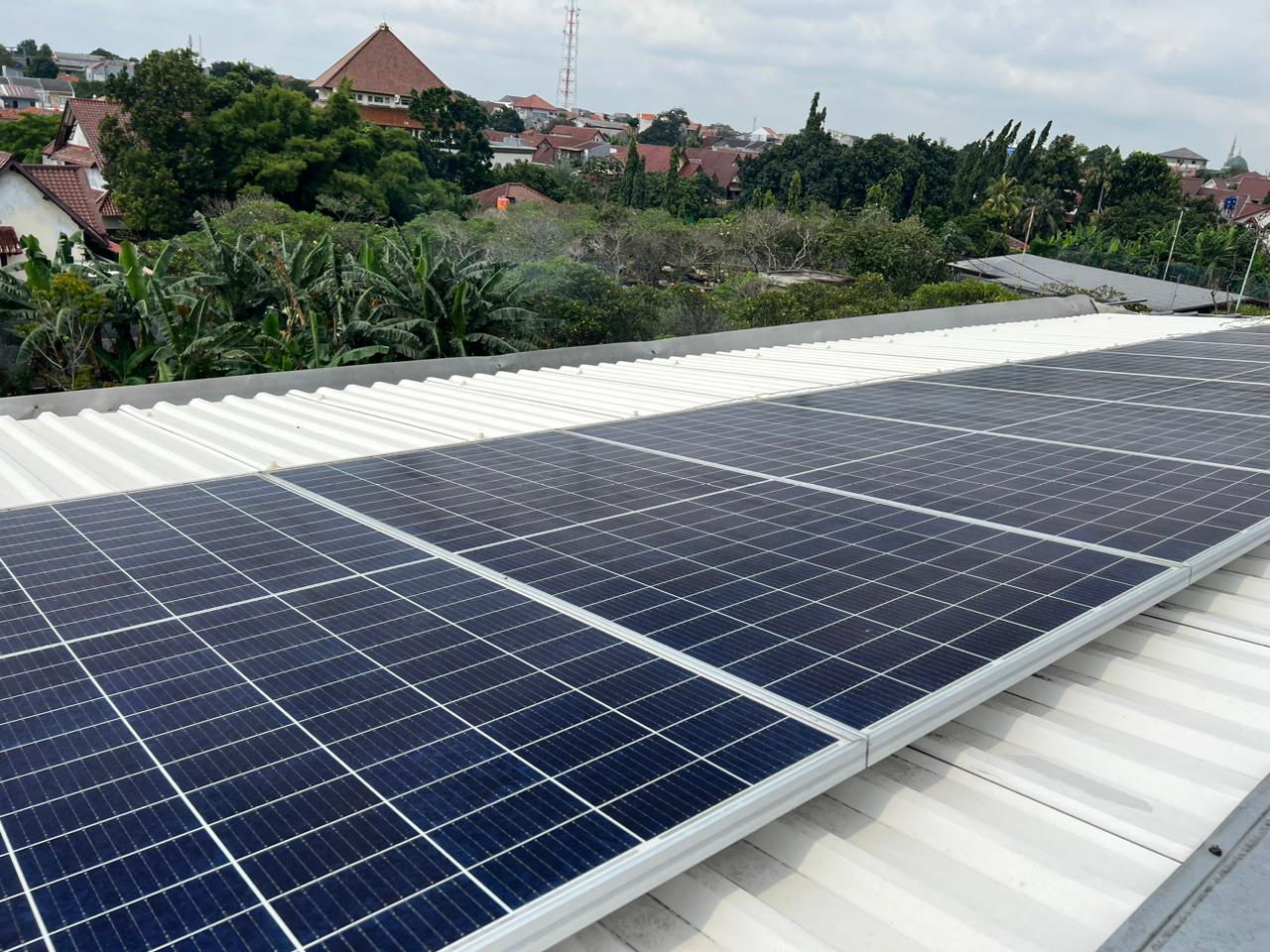
Another Solar Panel Installation at TechnoNatura
By taking steps towards becoming a green Madrasah, we can reduce our impact on the environment and contribute to mitigating climate change. It is our responsibility to protect the planet and ensure a sustainable future for generations to come.
Overall, promoting environmental and climate change education in schools is important to prepare students to become informed and active citizens who can help address the critical issue of climate change. By incorporating climate science, promoting sustainable practices, and engaging students in climate action, schools can play a vital role in creating a more sustainable future for all.
5. The Challenge Toward Educating Global Citizen : Educating Global Citizen
Global Citizen Education: Global Citizen education is an education trend that seeks to prepare students for a globalised world by teaching them about different cultures, languages, and perspectives. It emphasises the importance of developing global competence, which includes the ability to communicate effectively, collaborate with others, and solve complex problems in diverse contexts.
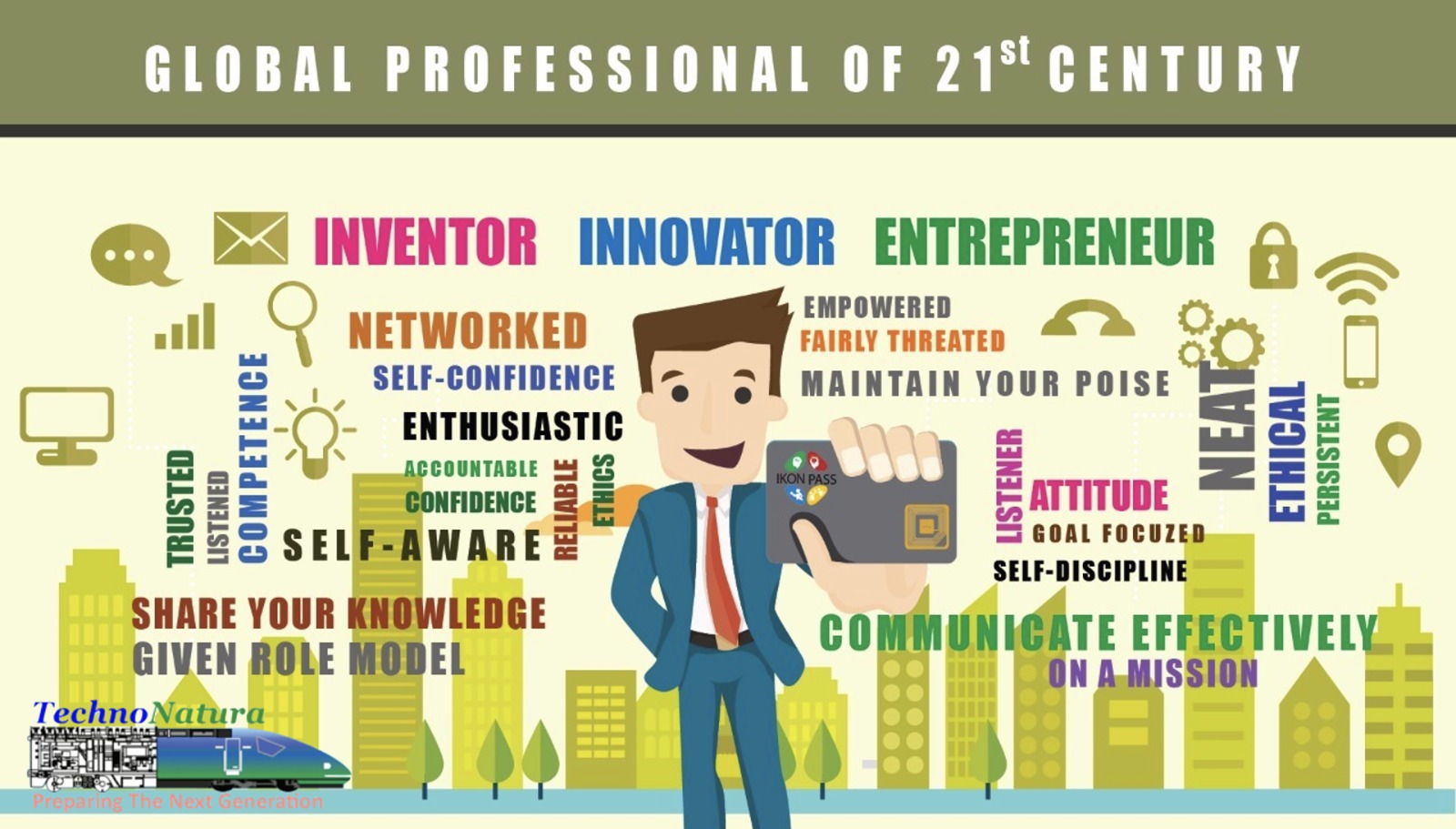
In TechnoNatura several approaches were used to expose student to become global citizen
1. Expose to international event, especially on Science, Technology, Engineering and Art.
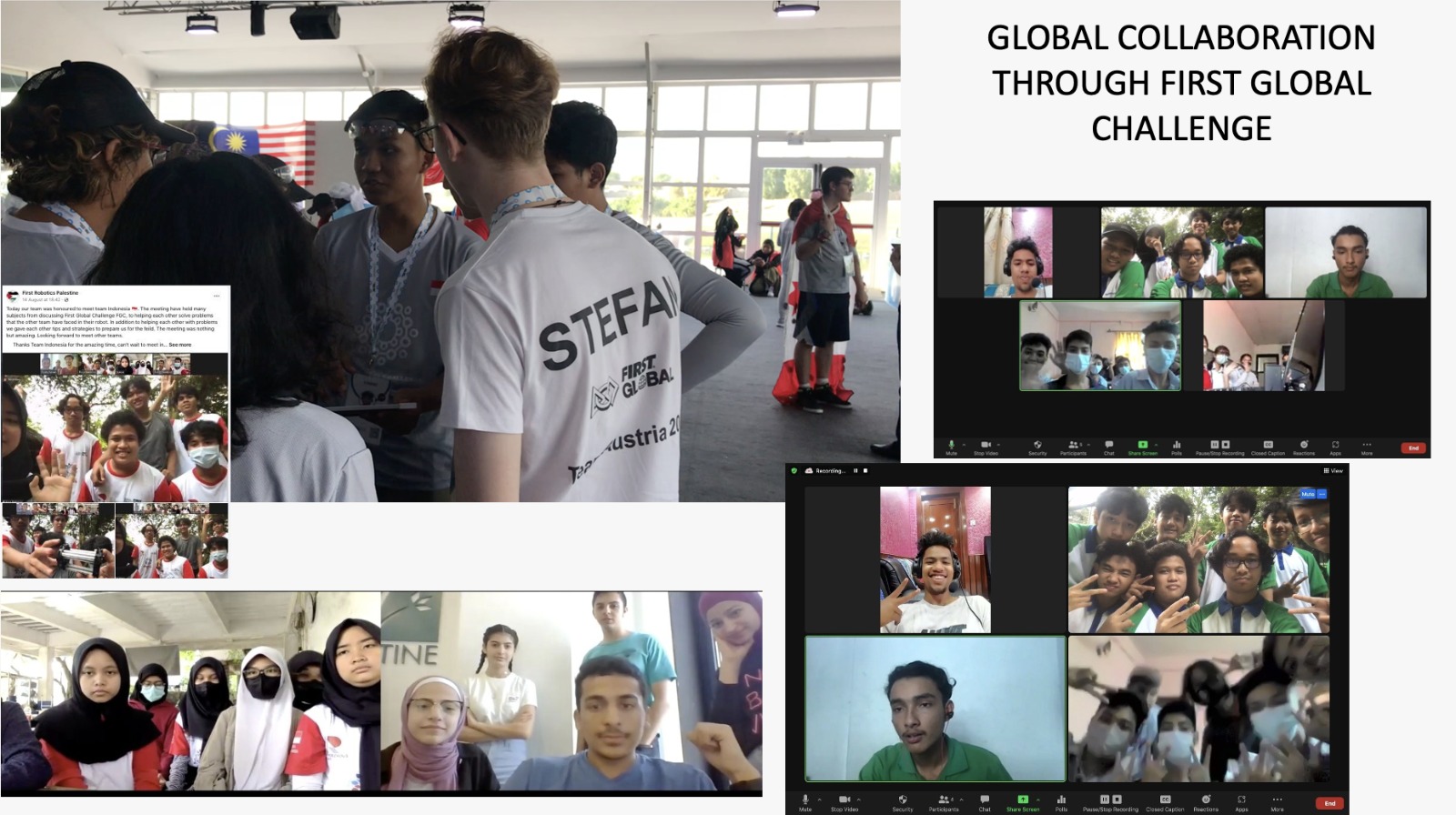
To appreciate people is to acknowledge other cultures, therefore we need to bring our students to visit different cultures, Indonesia culture is rich, it has been shaped by long interaction between original indigenous customsand multiple foreign influences. Indonesia is centrally-located along ancient trading routes between the Far East, South Asia and the Middle East resulting in many cultural practices being strongly influenced by a multitude of religions, including Hinduism, Buddhism, Confucianism, Islam and Christianity, all strong in the major trading cities. The result is a complex cultural mixture very different from the original indigenous cultures.
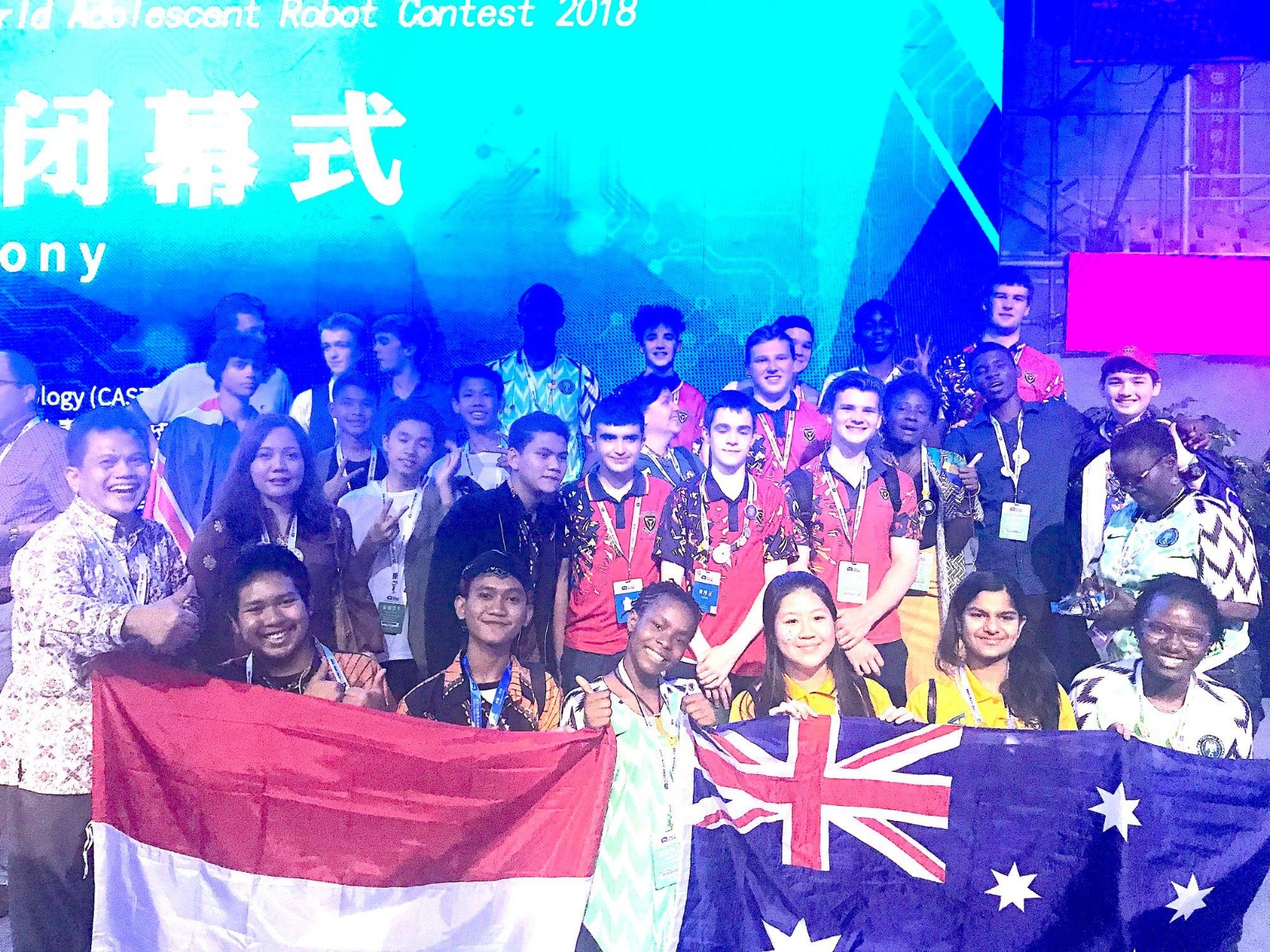
The need to understand the western society with the modern lifestyle, was fulfilled when American Embassy open @america in Jakarta. @america is a cutting-edge, 21st-century cultural center where students can explore and experience the United States, and express your thoughts and ideas about America.
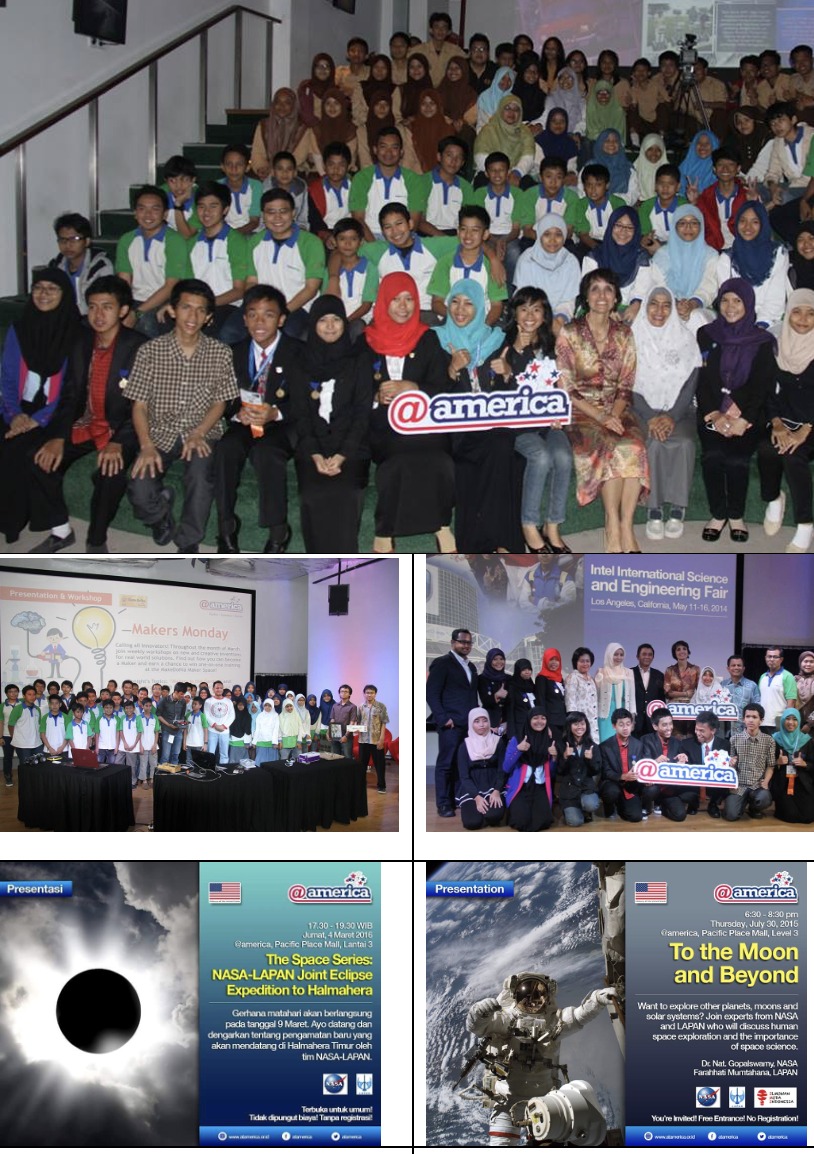
- At @america, we discover state-of-the-art technology and we learn more about the western value. Through discussions, webchats, cultural performances, debates, competitions, and exhibitions, you can experience the best of America – its ideals, creativity, and diversity.
Our team also become one of the presenter @america to share our half globe journey to USA in Global Challenge to other Indonesian youngsters, to inspire them to take the bold steps to understand other cultures.
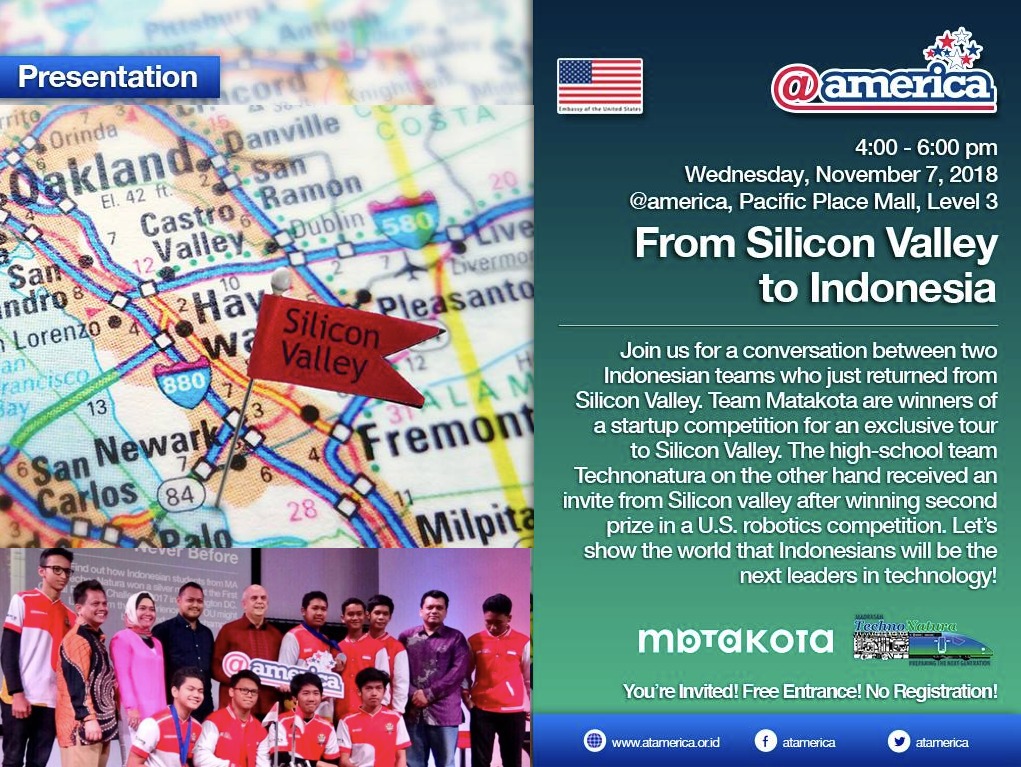
Global movement : FIRST Global Challenge
One movement that mission very much in line with Technonatra is FIRST Global. The mission of FIRST Global is to inspire science and technology leadership and innovation in young people from all nations in order to increase understanding, impress the importance of cooperation, address the world’s most pressing issues, and improve quality of life for all.
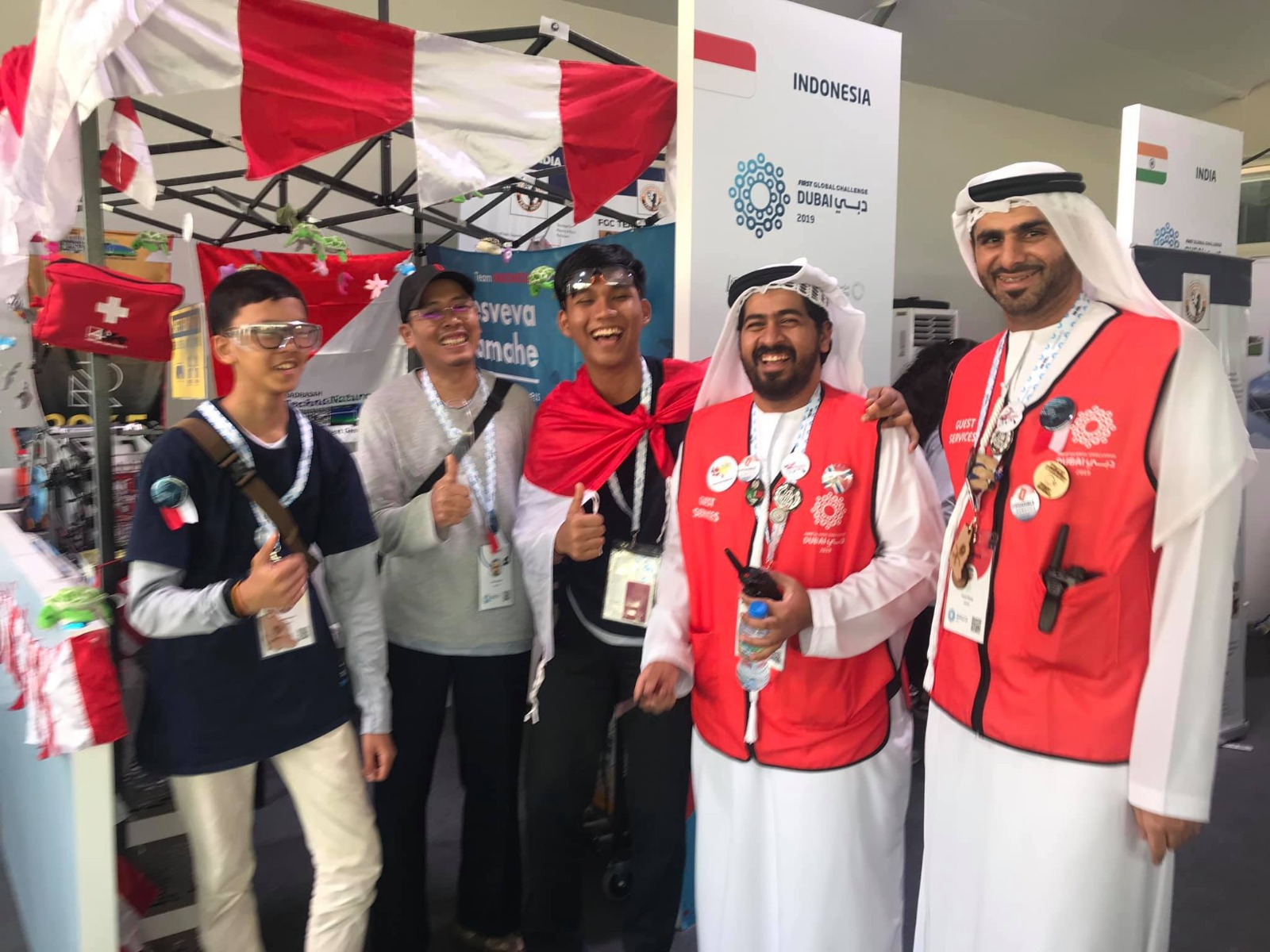
FIRST GLOBAL Challenge, initiative bringing these future STEM young leaders together in an engaging and collaborative competition that drives home the importance, excitement, and applicability of STEM education, FIRST Global inspires students to learn the skills they will need to make the discoveries their parents and grandparents would consider miracles, impossibilities, or just plain science fiction.
Its in a honour for our student and school when were invited and selected to represent Indonesia in that event,
By incorporating these approaches, Madrasah Technonatura prepare students to become global citizens who are knowledgeable, engaged, and responsible. Education is a powerful tool for creating positive change in the world, and Madrasahs have an important role to play in shaping the next generation of global citizens.
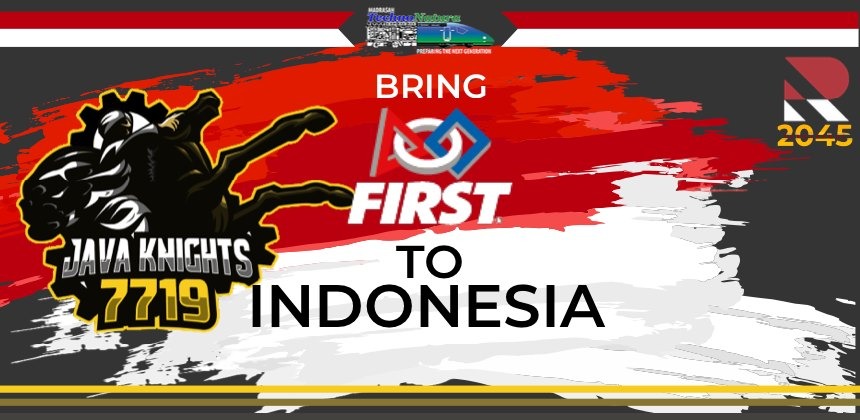
THE RUNNING CURRICULUM
Meeting the graduate profile of 21st century and the standards becoming the clear destination, we then develop action plan, annual activity in developing curriculum as vehicle to get there, we based on the STEAM education and deploying project based approach in weekly activity. Character building is extremely paramount for next generation, it is important to infuse social character building activities into 12 month themes. Rather than putting to much focus on attaining a top set of examination passes, we seek to develop the whole person, and indeed, most important parts of a our education take place outside the classroom - for these are the parts of the curriculum that provide the most character- building opportunities. Aiming to give young people a range of experiences which will both stretch and challenge them.
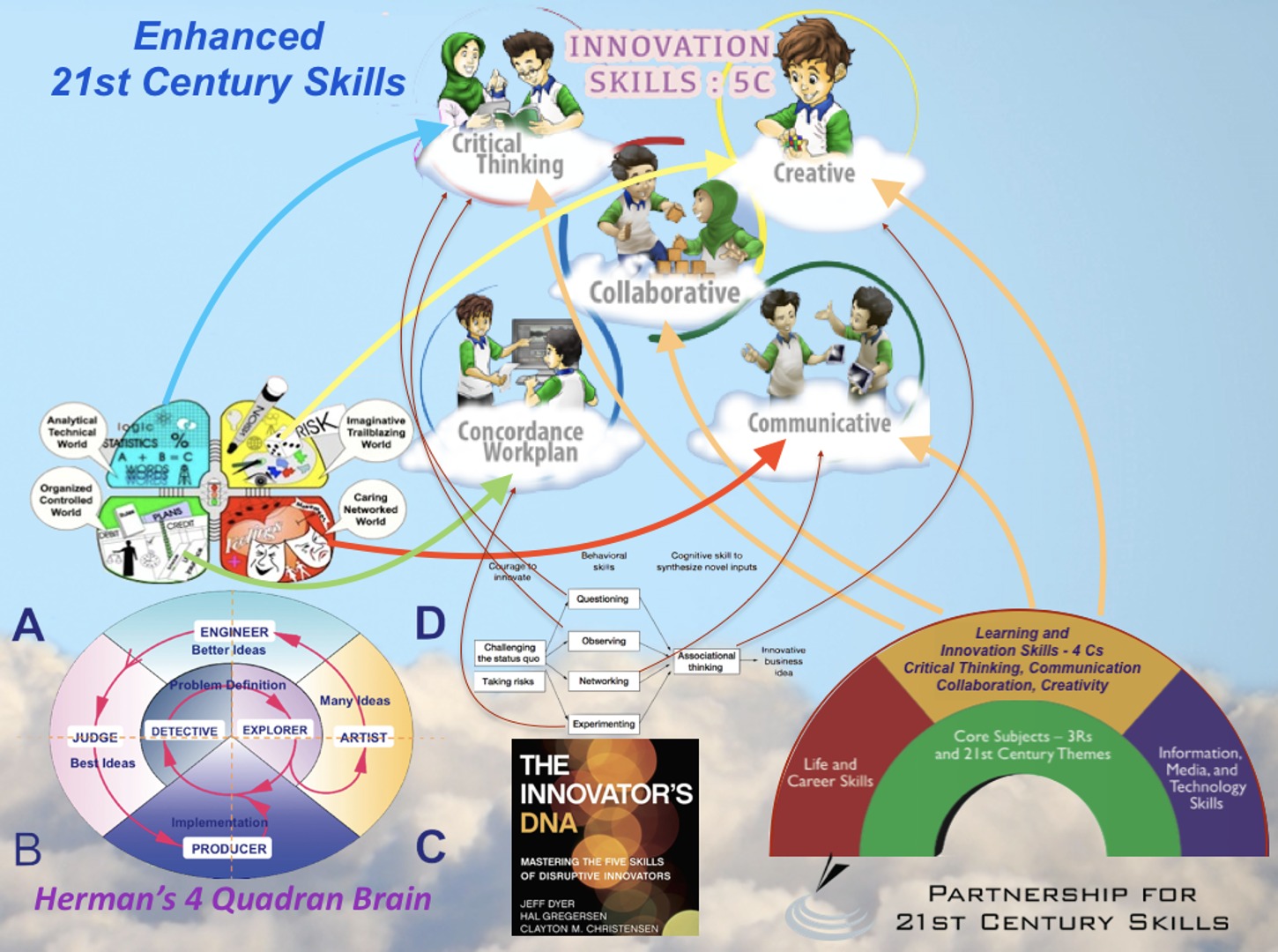
The experiences that we have when we are young are particularly influential for shaping the adult that we become. That is why TechnoNatura put special attention to develop meaningful experience of character building. Outdoor education play enormous part to play in our character building. Young people learn more about themselves and about their peers when they are exposed to challenging situations.

TechnoNatura LEarning Environment
Character building experiences take us out of our comfort zones and force us to 'dig deep' to find new resources within ourselves. By adopting the exemplar of the Prophet Muhammad the role model of Islamic Character, we build 12 monthly themes that focus to trait of character such as Truthfull/Honesty, Steadfastness, Smart Thinking, Trustworthy, Well Communicate, God Conciousness, Positive role model, positive thinking, Just, Plan ahead, bringer Glad tiding, Leadership and Factual Based Decision “
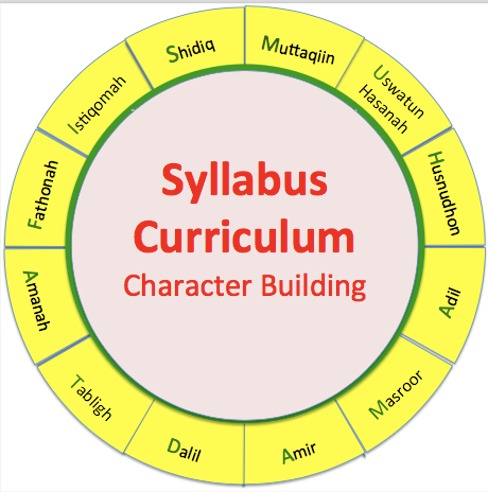
We have invested in 21st Century resources such as e-learning, Cloud based School management system, mini Fablab with its 3D printer, Model CNC, soldering kits and its uptodate industrial rate sofware, STEAMlab facilities with various kind of robots, IoT device, sensors actuator as well as the processor, tissue Engineering lab for biotechnology learning, greenhouse, a rare collection of Indonesian Orchids, a range of ICT equipment and more to support student learning.
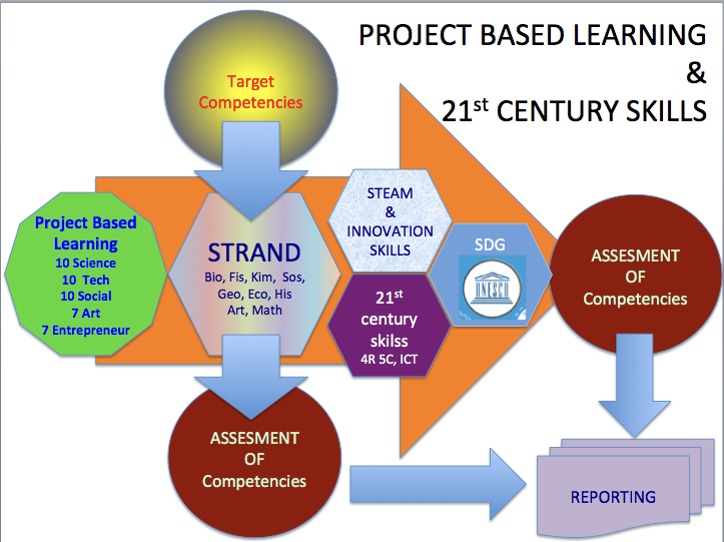
Project based learning allow students to pursue the learning as suit their interest and talent and it offer a diverse menu from direct instruction to playful learning so that students are able to develop a wide range of skills and competencies from mastering academic subjects to learning creatively and collaboratively solve problems to learning how to apply knowledge to real world situation

Then the weekly STEAM model of project based learning were formed
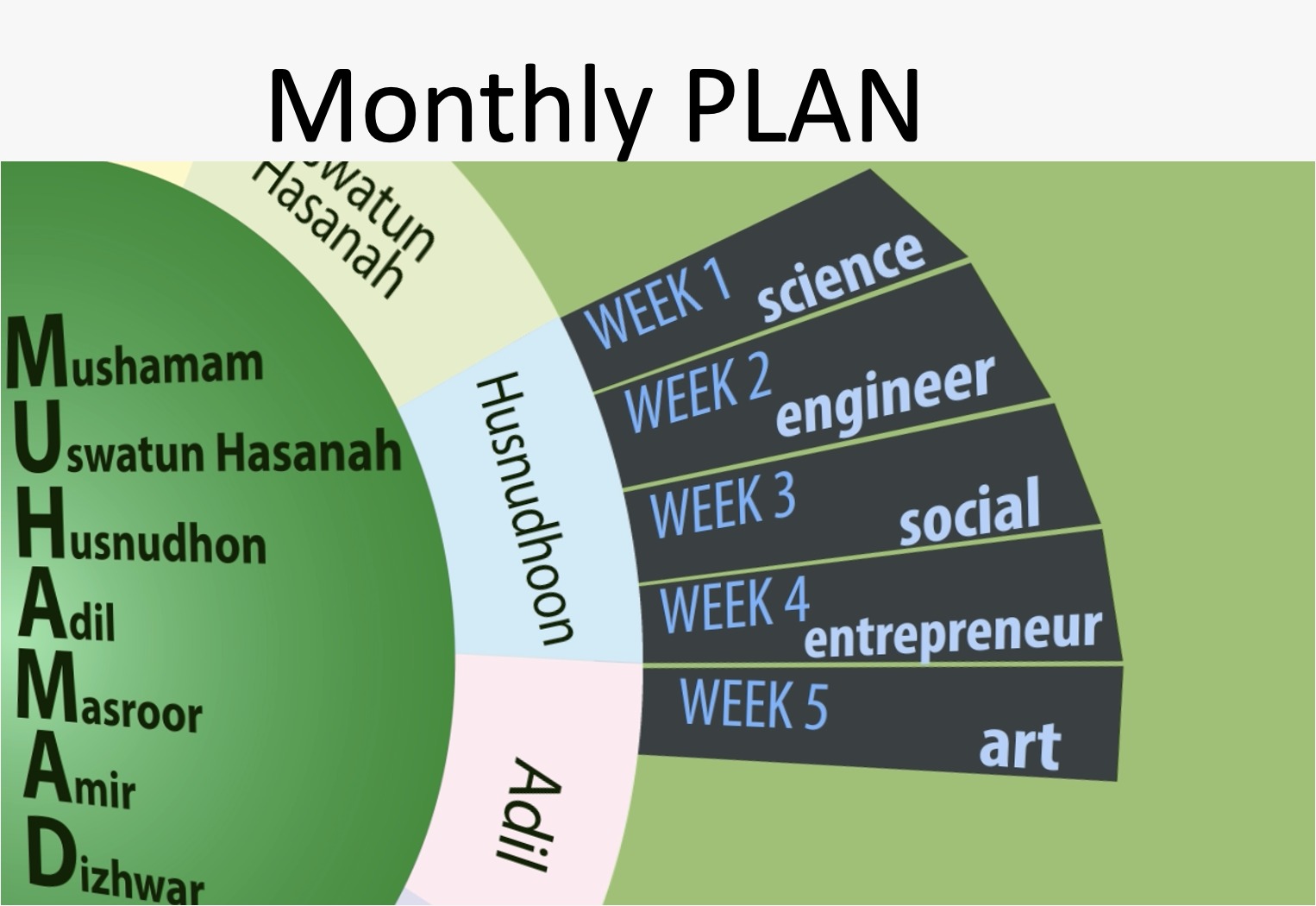
We constructed yearly plan from 44 weekly projects. 10 weeks of science projects, 10 weeks of Engineering projects, 10 weeks of social science projects, 7 weeks of Art and Design projects, and 7 weeks of entrepreneurship projects. STEAM Robotic project, STEAM IOT project and STEAM AI project were designed running in semesterly so to run the engineering cycle fully by the students
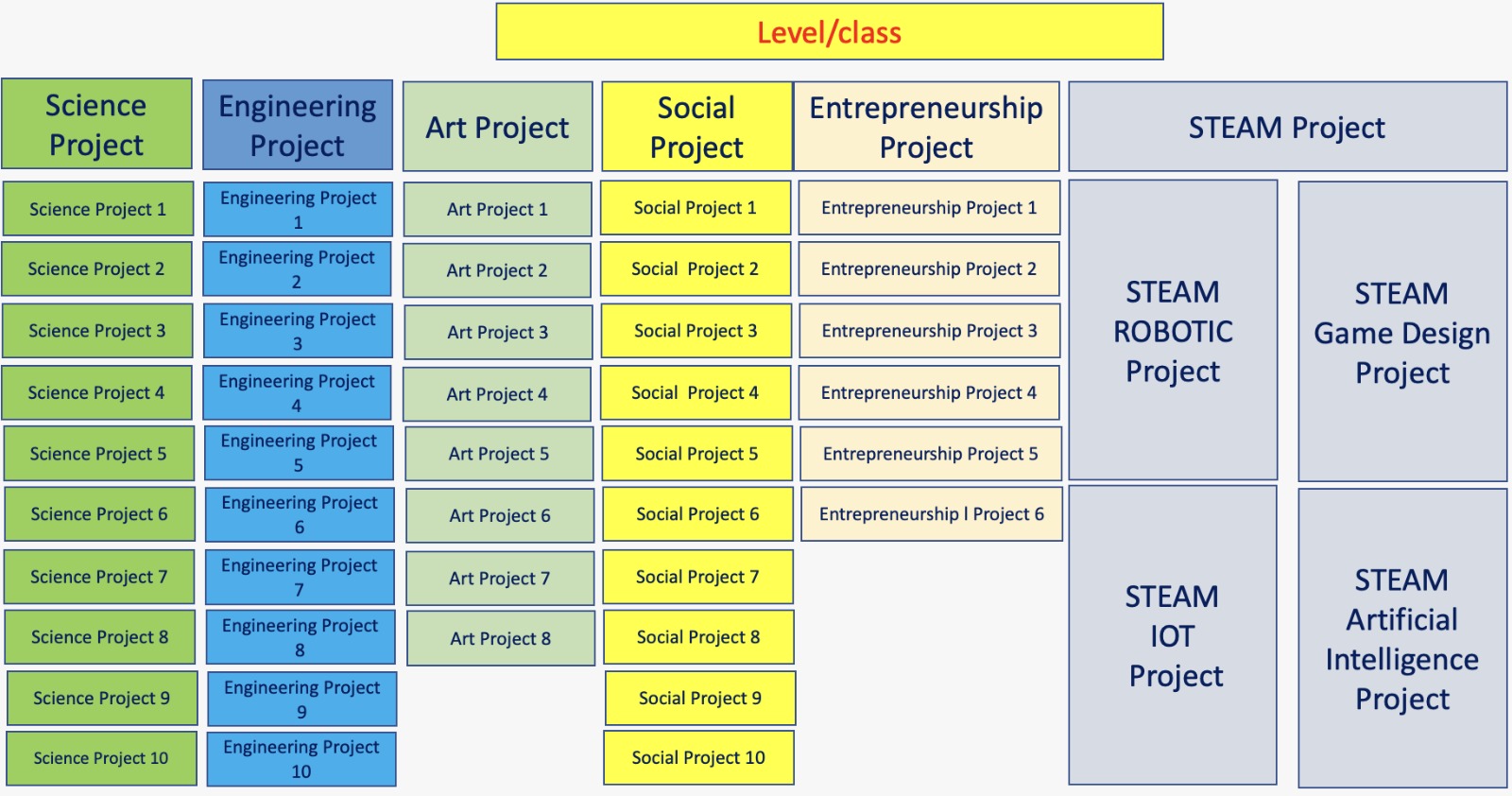
With 10 weeks of Science, the process scientific methods were covered, similarly for Engineering process, one cycle of engineering design were covered from inception, task definition, conceptual design, detail design, prototyping and testing. With 10 engineering weeks.
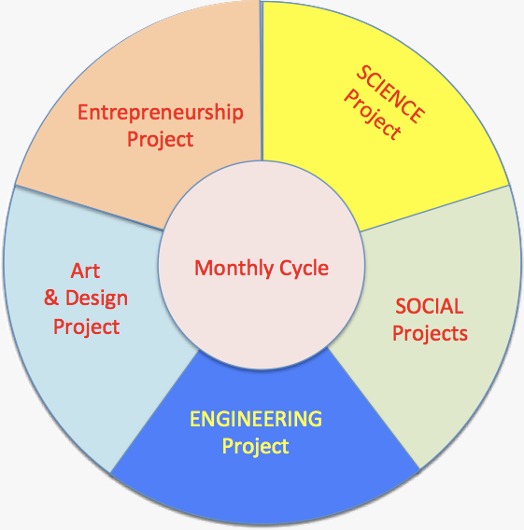
After defining monthly and weekly theme in annual plan, the weekly activity was detailed further by combining industrial best practice of PDCR ( Plan Do Check Revise) of Deming cycle or Shewhart cycle as model for continuous improvement and for basic process of developing a new or improved design of a process, product or service with inquiry method, a student-centered method of education that relied on asking questions to cultivate students’ active learning skills by asking open-ended questions and helping students address them to fulfill their curios mind, develop Intrinsic motivation and the pursuit of personal interest
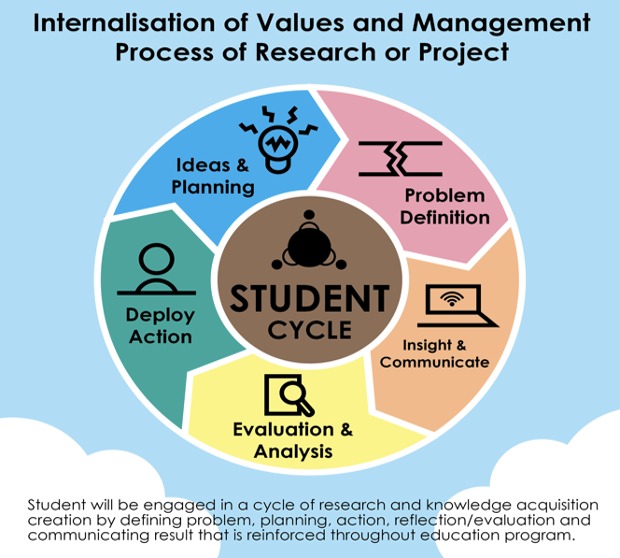
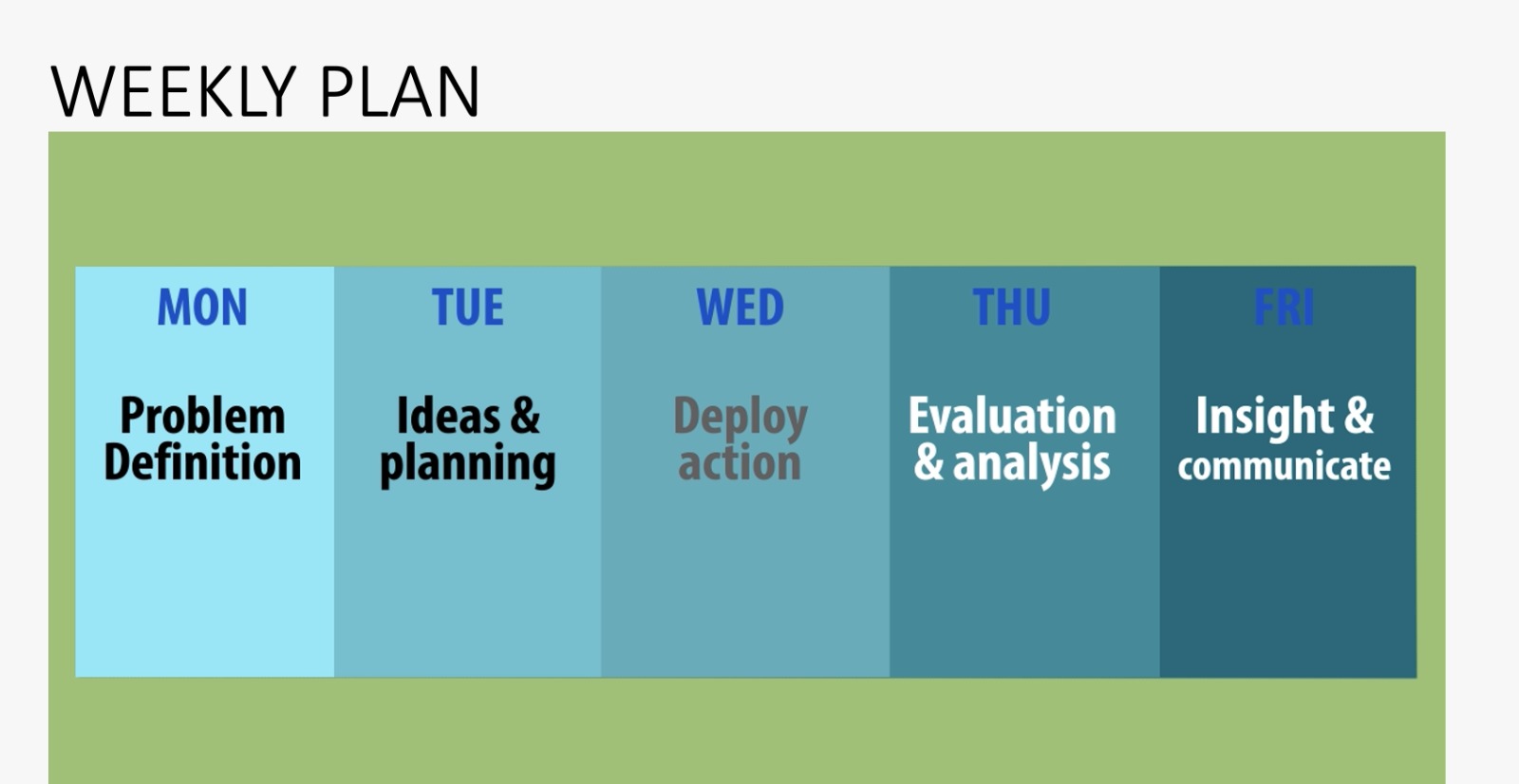
Monday : students learning to define a problem, given task by mentor and start asking around and making target or proposing hypothesis
Tuesday : Students learn to plan, making assumptions and devise a realistic plan to address the problem.
Wednesday : Student learn to walk and do the plan, put their plan into action
Thursday : students learn to evaluate the outcome, analyse it and form an insight of their approach, and put it down in writing.
Friday: finally, they present/communicate and Review their work in the front of the class and discuss their finding and insight with their peer.
This weekly learning activities were specially arranged to strengthen Industry best practices, Students interest as well as to accommodate different modal of learning that each student has. Weekly learning circle is constructed like a helix, the cycle is repeated again and again every week and it continuous improvement to subsequent years to firmly establish the habit to student's mind.
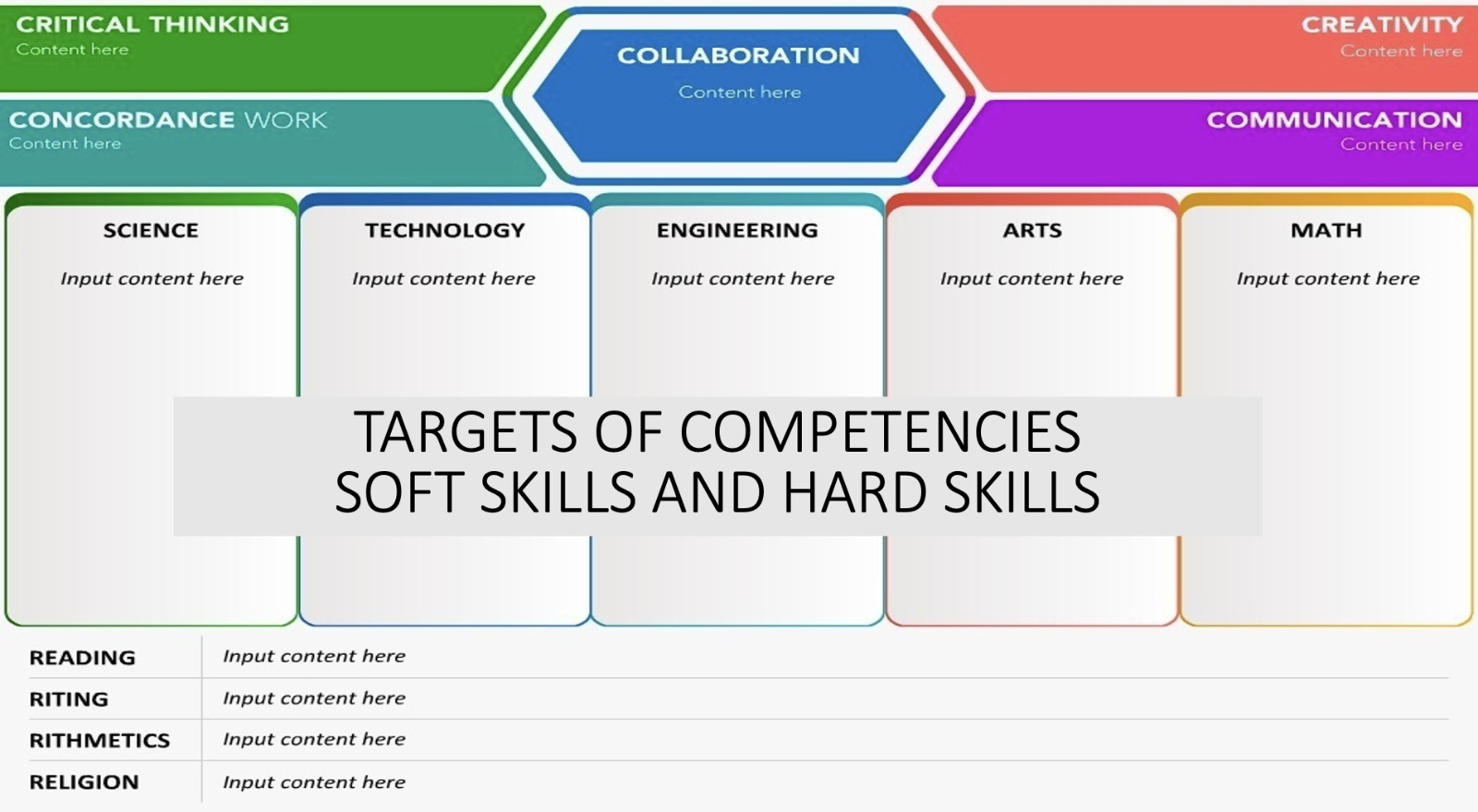
Finally, The daily learning activity is broken into a number unit of learning, the first part of learning activities carried out early in the morning and more focus into the establishing the foundation of 4R, while for innovation skills of 5C carried out just before noon and afternoon.
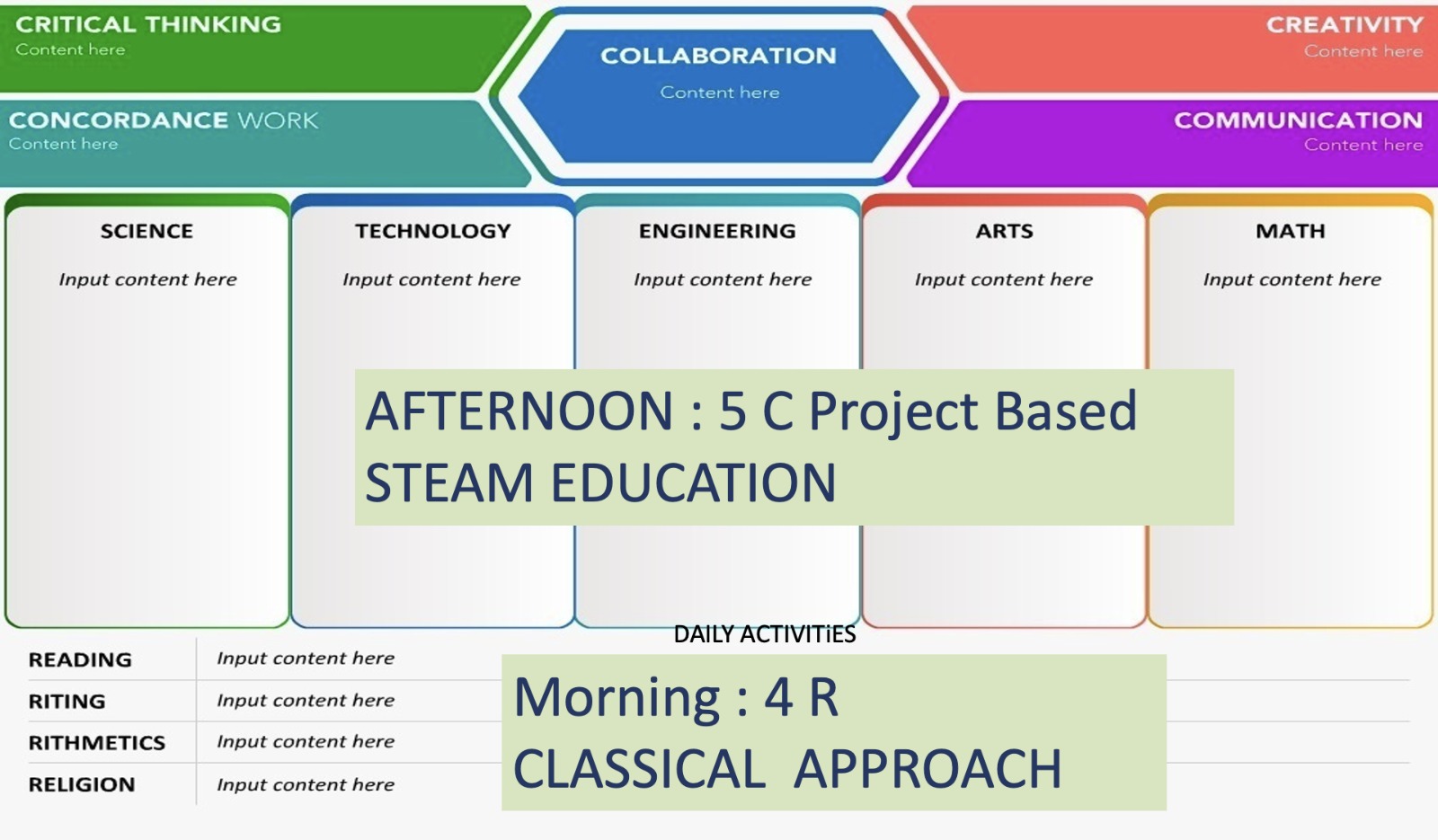
Daily cycle to infuse internalisation of values of 4R and 5 C into students
here are the theme of inquiry skill and collaborative problem solving are deployed weekly.
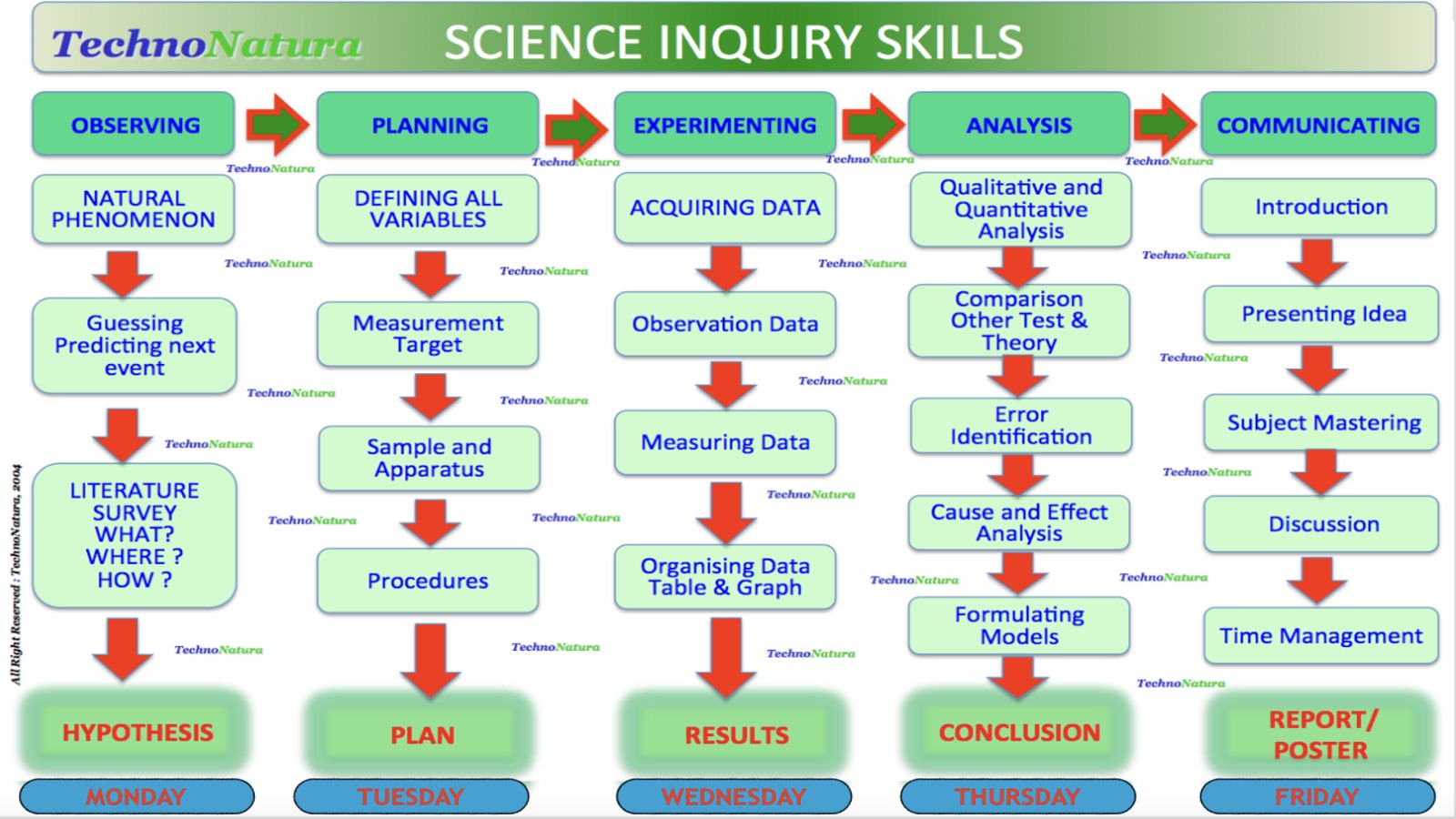
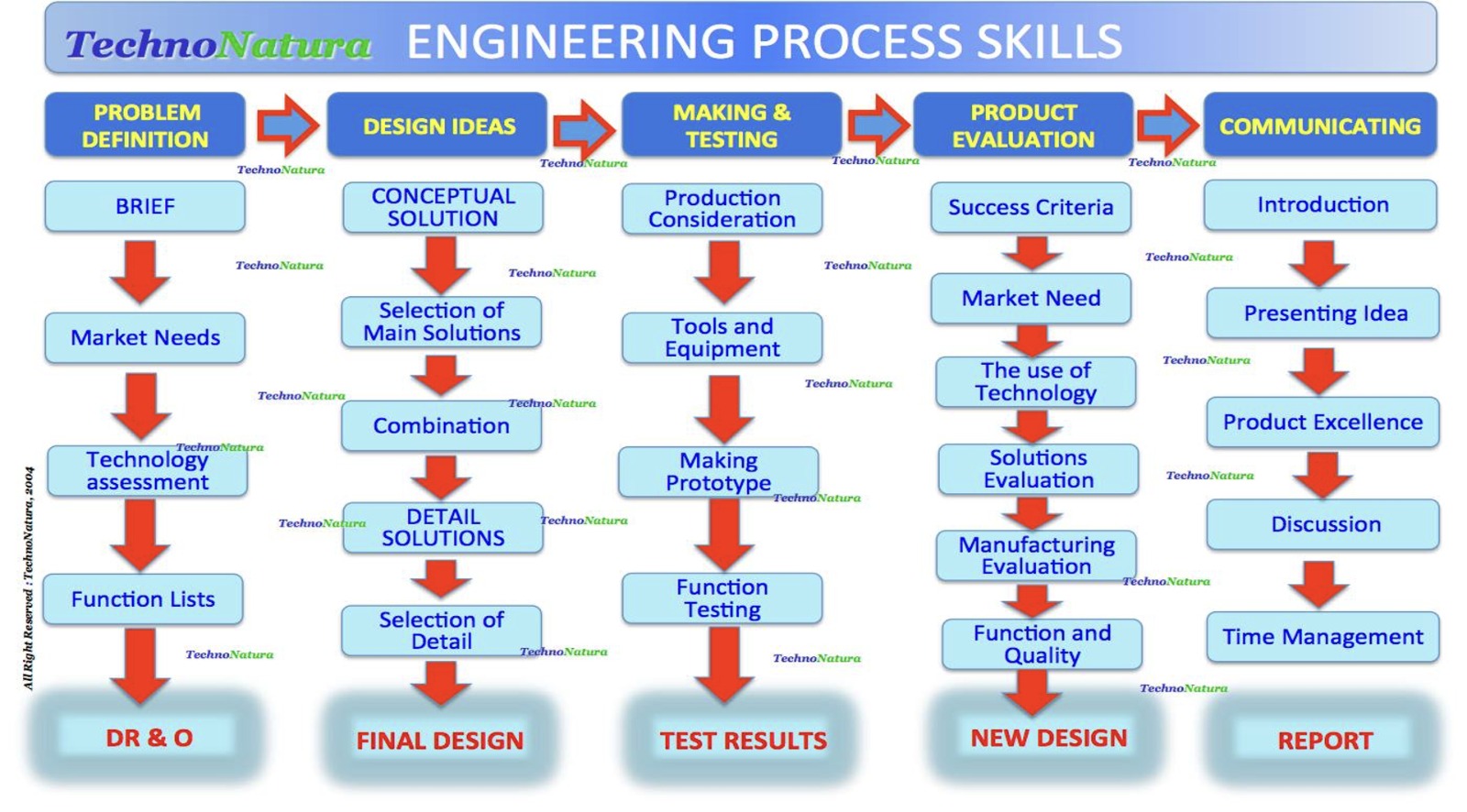
Typical action prosess of 5 weekly themes, Science, Engineering, Arts, Social and Entrepreneuship
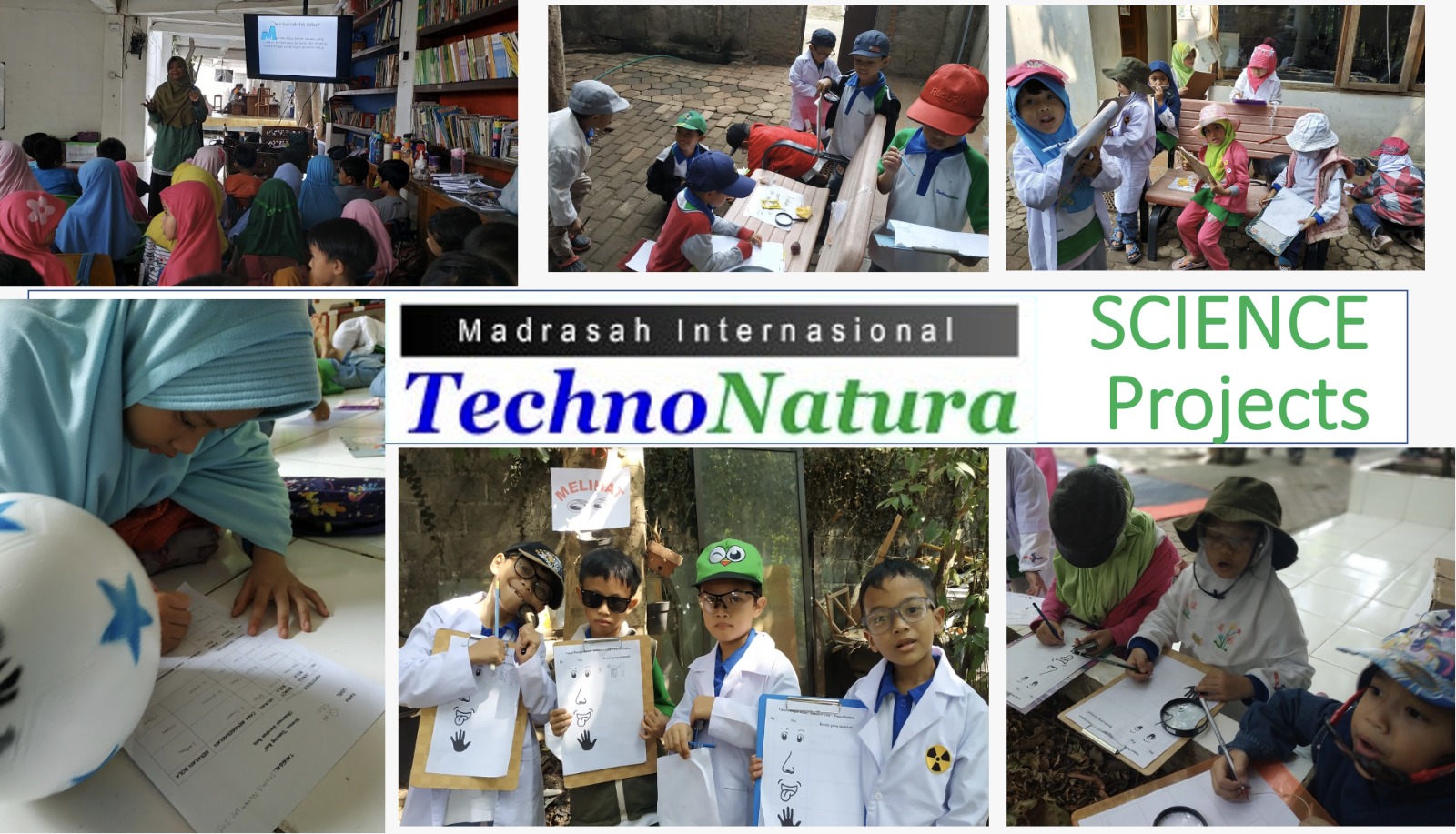
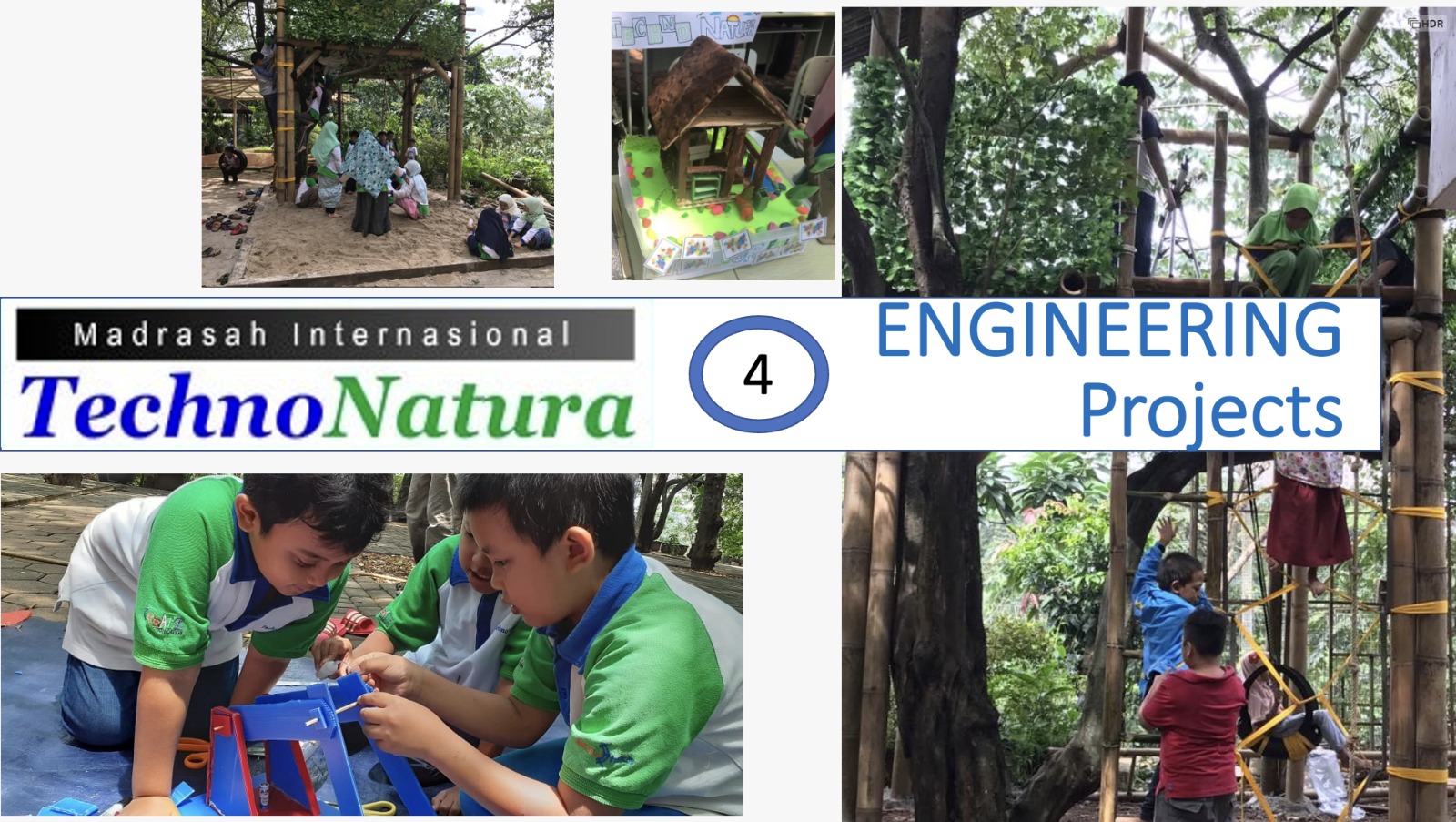
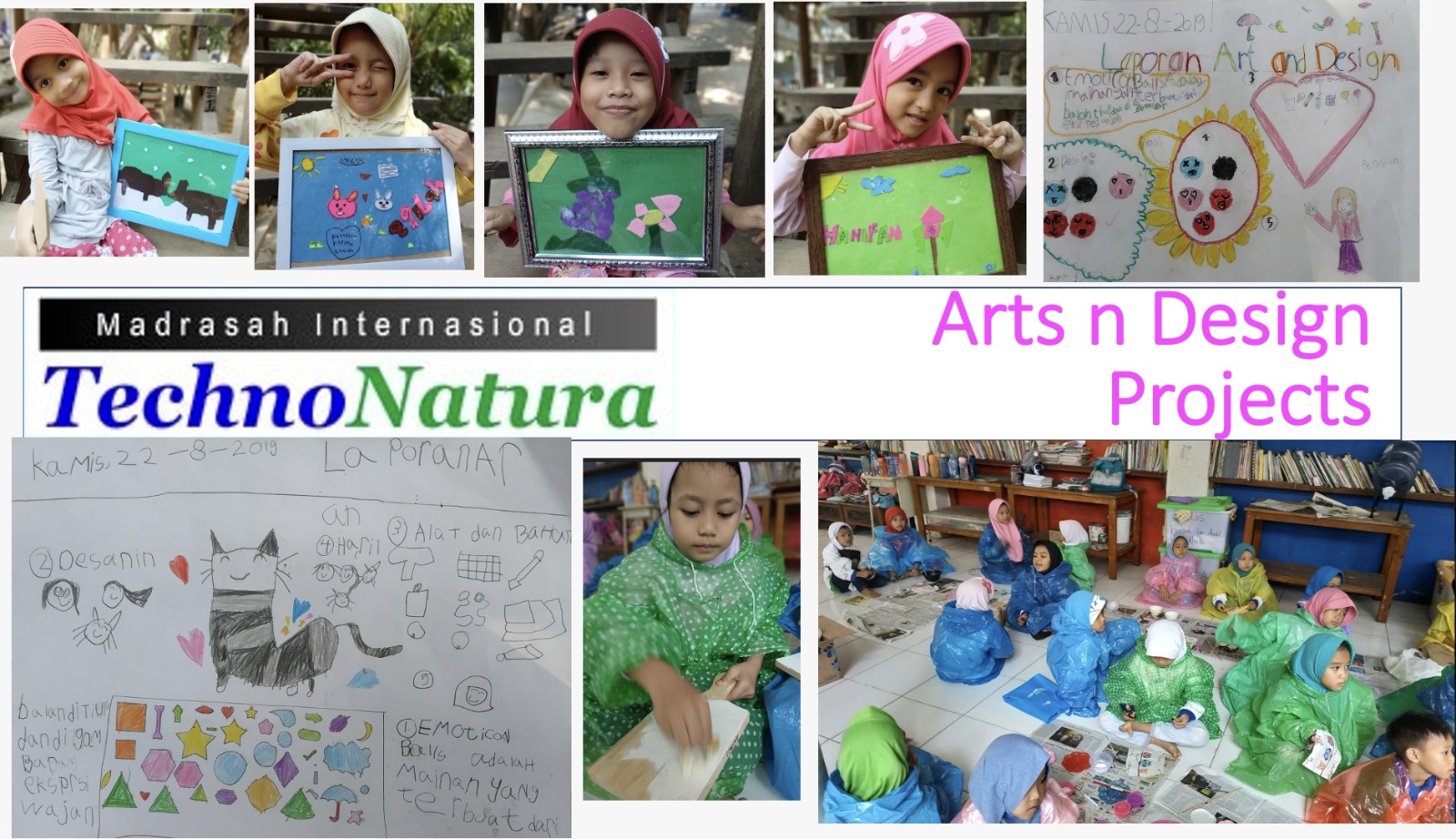
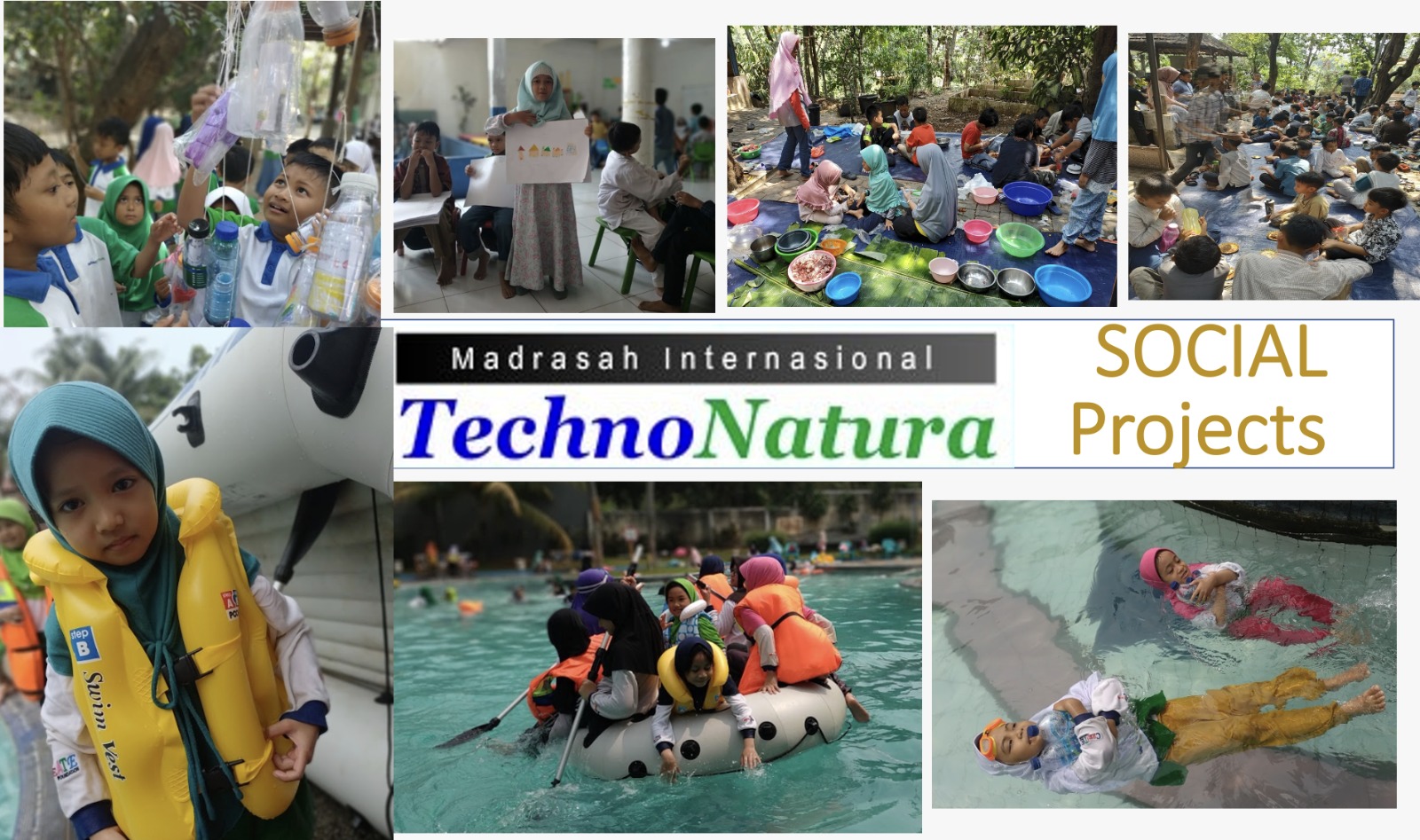
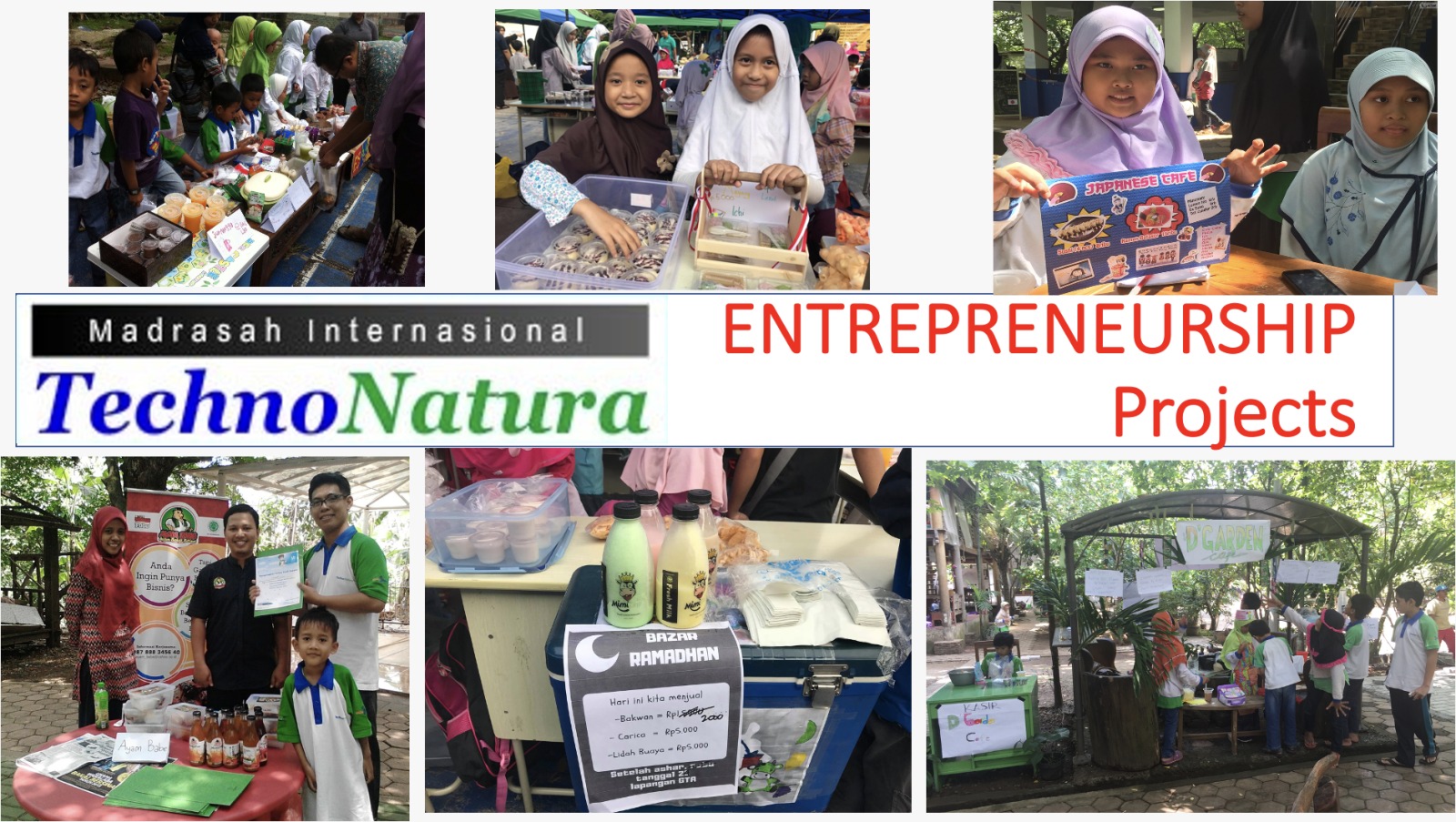
These curriculum design and planning session was discussed and reviewed by the teachers every years, prior to academic execution. Thus it serve as teacher development session toward a school shared vision and all the work was carried out using Cybermadrasah a cloud based education management system, where all blue print, curriculum plan, lesson plans and execution will be recorded in there. The function of a CyberSchool/Cybermadrasah is to ensure the systematic academic development of the means to collect, store, and organise information and knowledge in digital form and to provide easy and affordable access to it around the clock from various locations. It strengthen communication and collaboration between and among teachers, students, headmasters, and educational communities, nationally, regionally and internationally; It also offer lifelong learning opportunities to teacher to learn about the new approach in education.
For the benefit one kid we need to set a system of learning, for the same appreciation and the approach is then deployed to all class in a school, and the whole school now acting on the project theme at the week., and the same theme, same pattern, appreciating creativity, Inquiry process, critical thinking process, praising one another, collaborating across age.
Cybermadrasah and IoT platforms provide a scalable way to both expand STEAM learning to new ICT applications and to enhance current Learning applications with new data. In the former case, new ICT applications can leverage the same IoT cloud, which has pre-established connectors for machine data and business rules. In the latter case, as analytics on machine data advances to new levels, predictive and prescriptive insights can be delivered to the AR application.
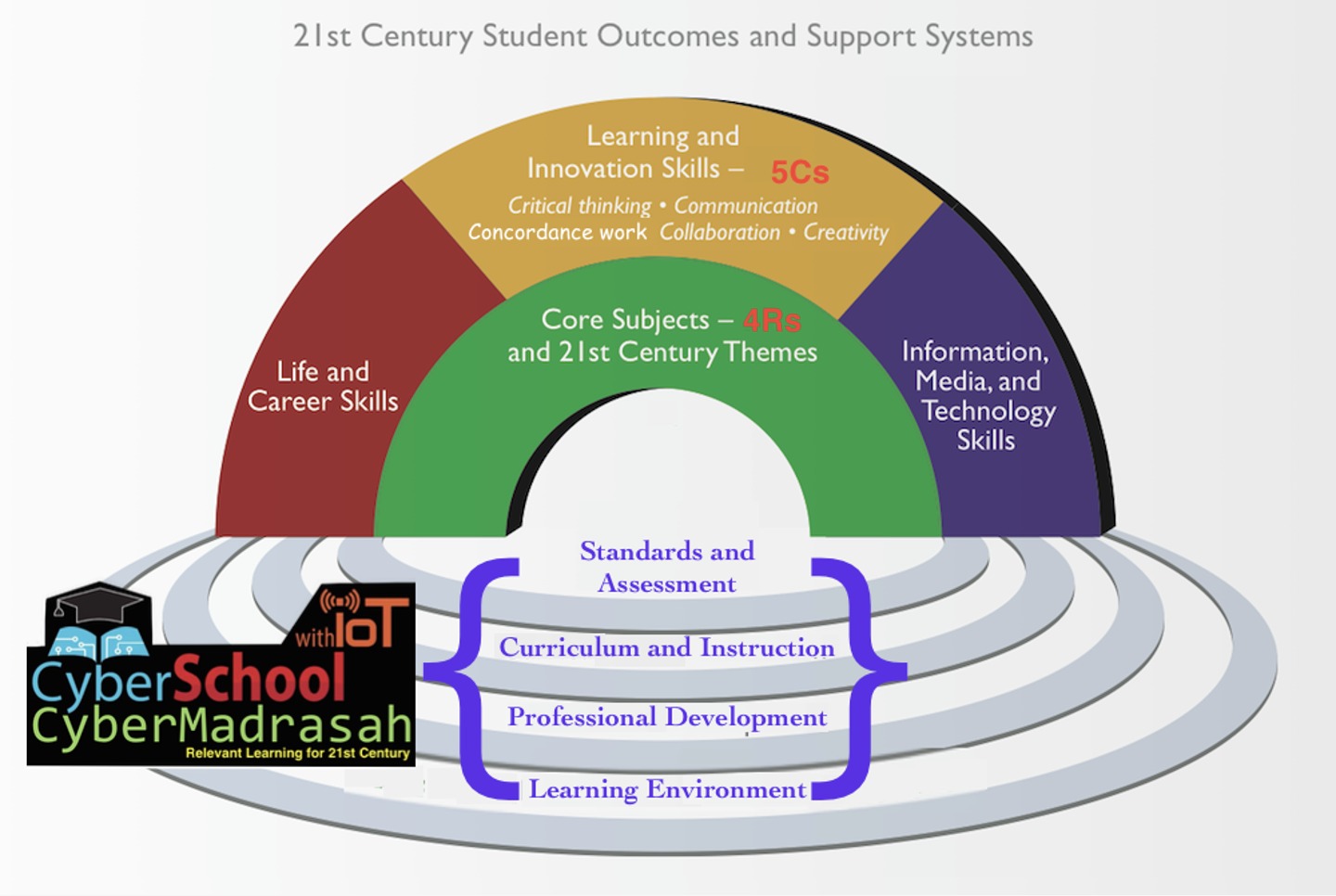
Edutekh CyberSchool Management System ensures that learners are at the centre of the learning process and communicates feedback regularly through the use of ICT in all aspects of learning. e. Edutekh CyberSchool Management System facilitates continuous competence development for all students in a well recorded students portfolio. Currently no other system available in meeting National Standard of competence, which comply with 8 National standards of education.
- Log in to post comments
